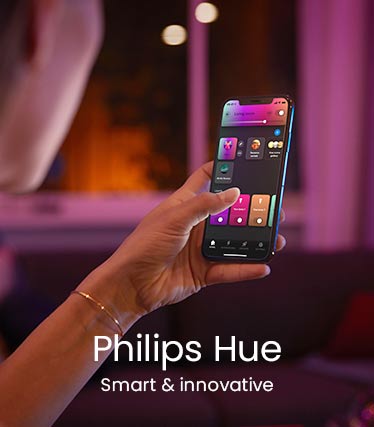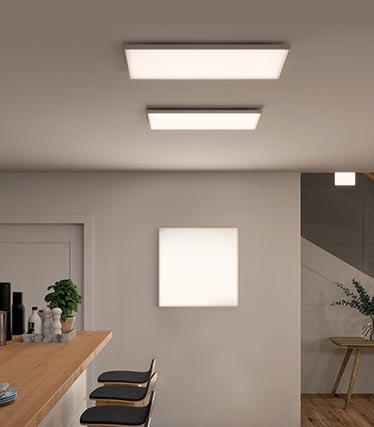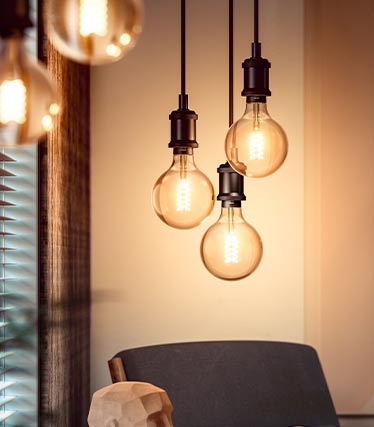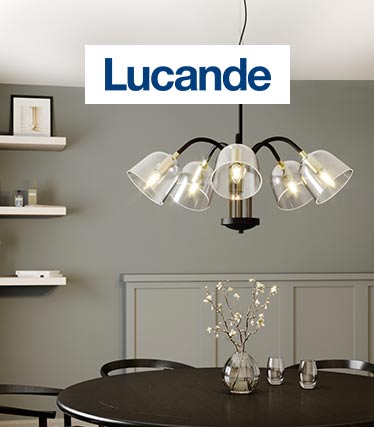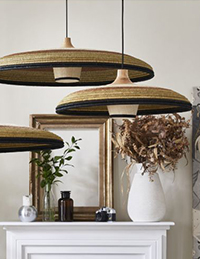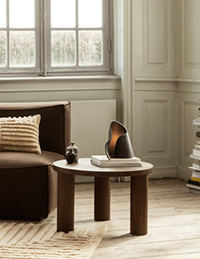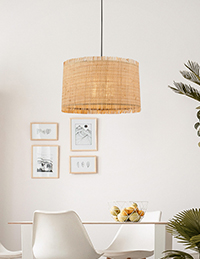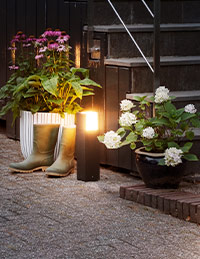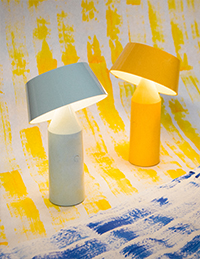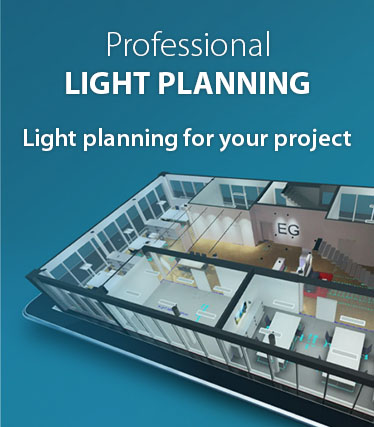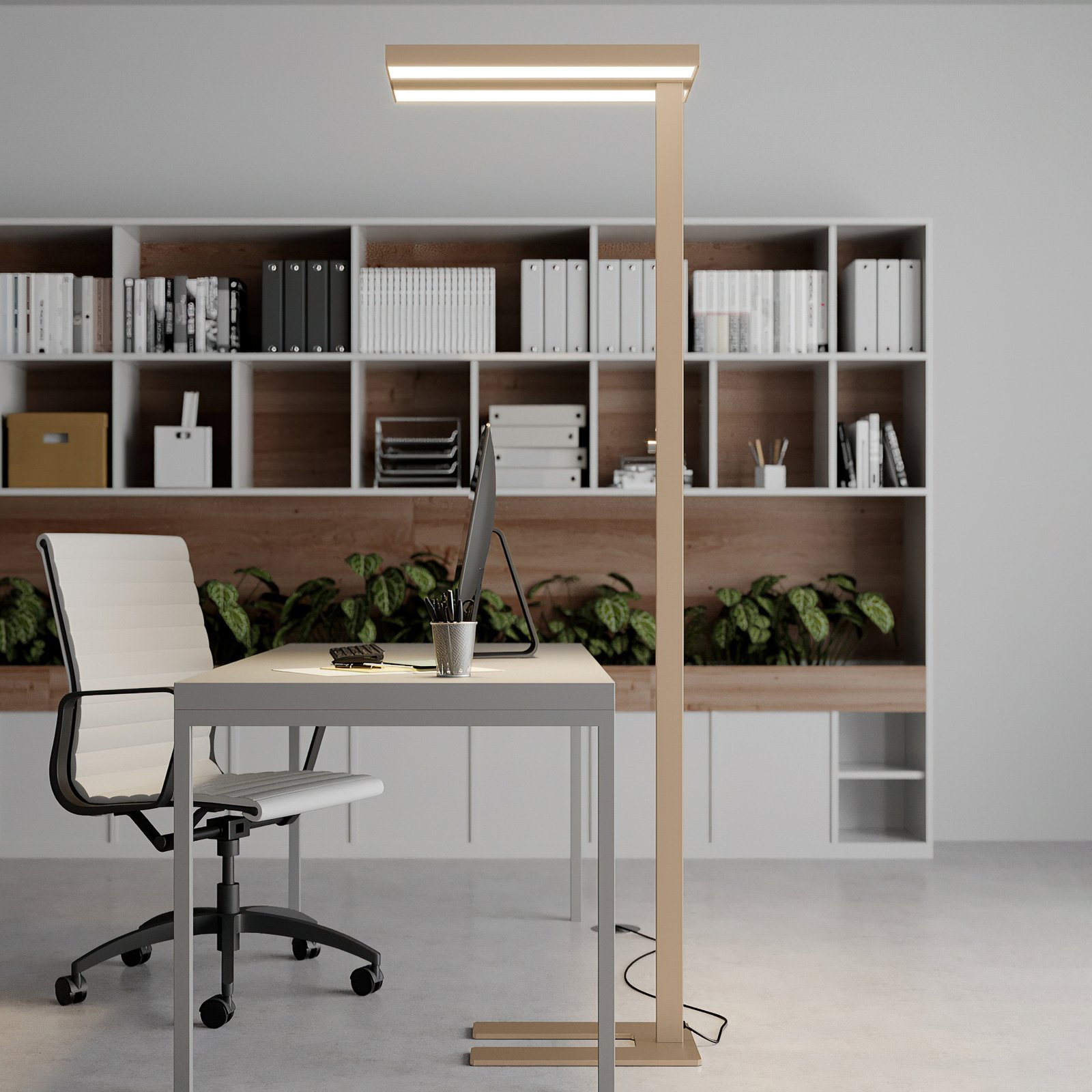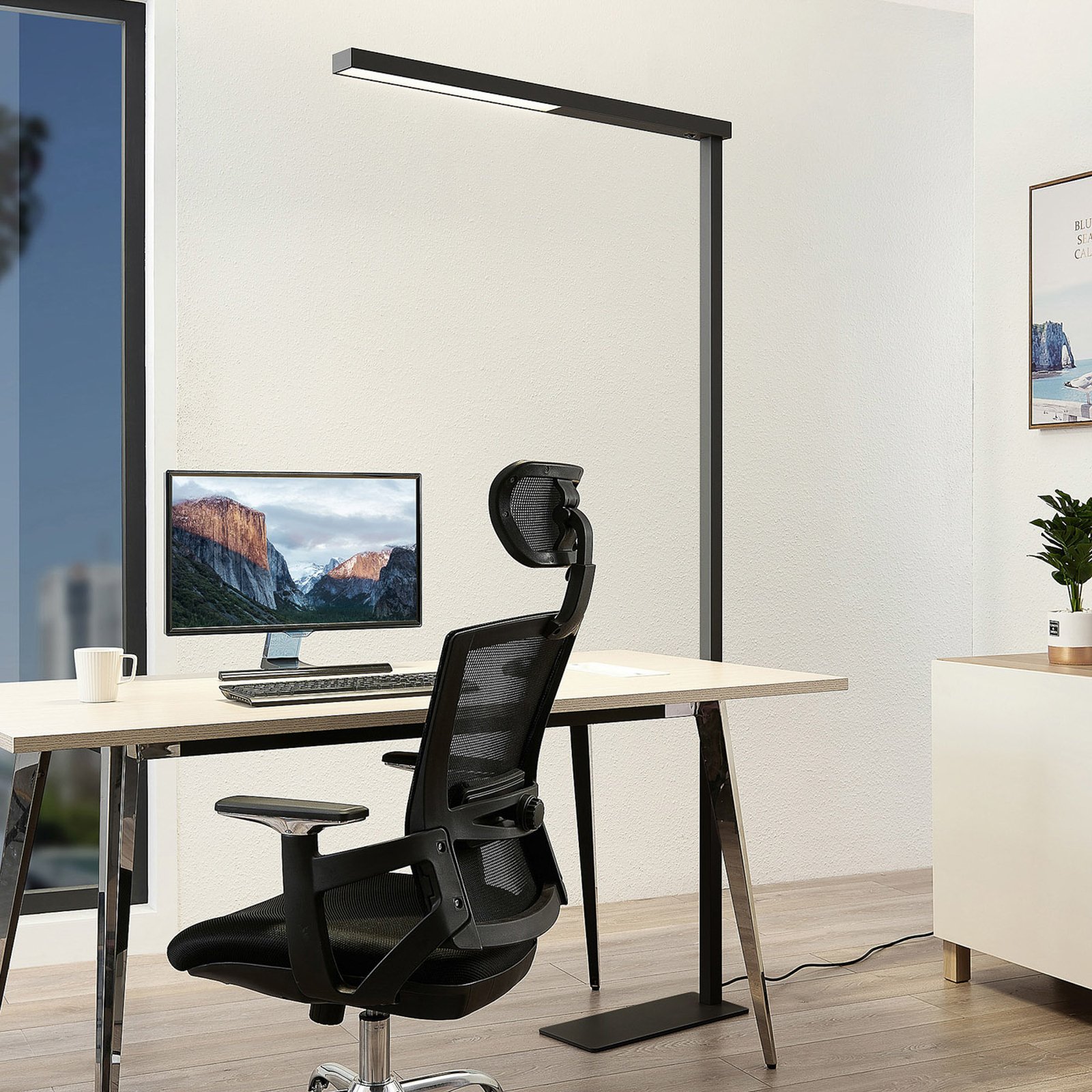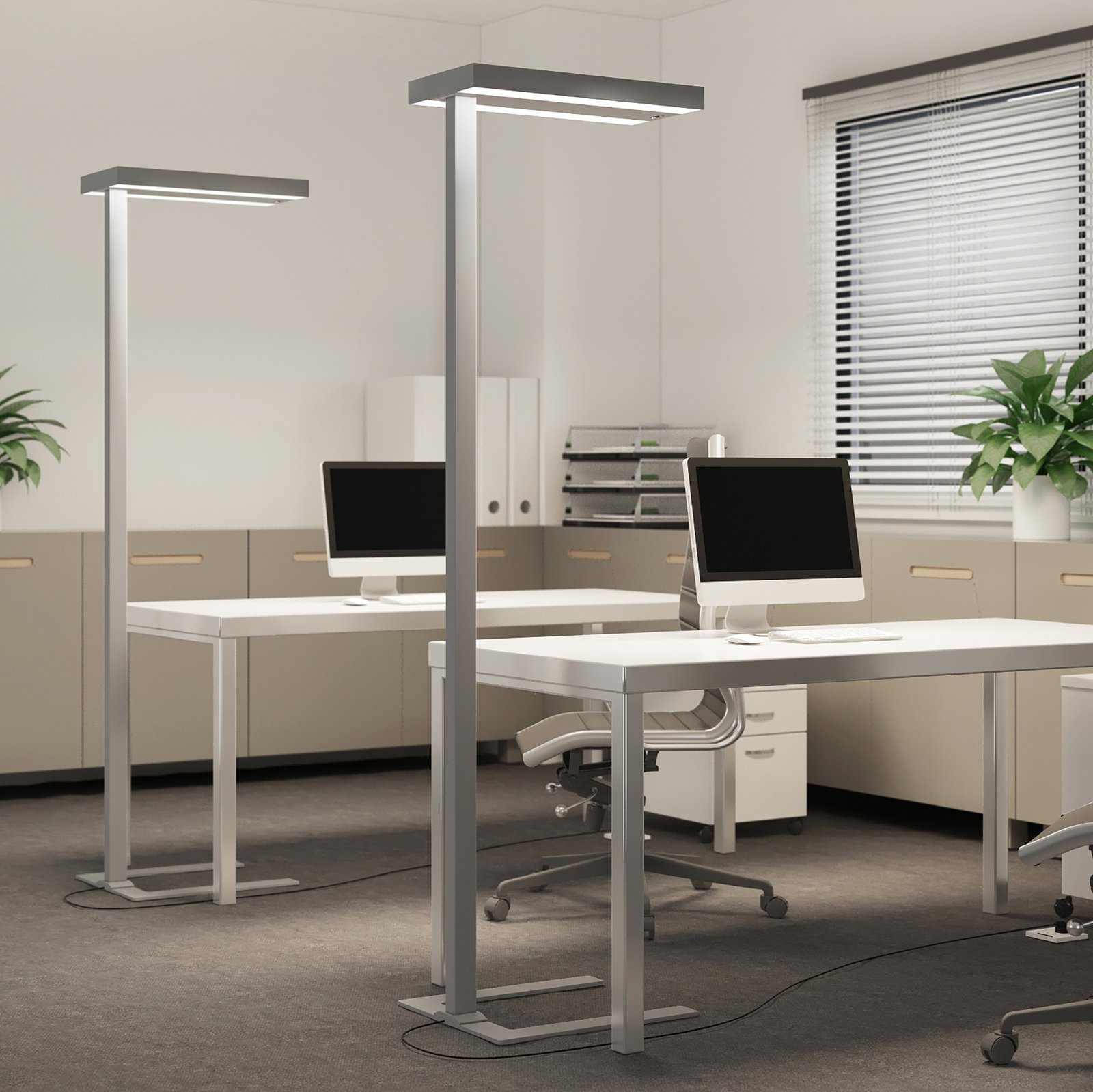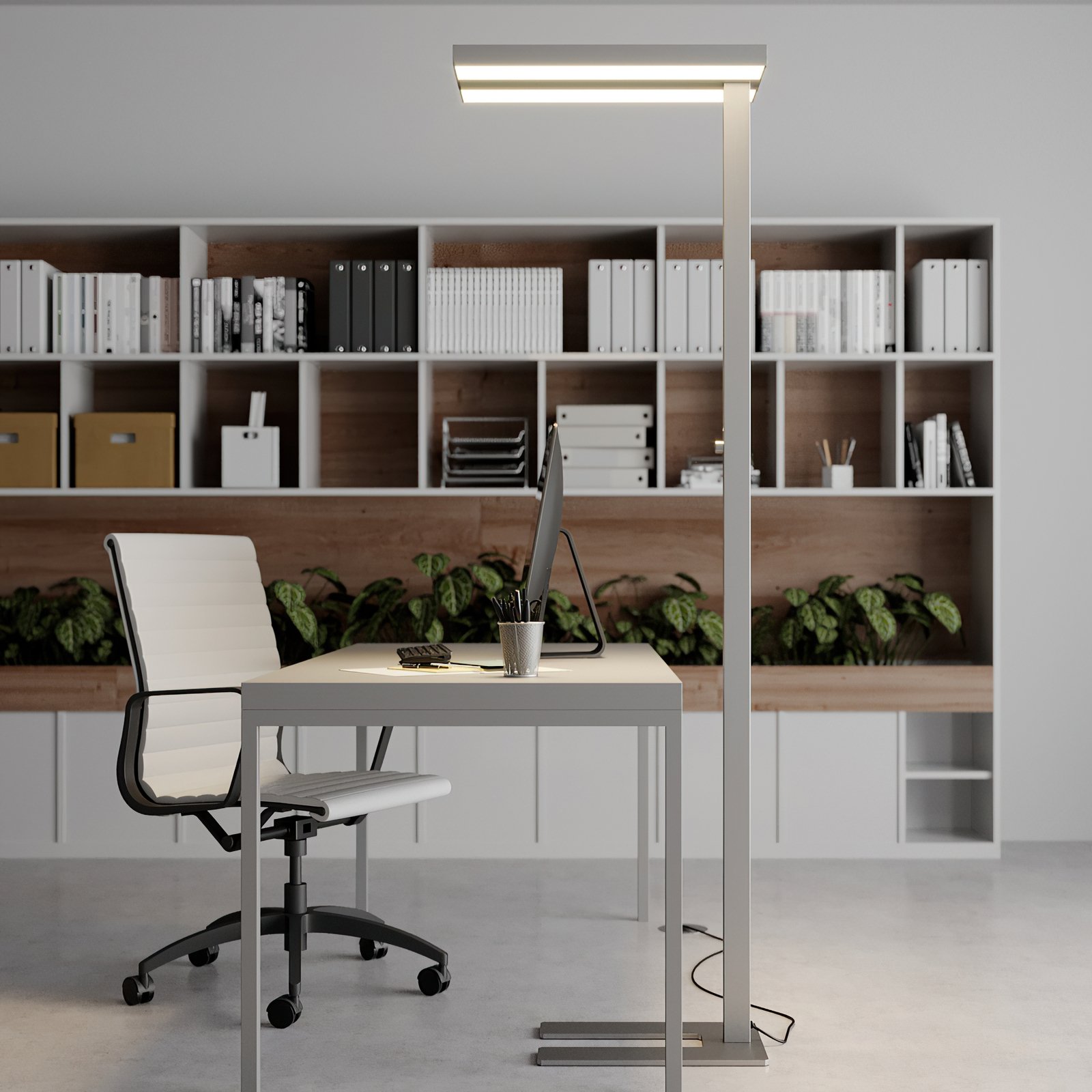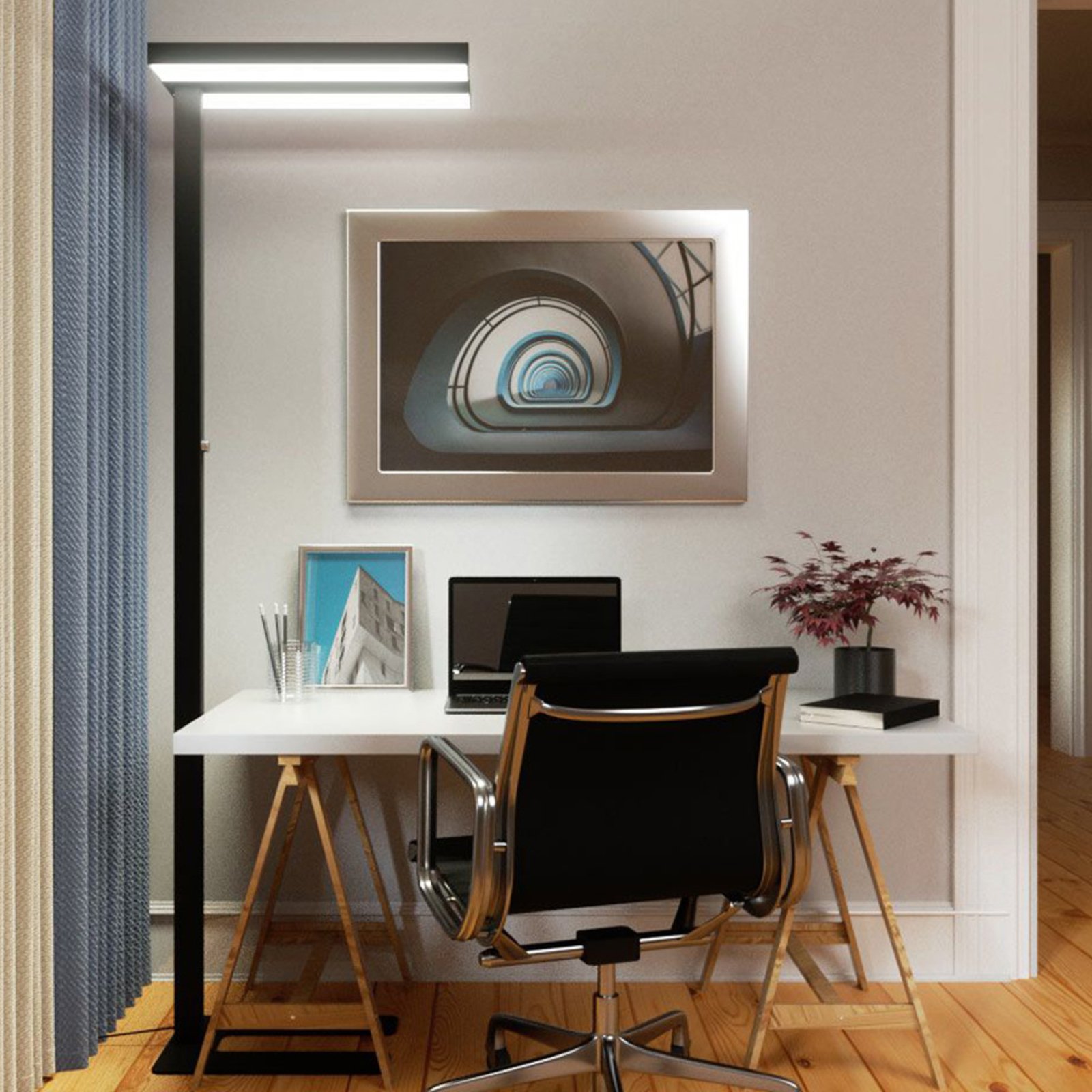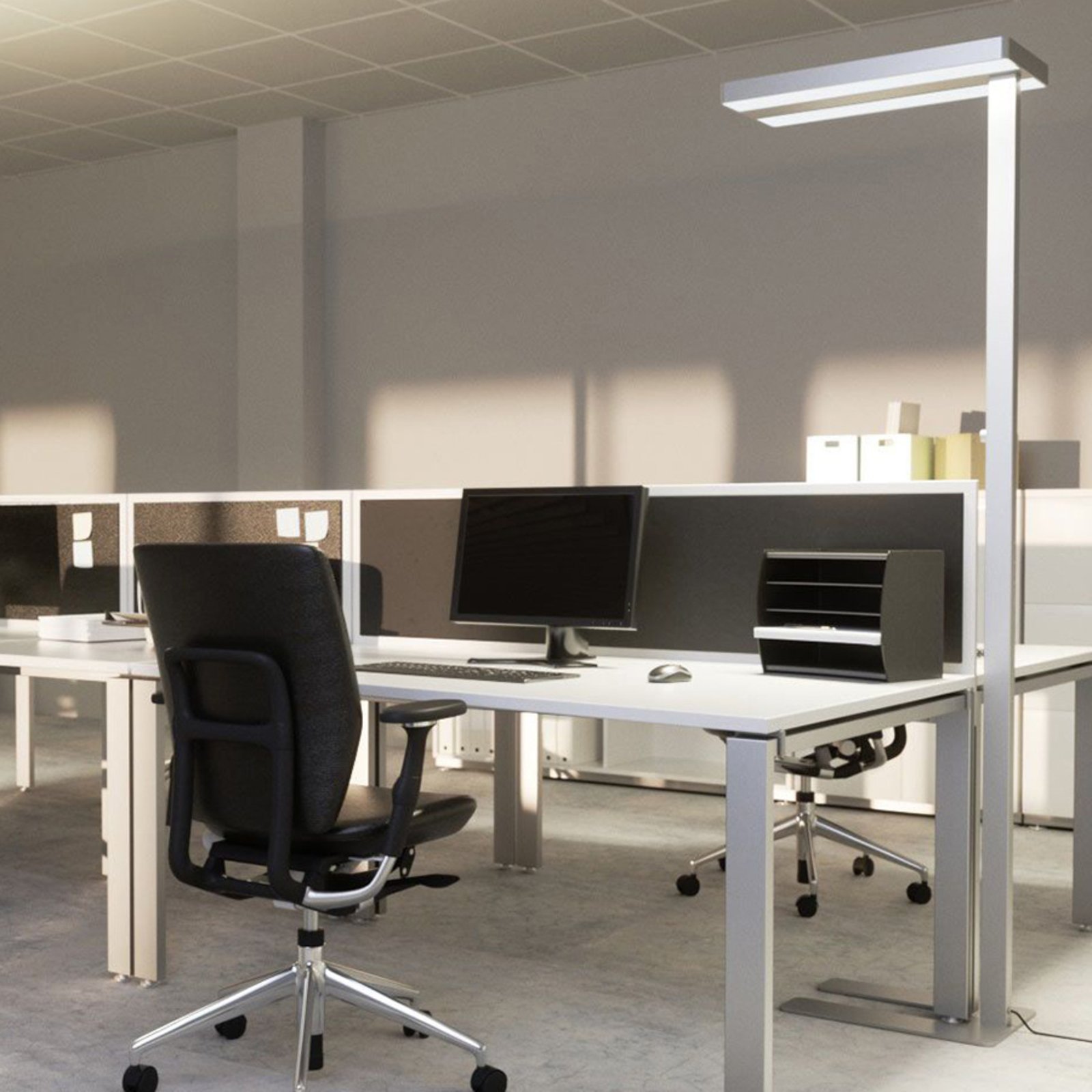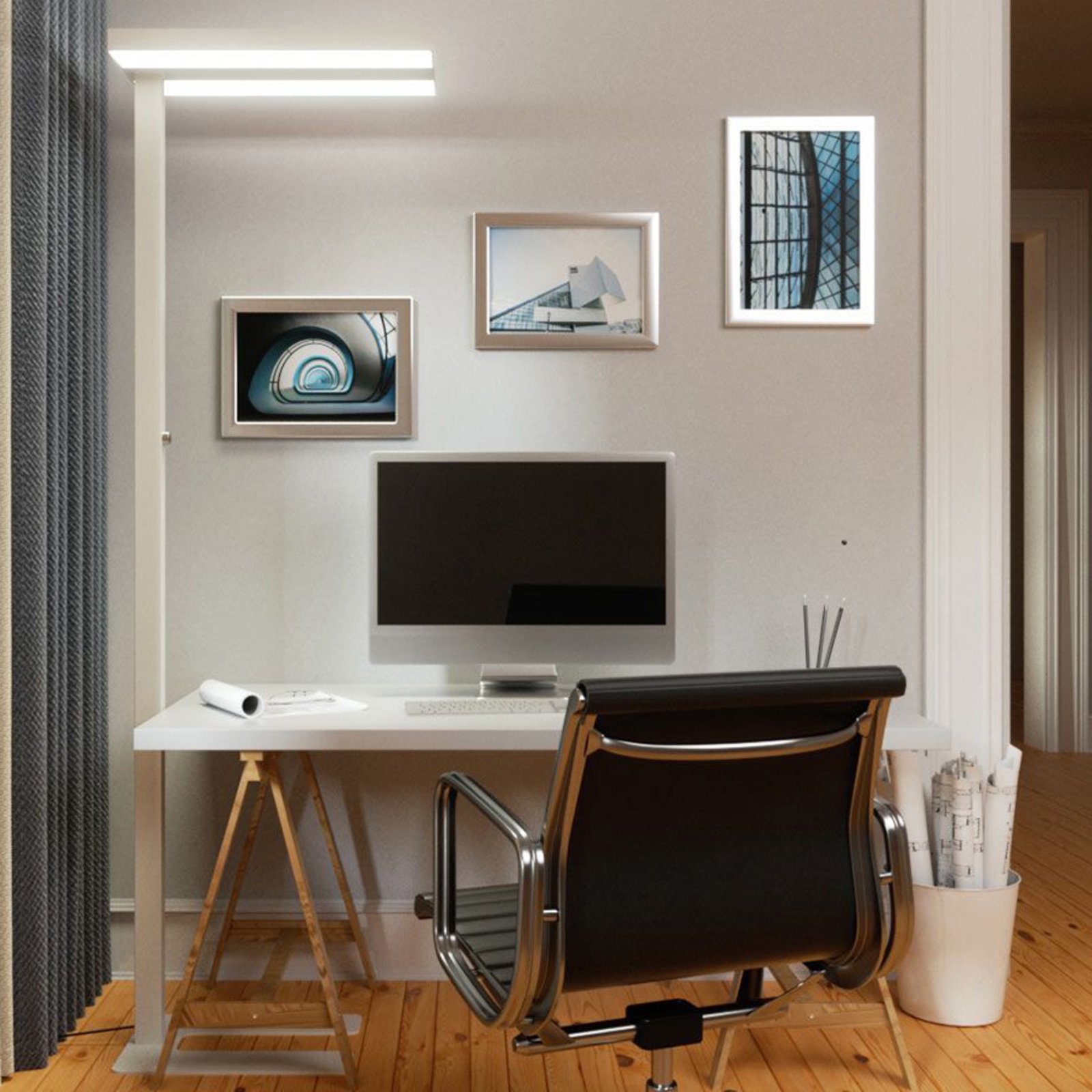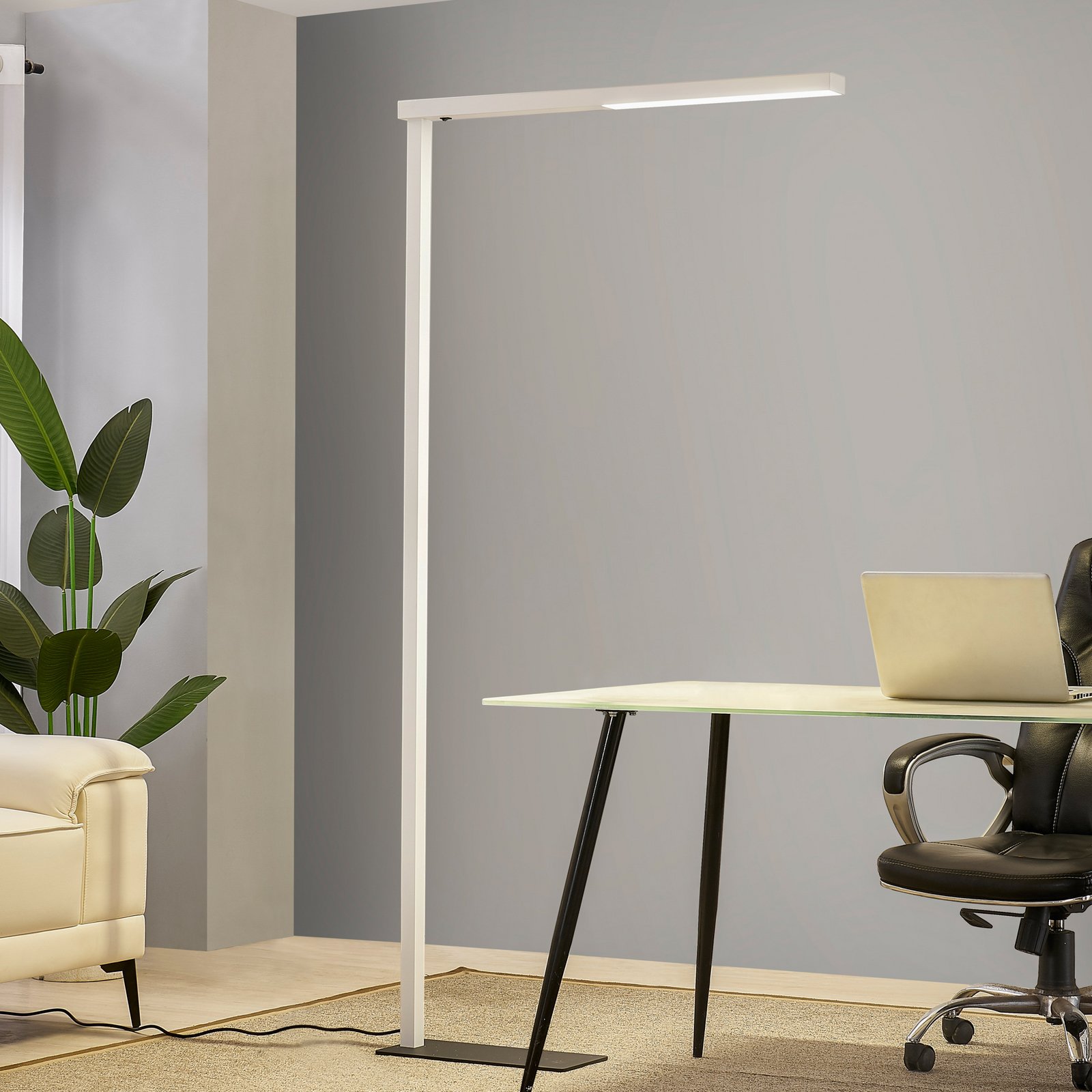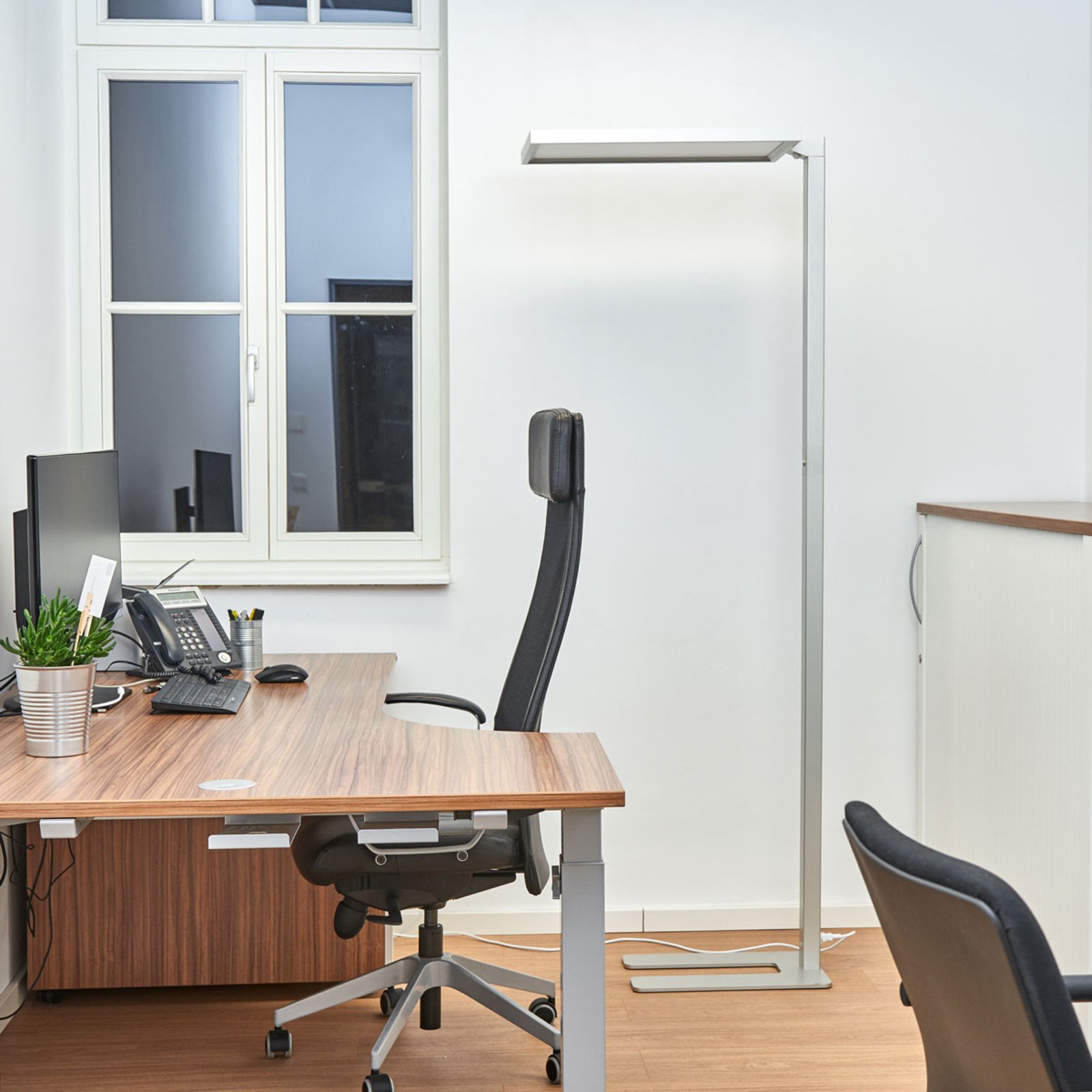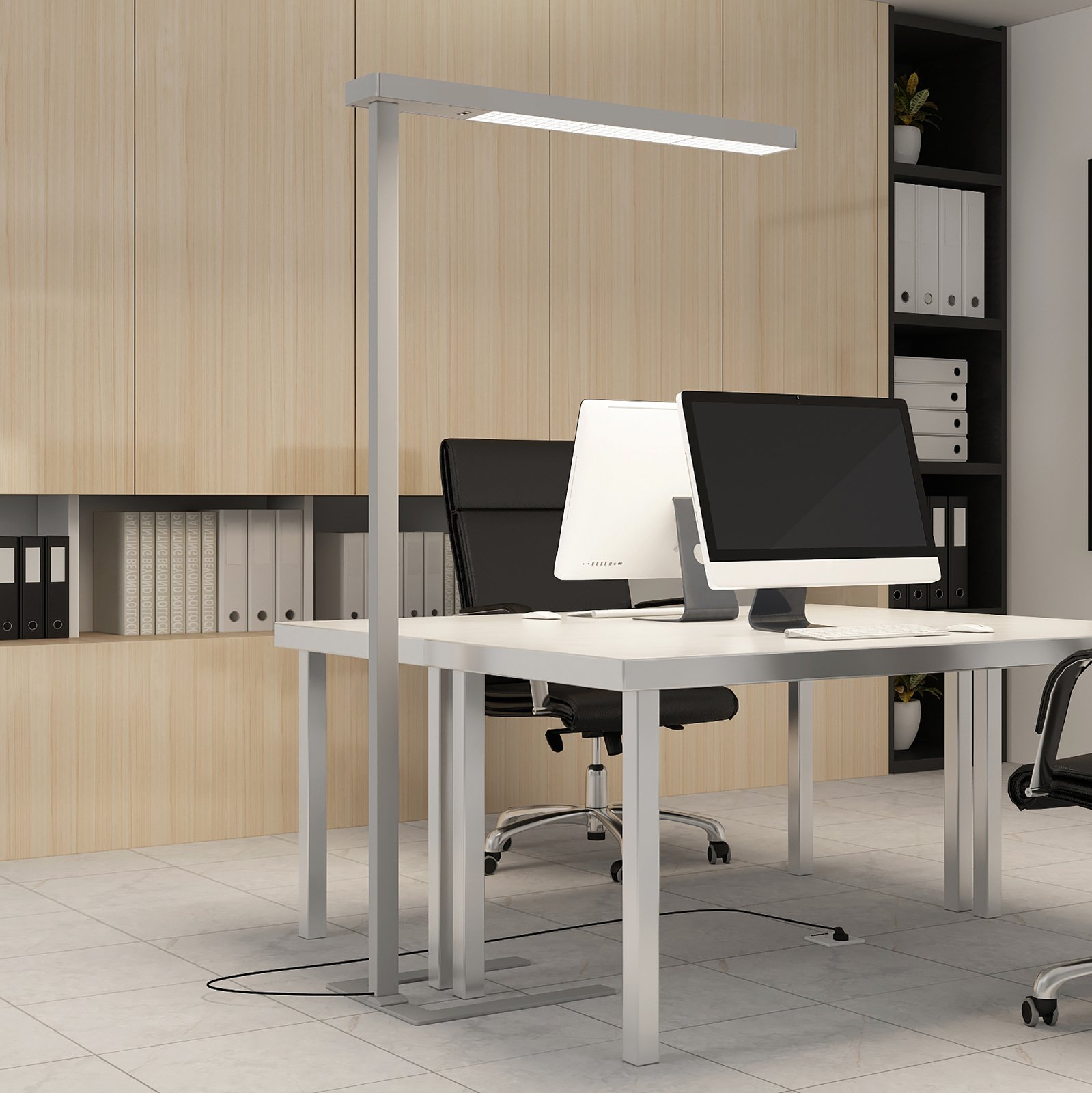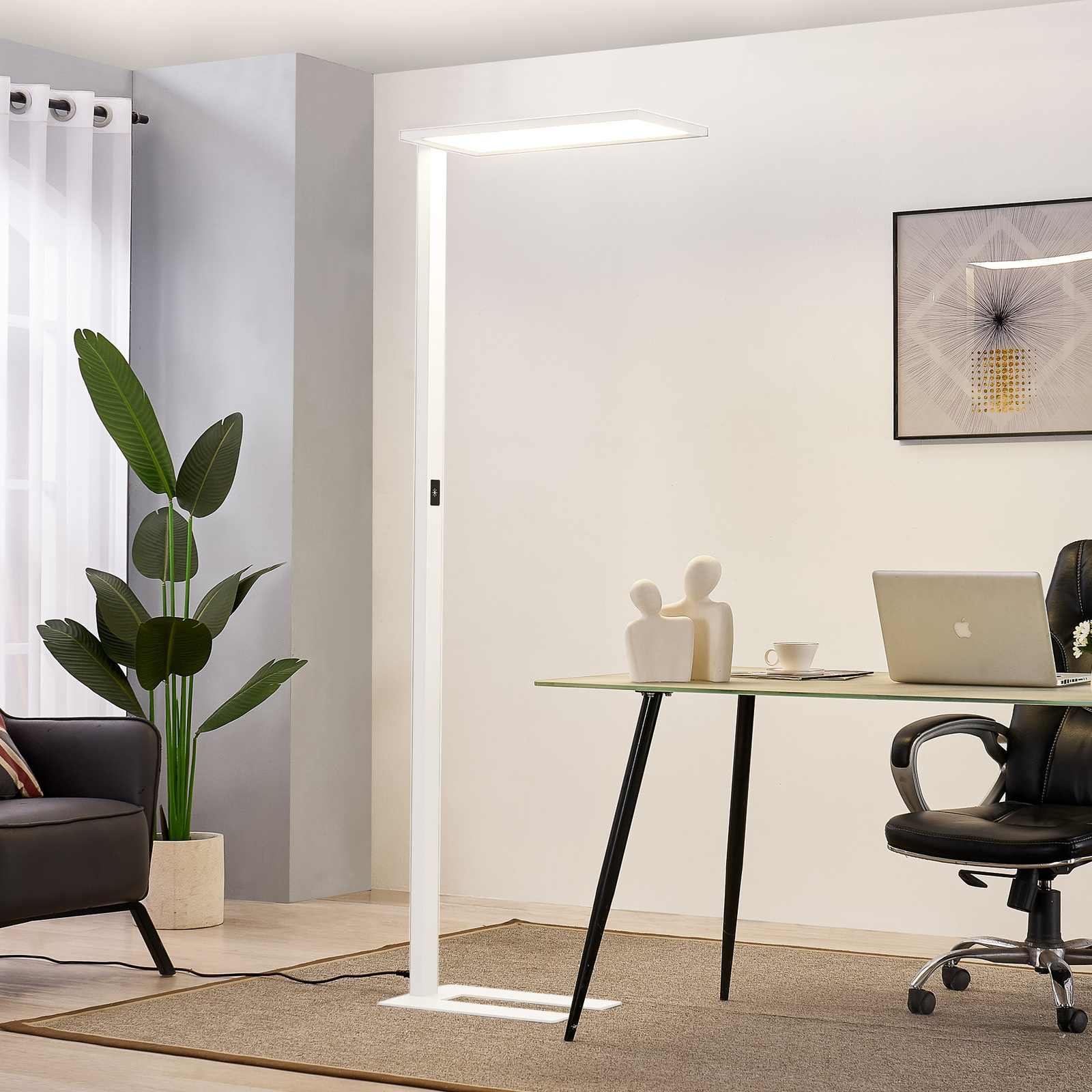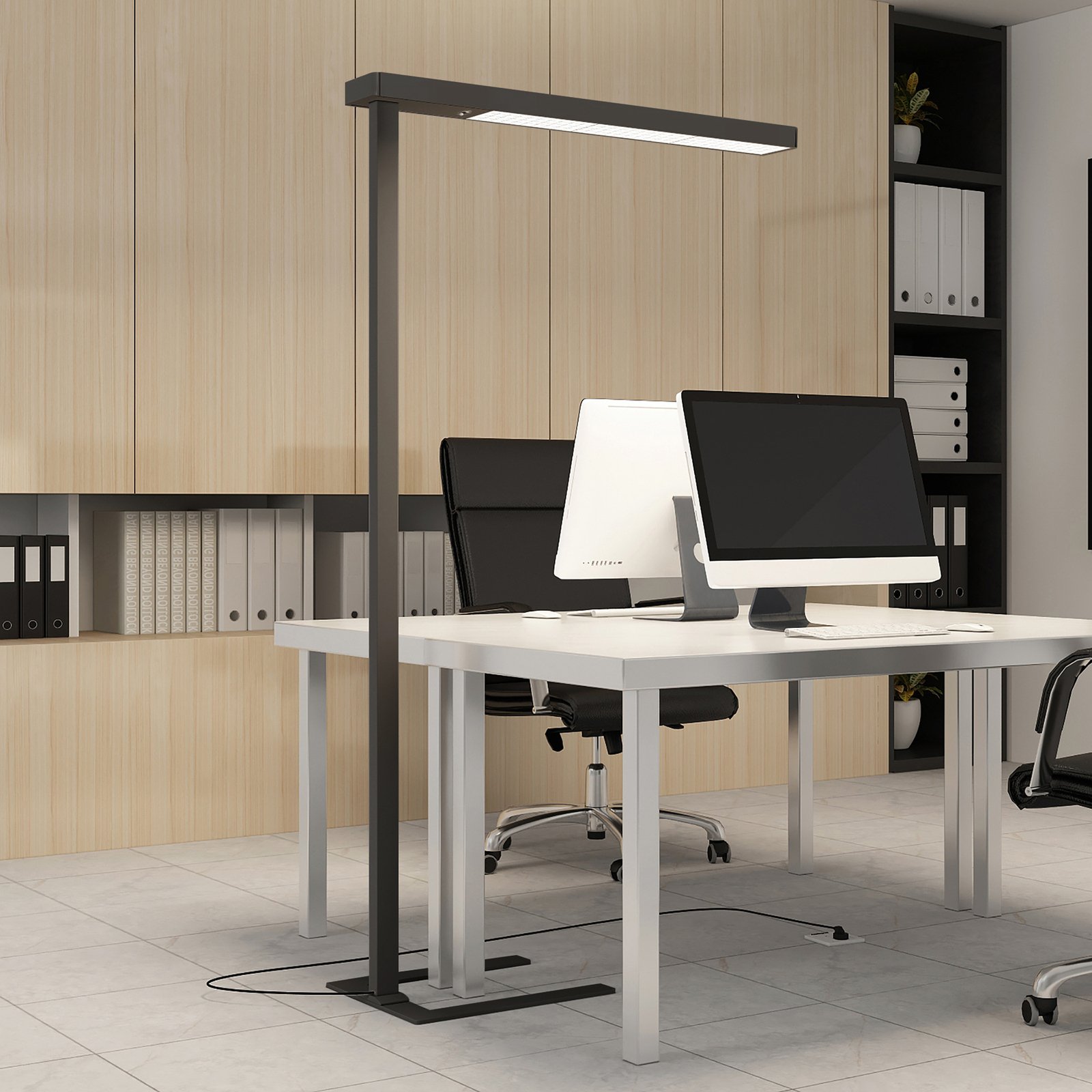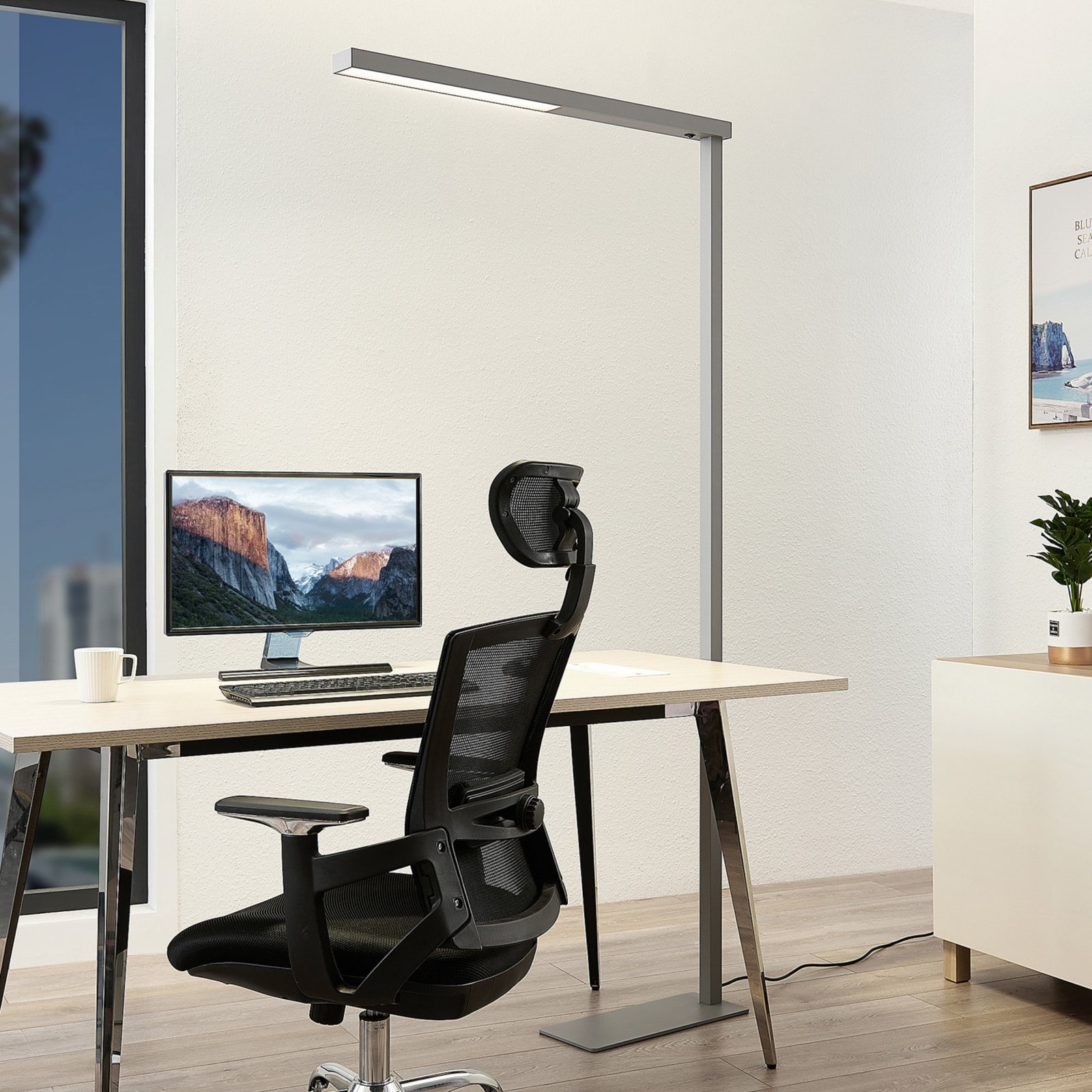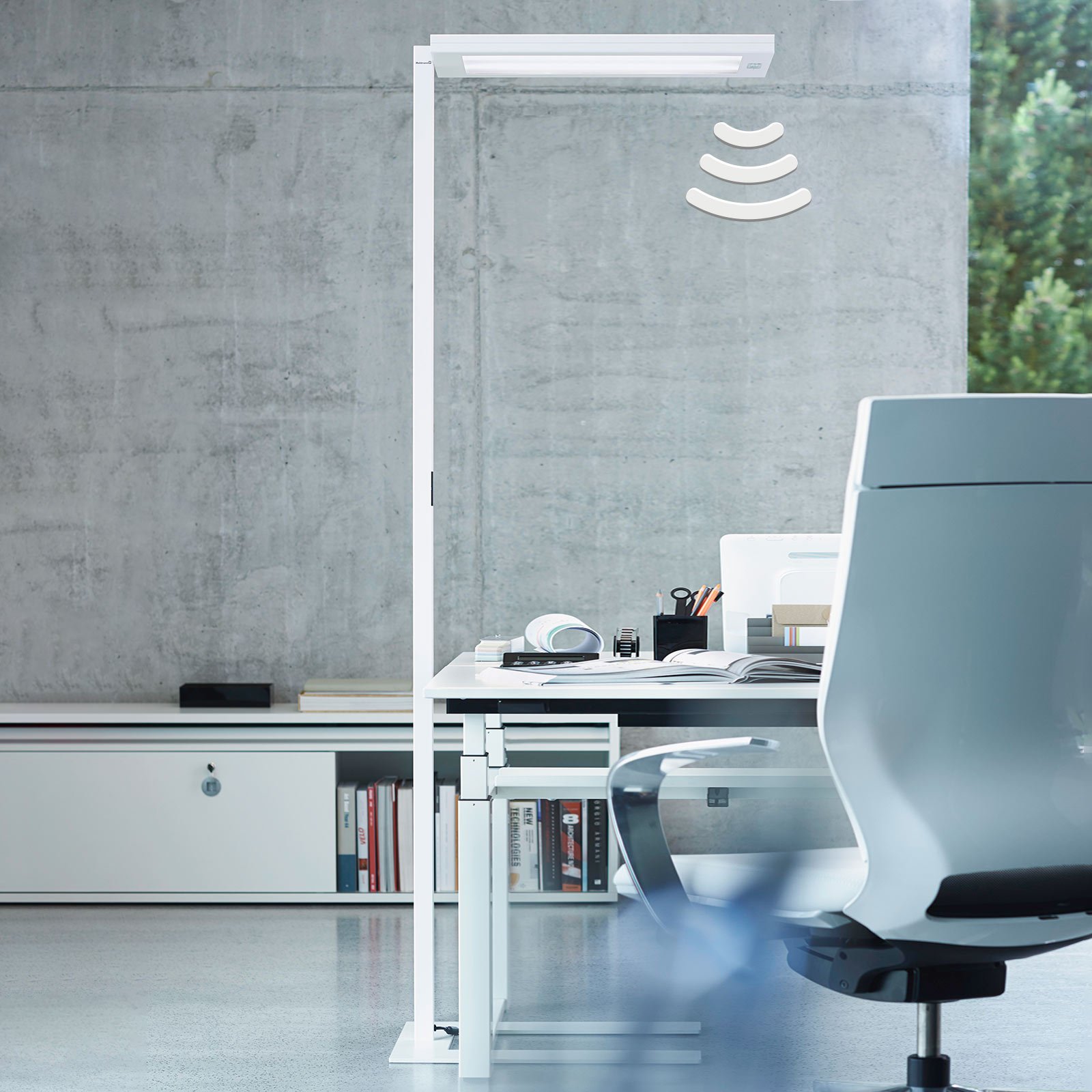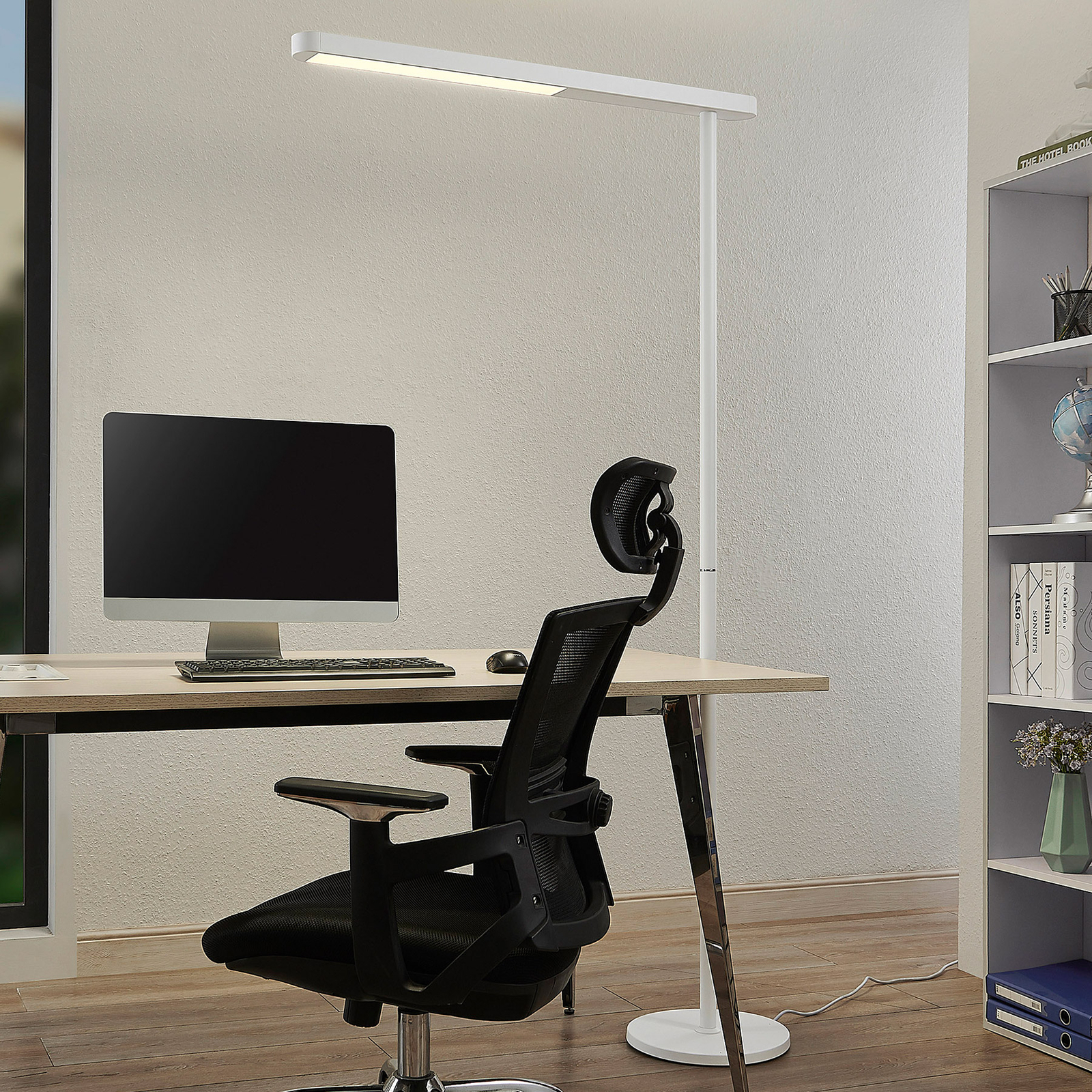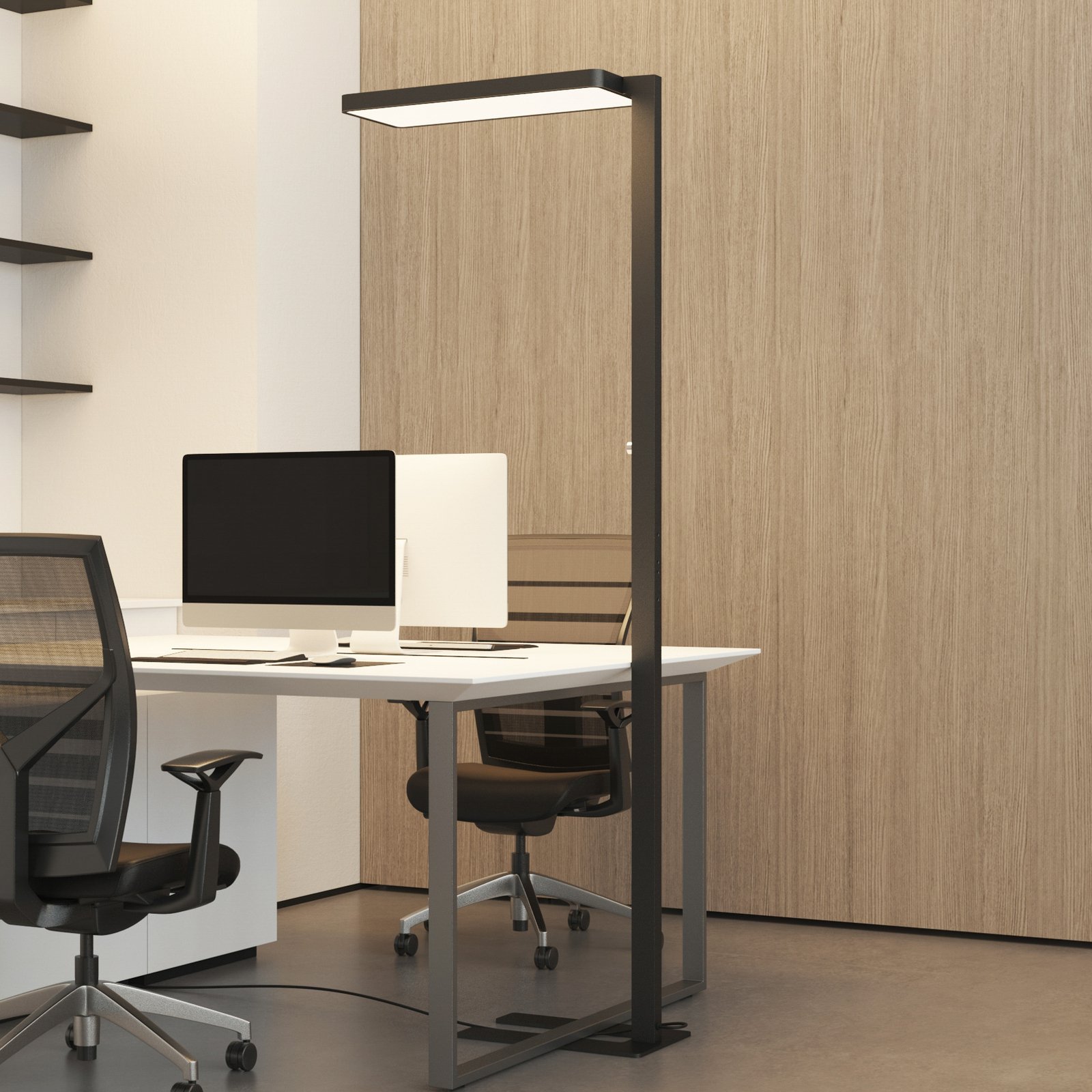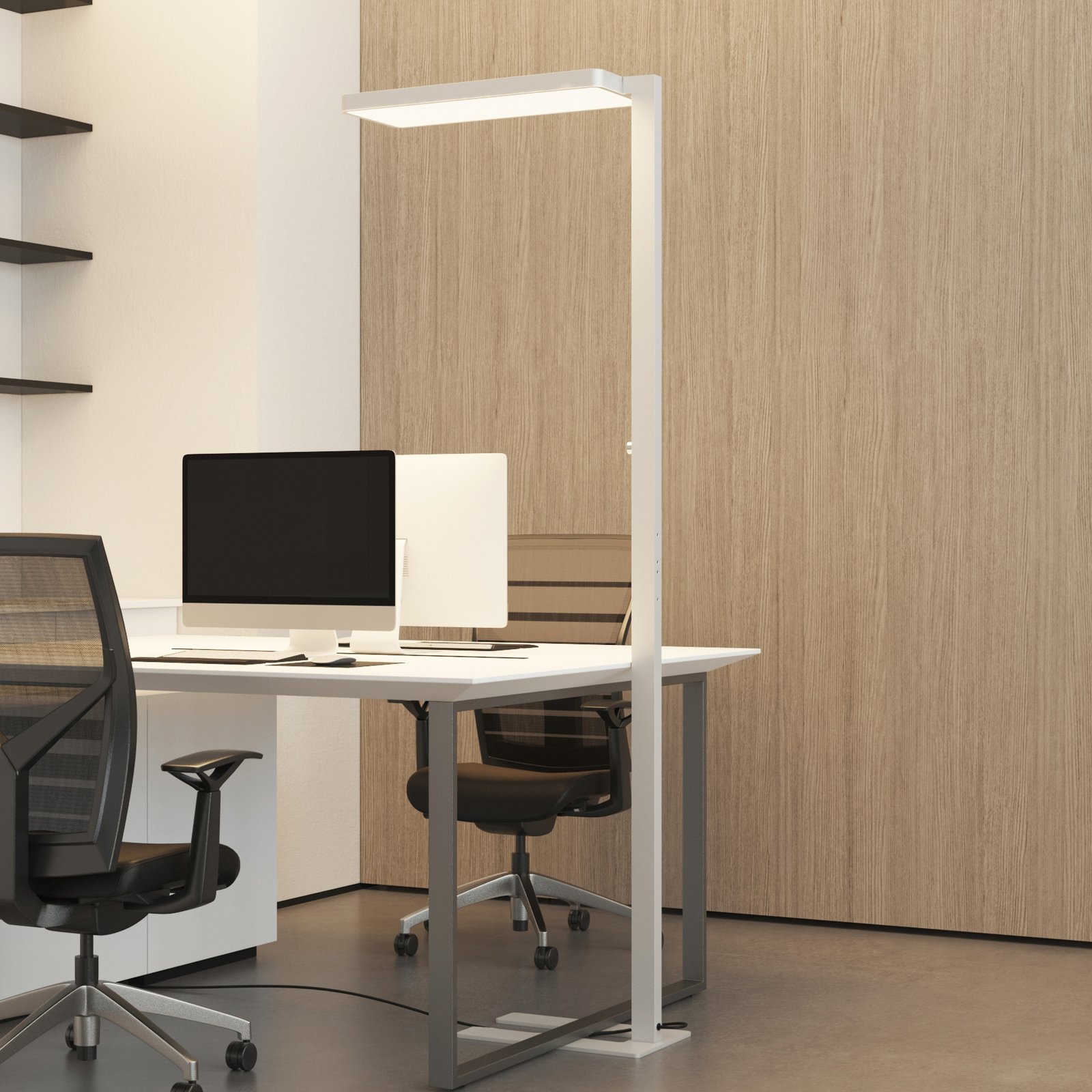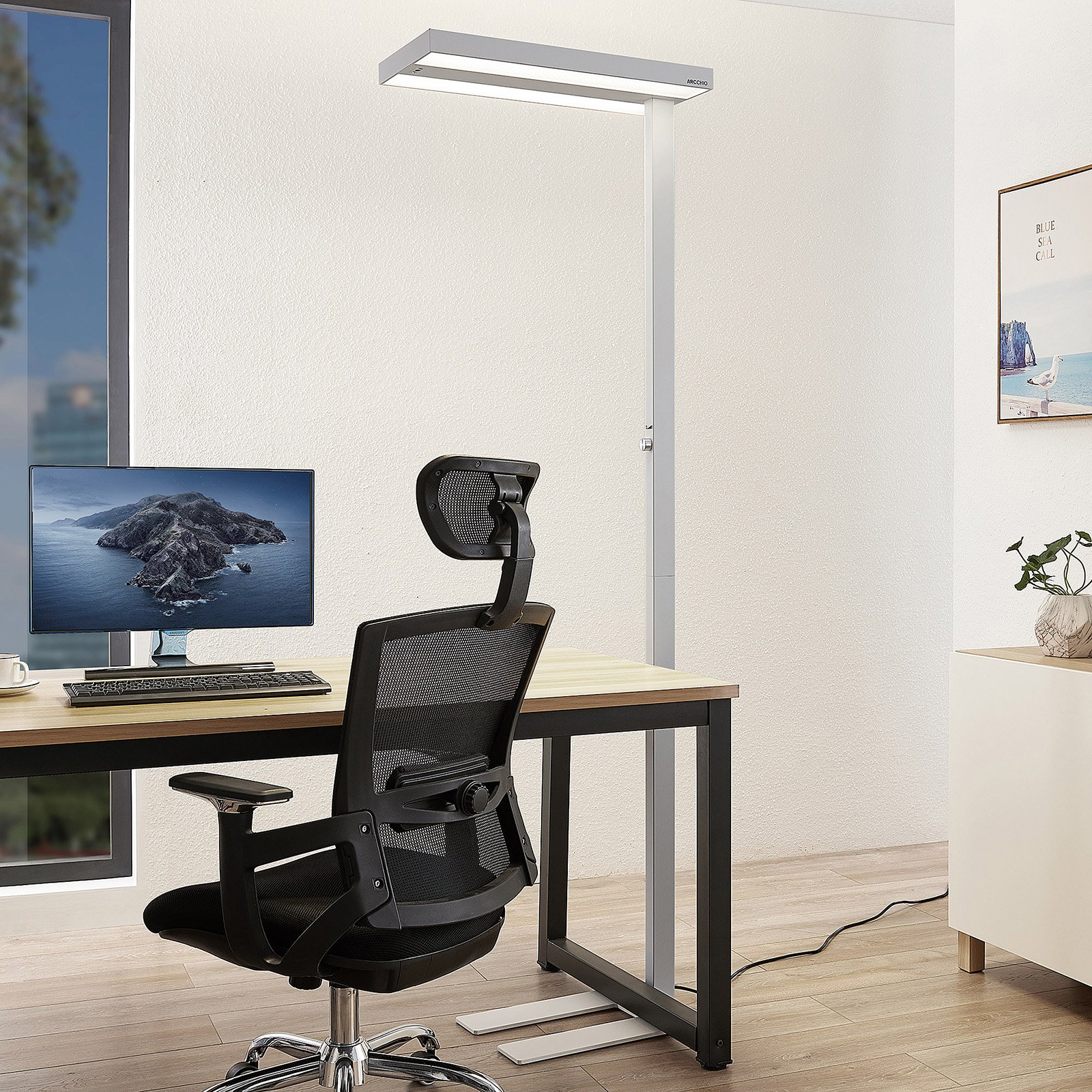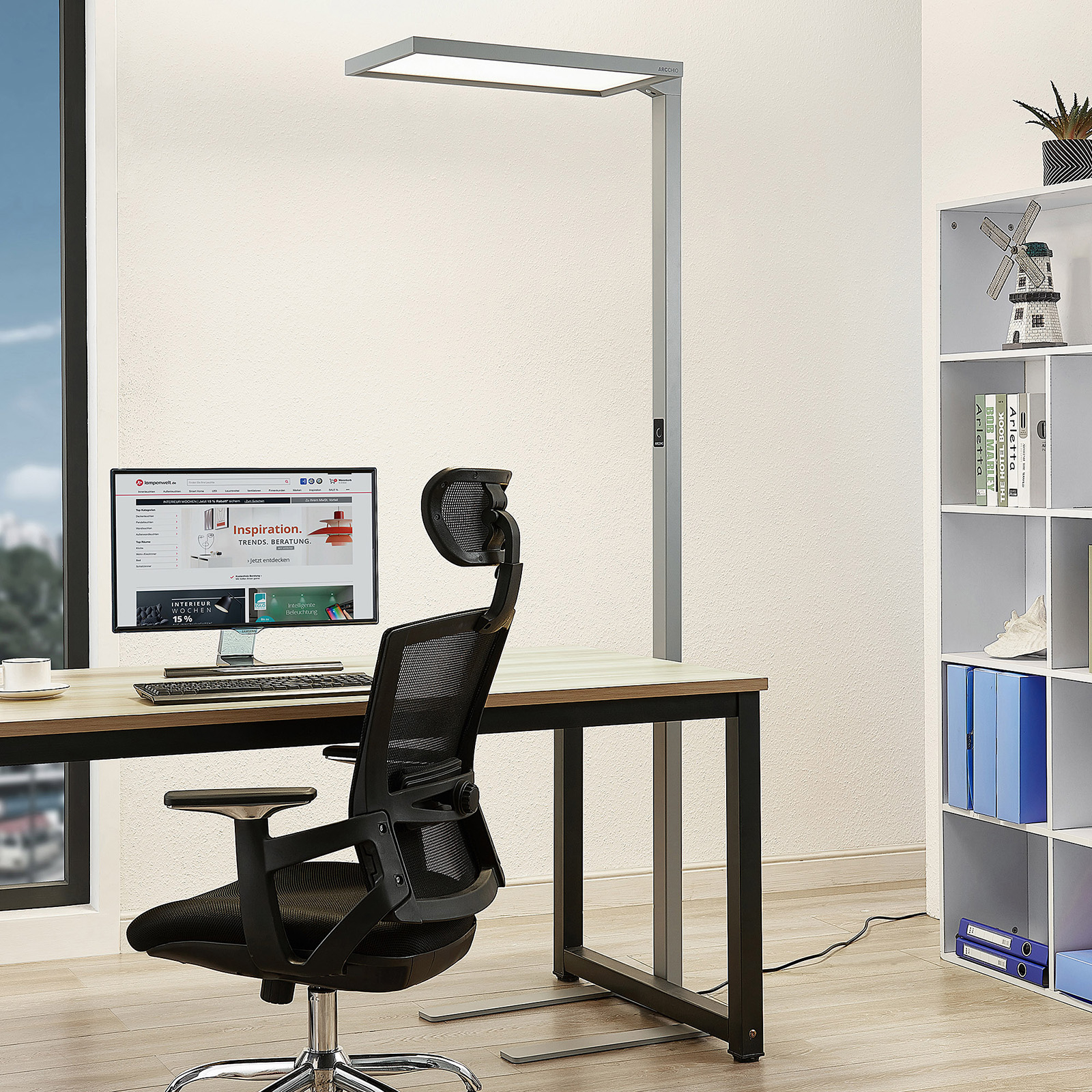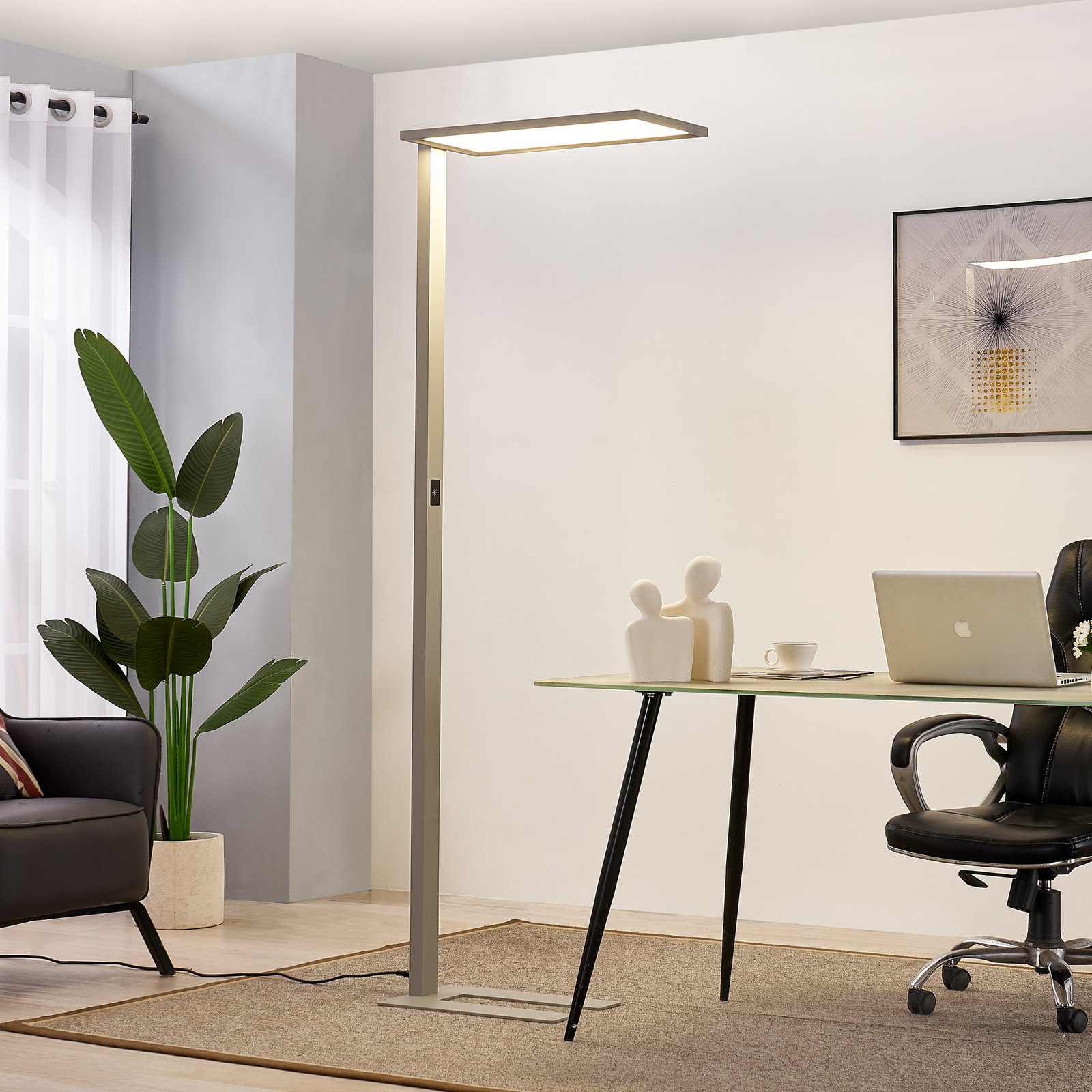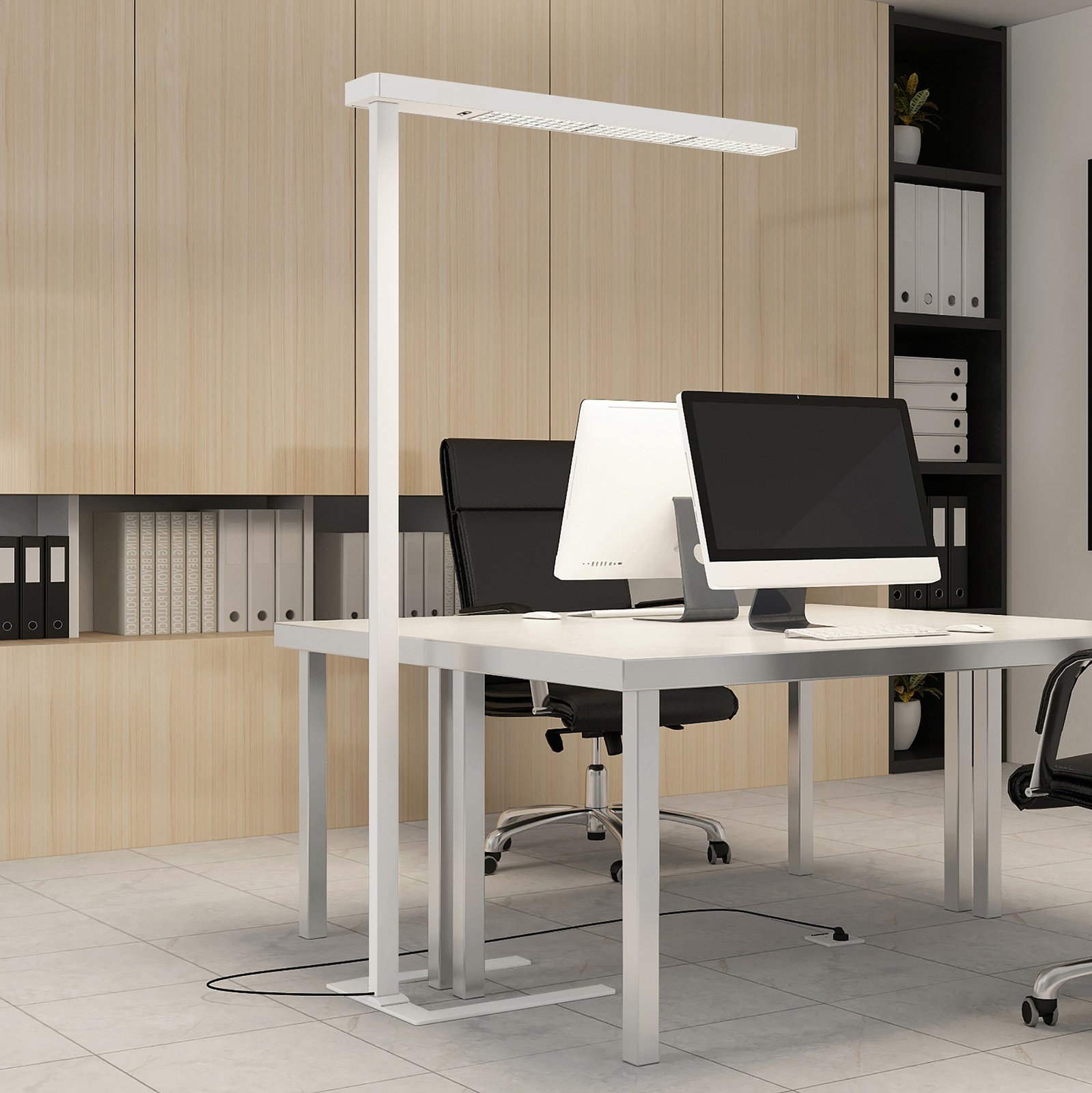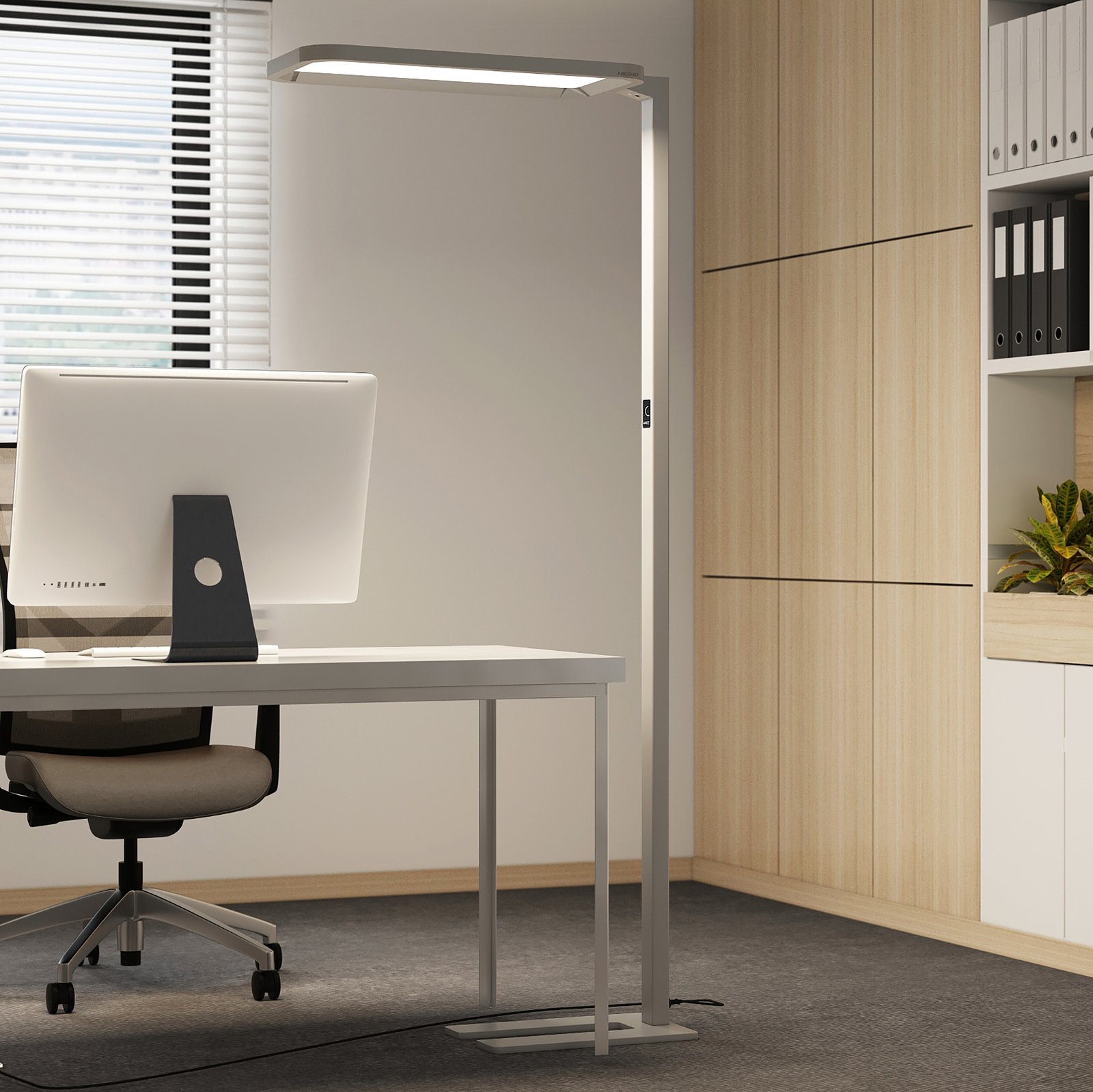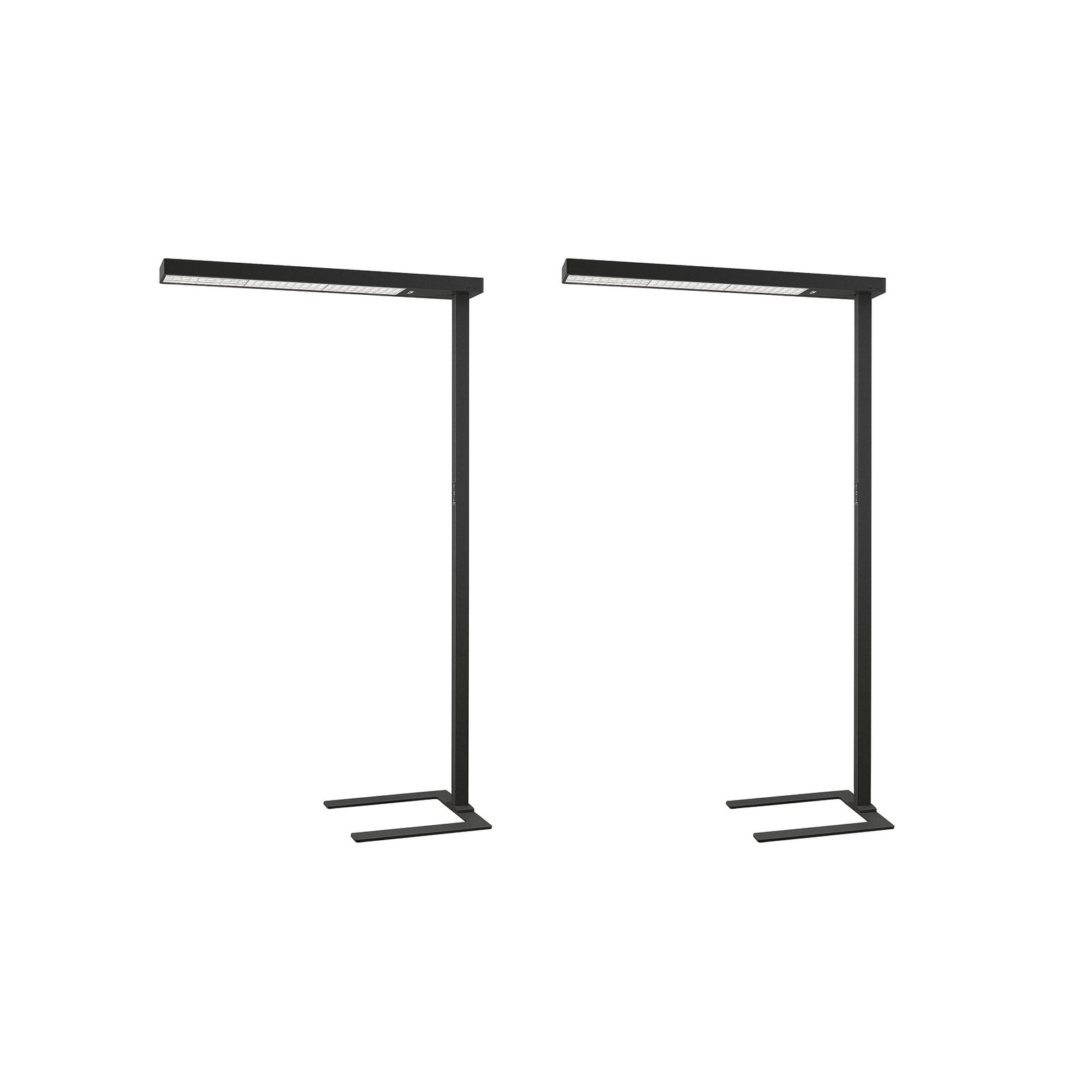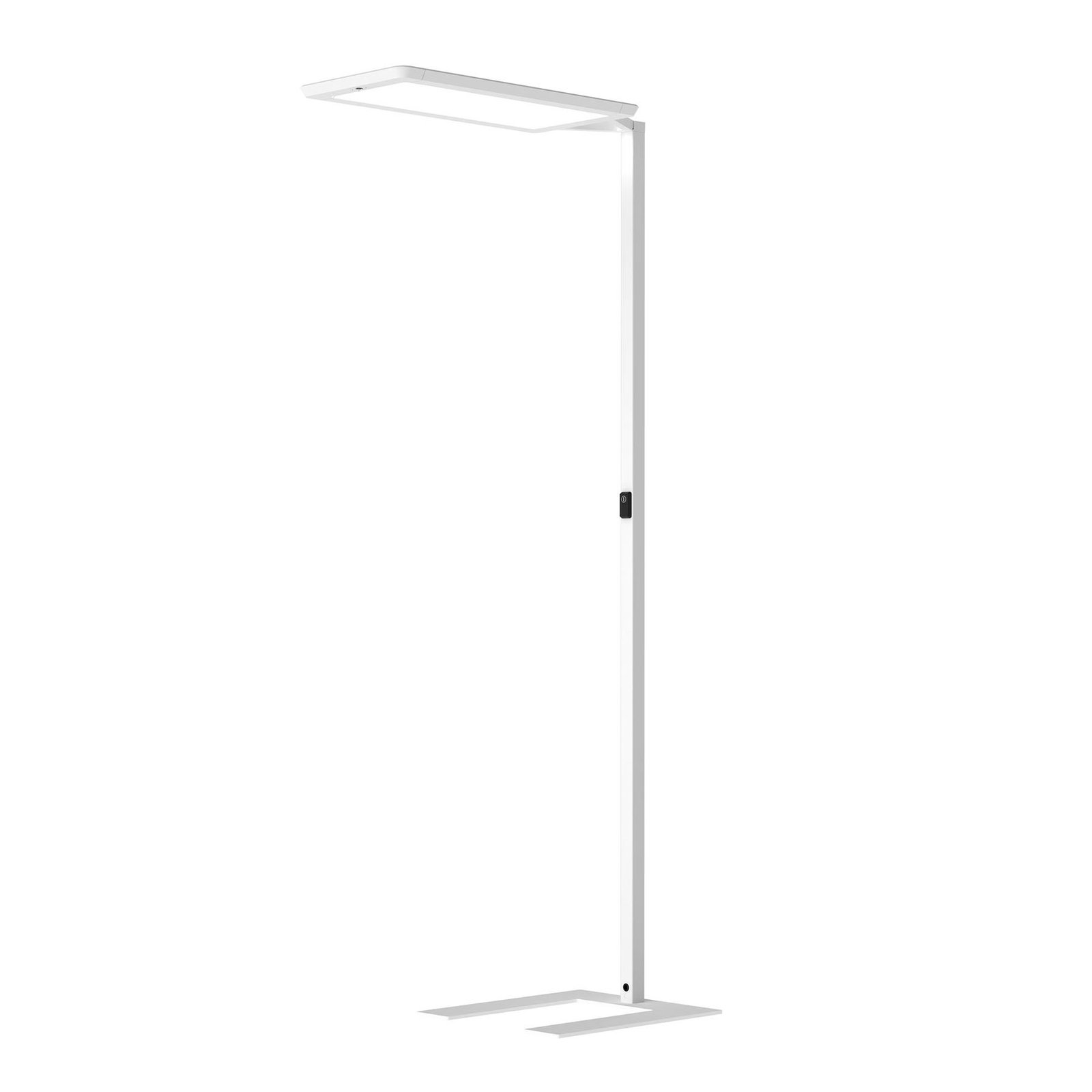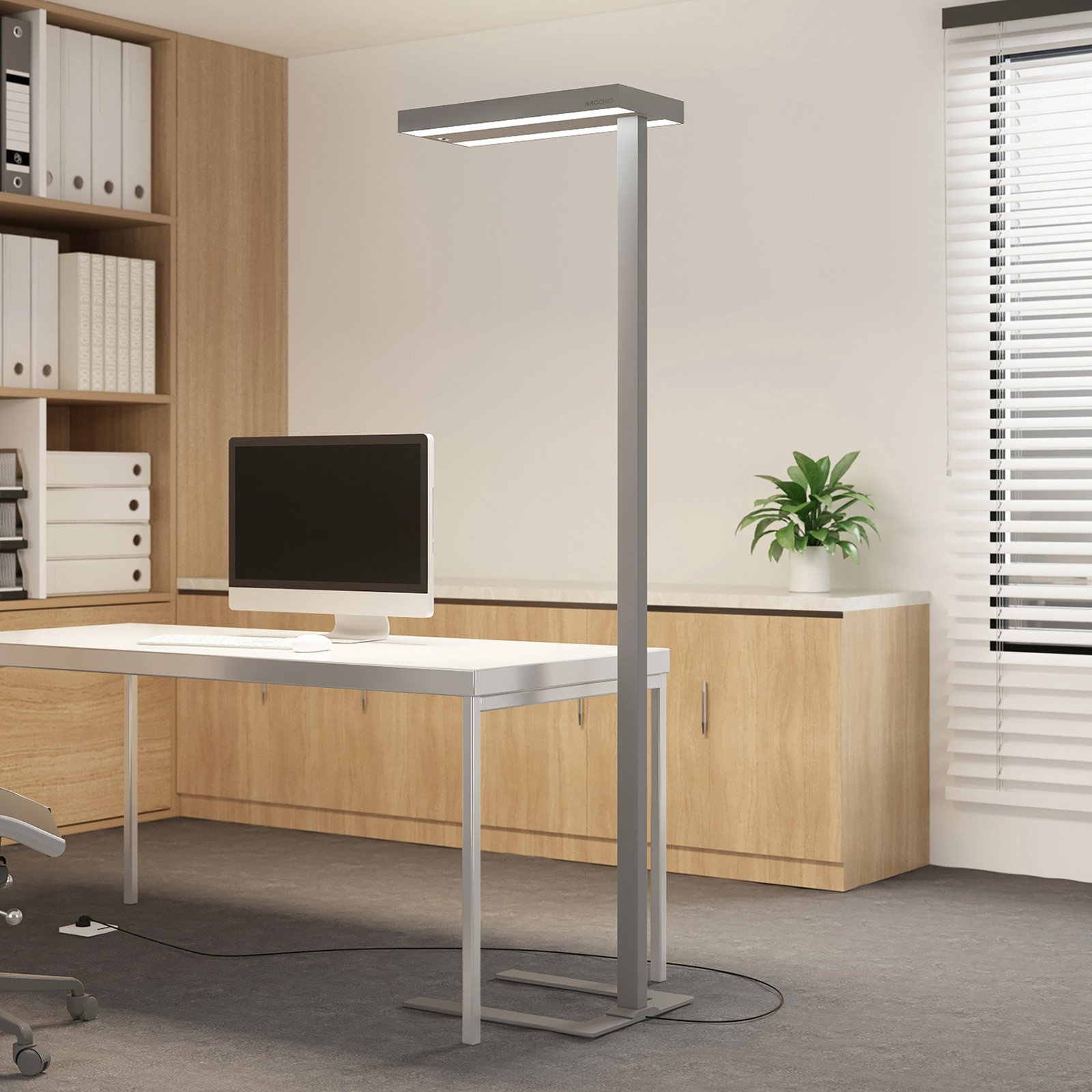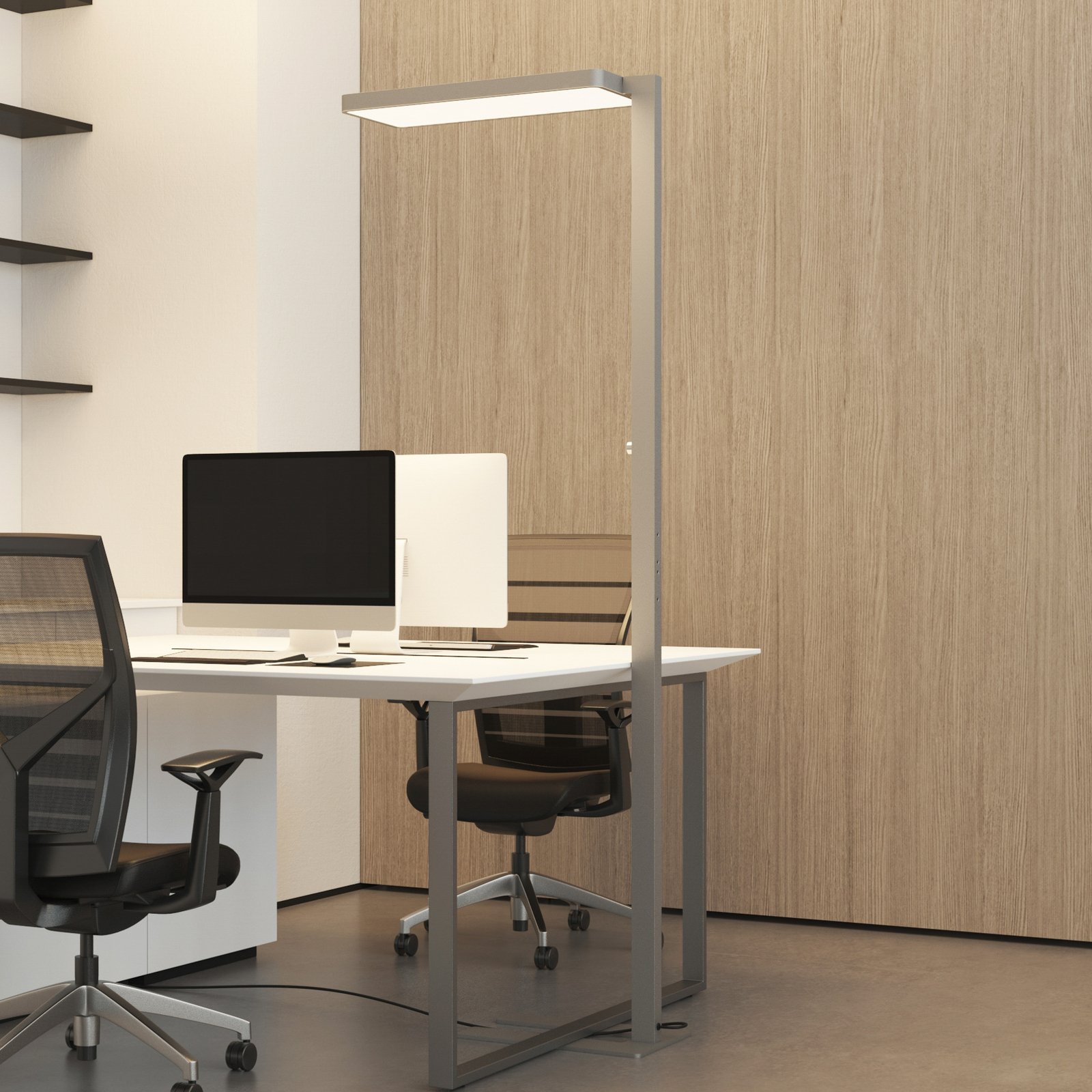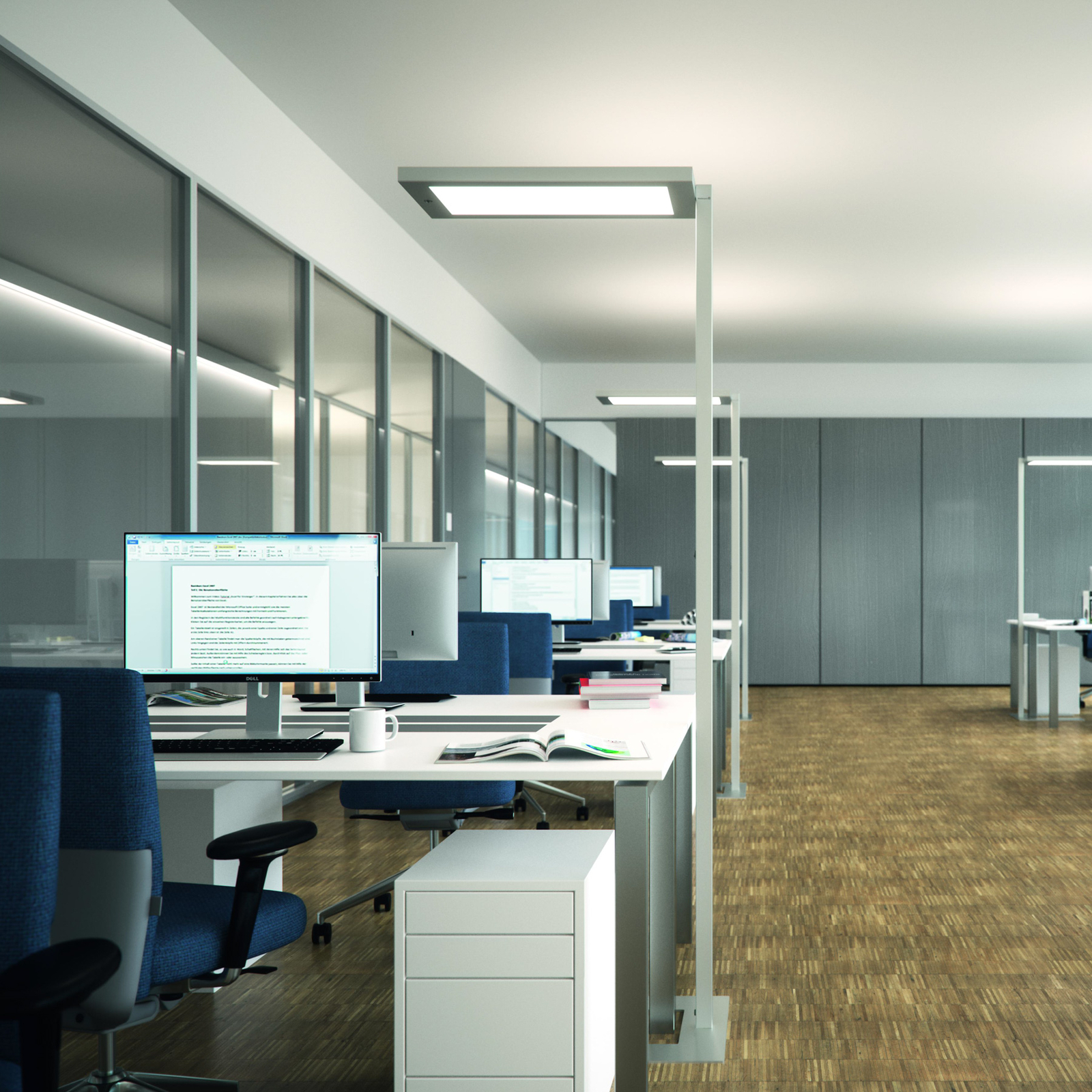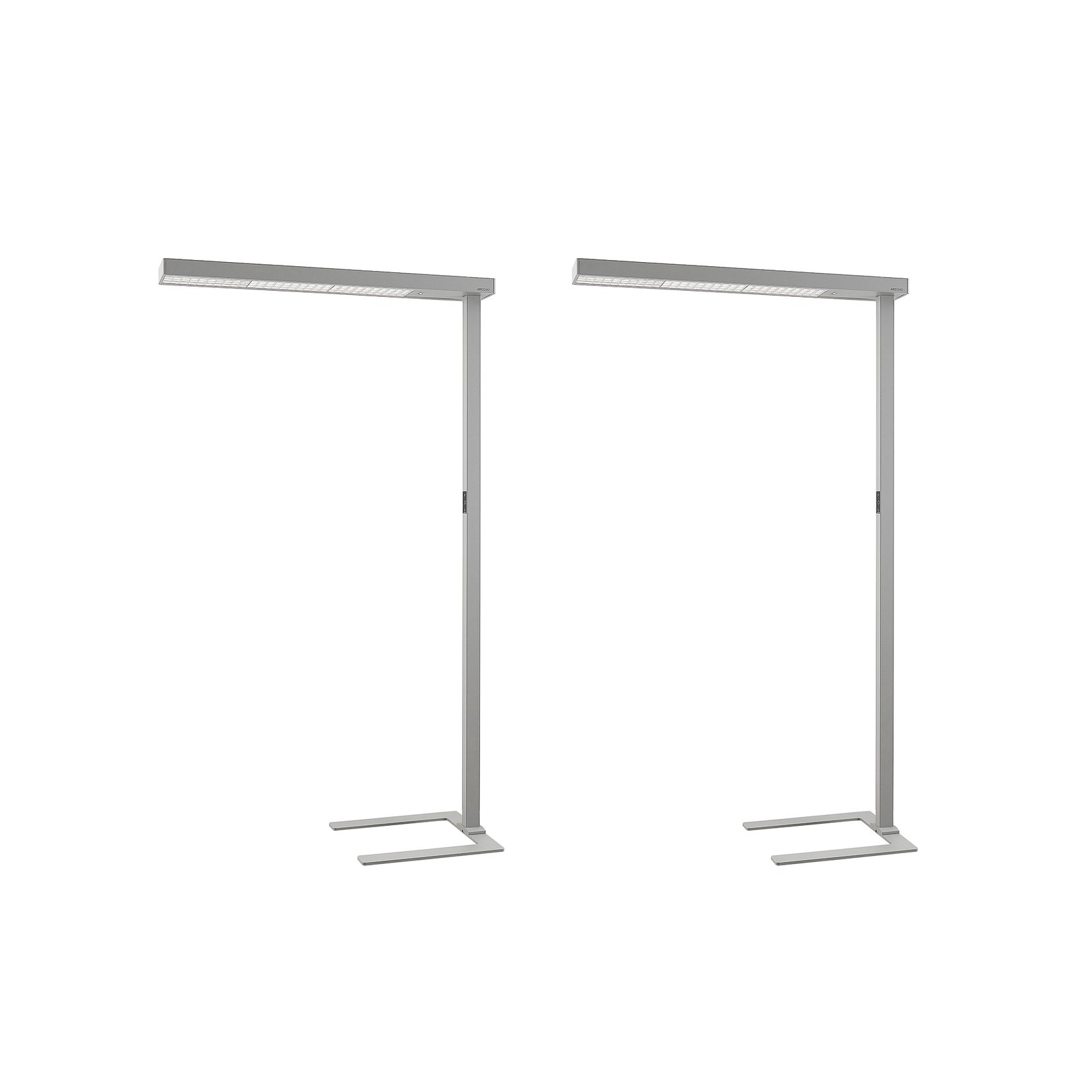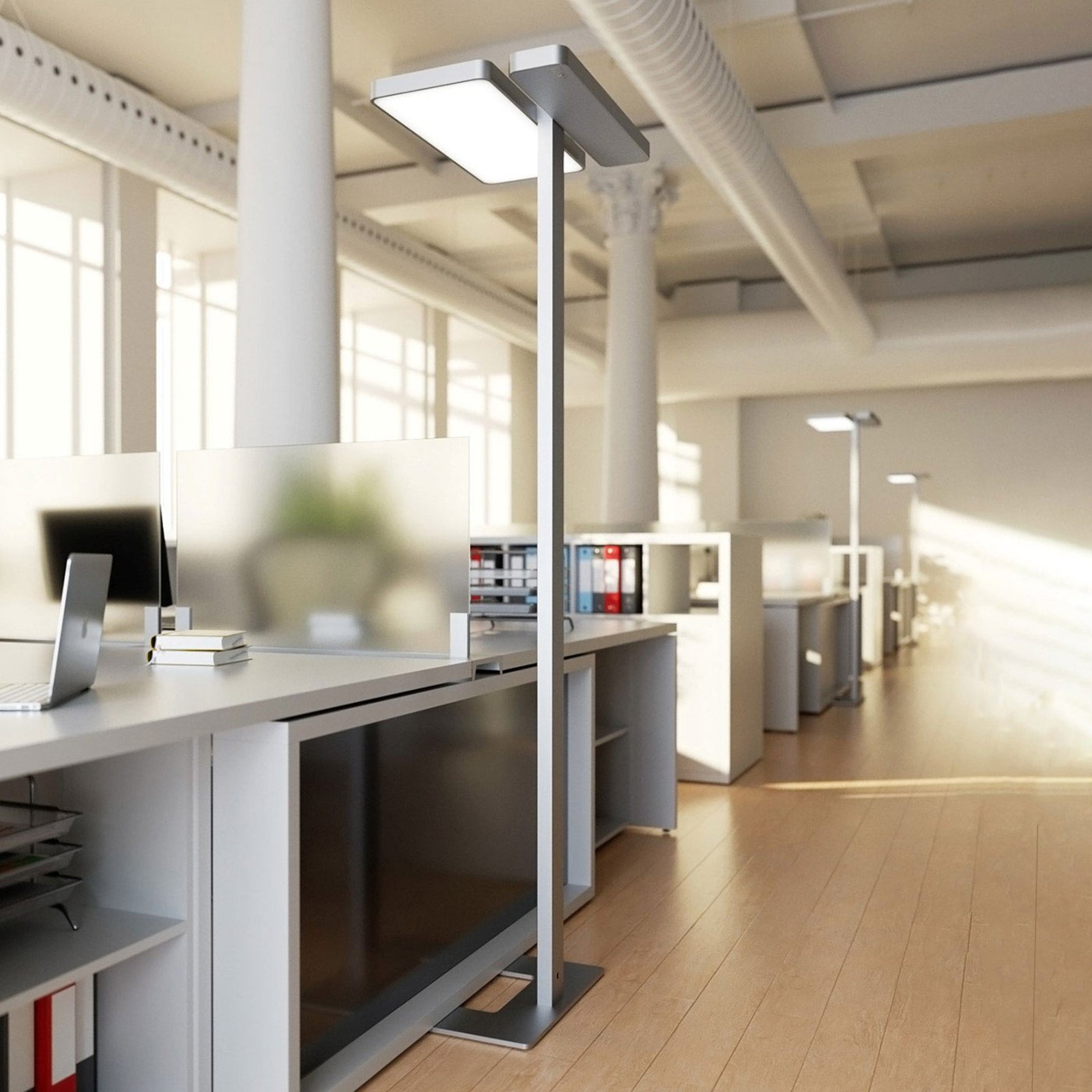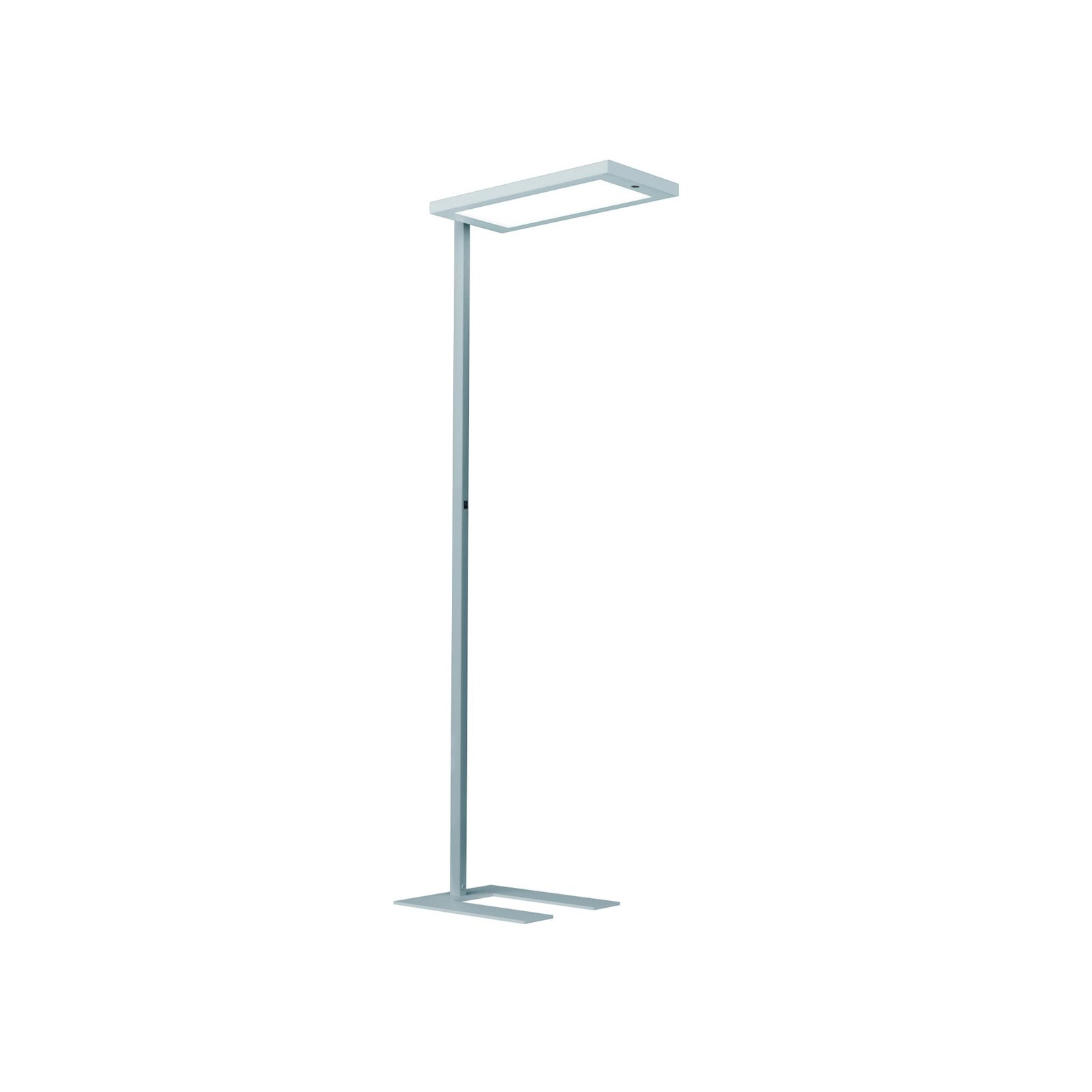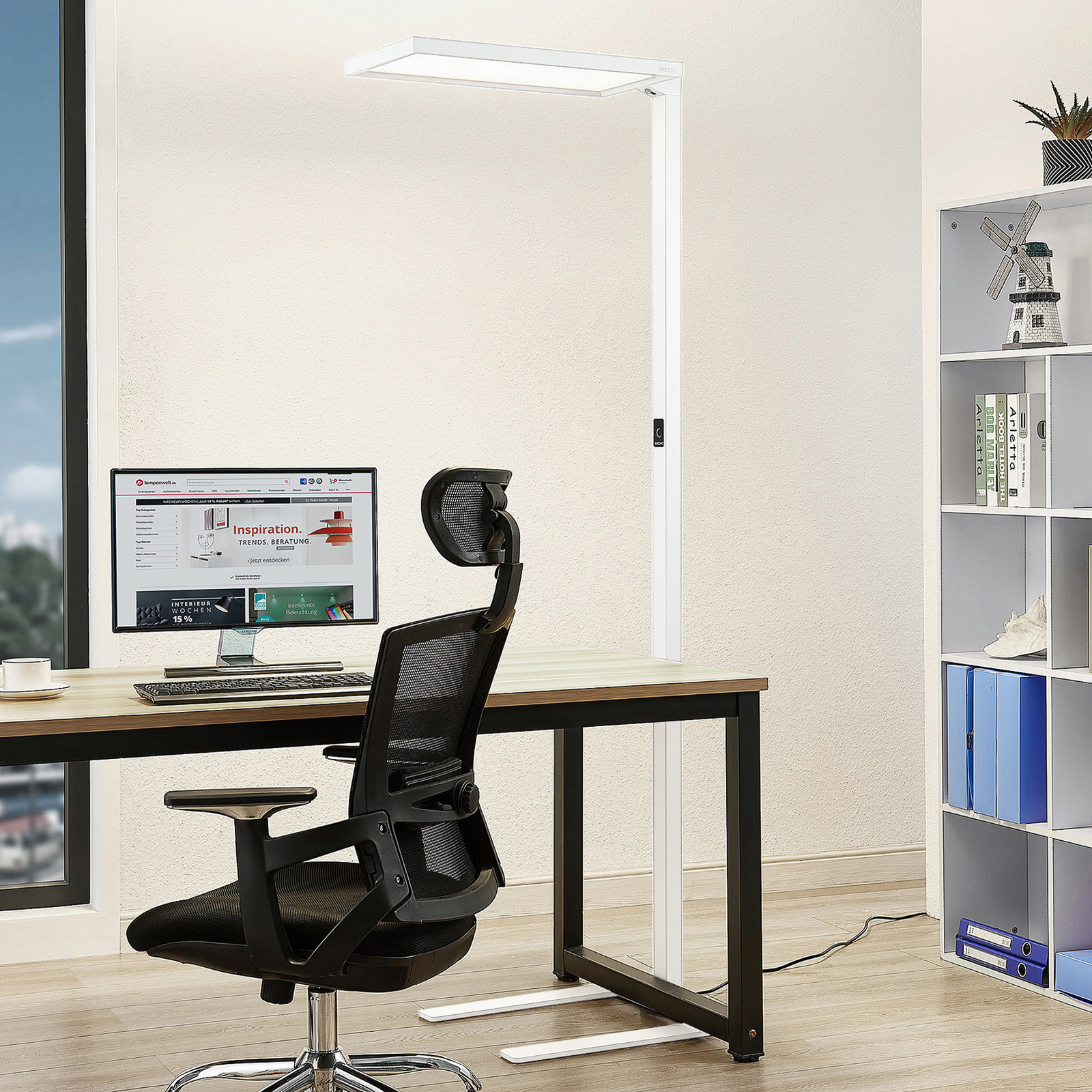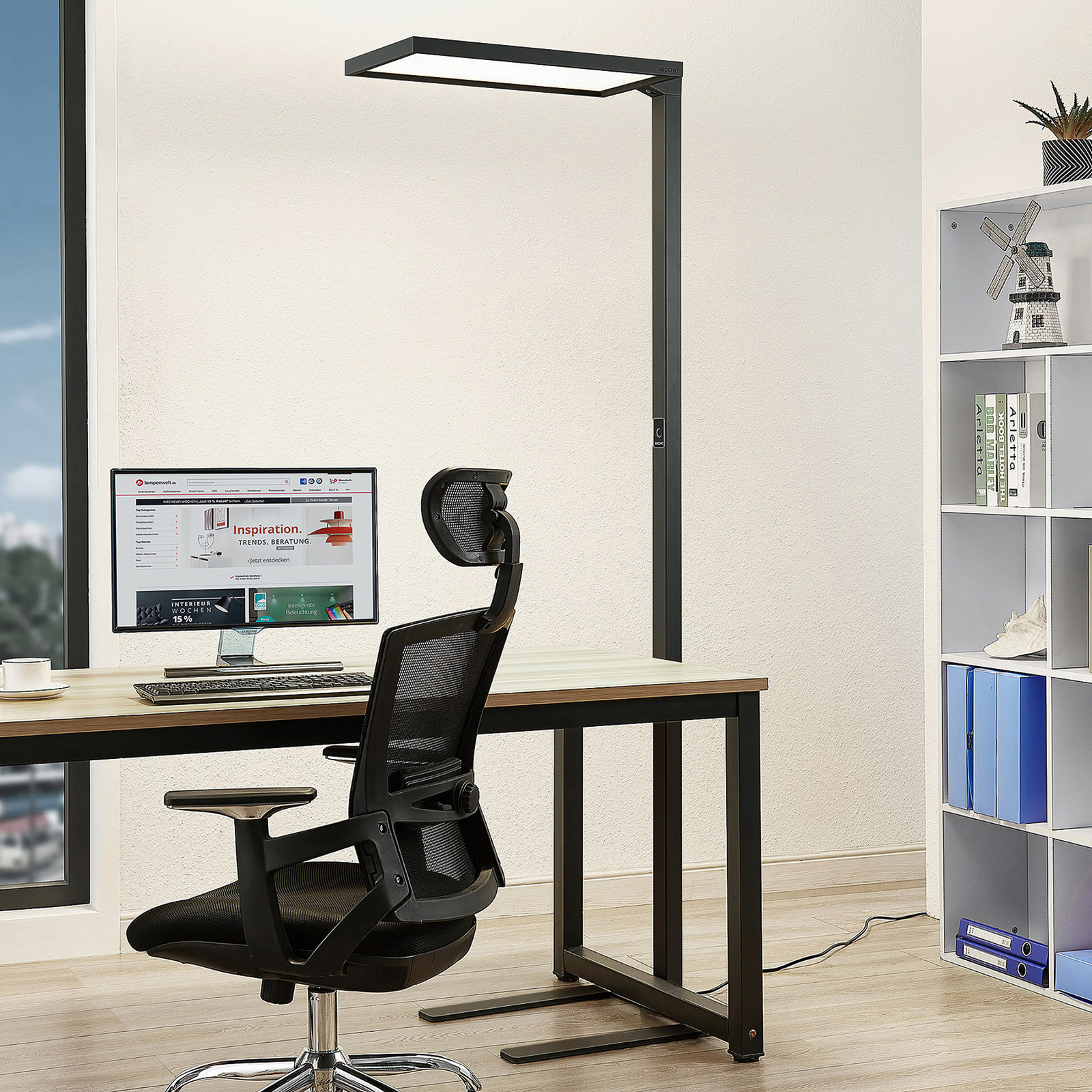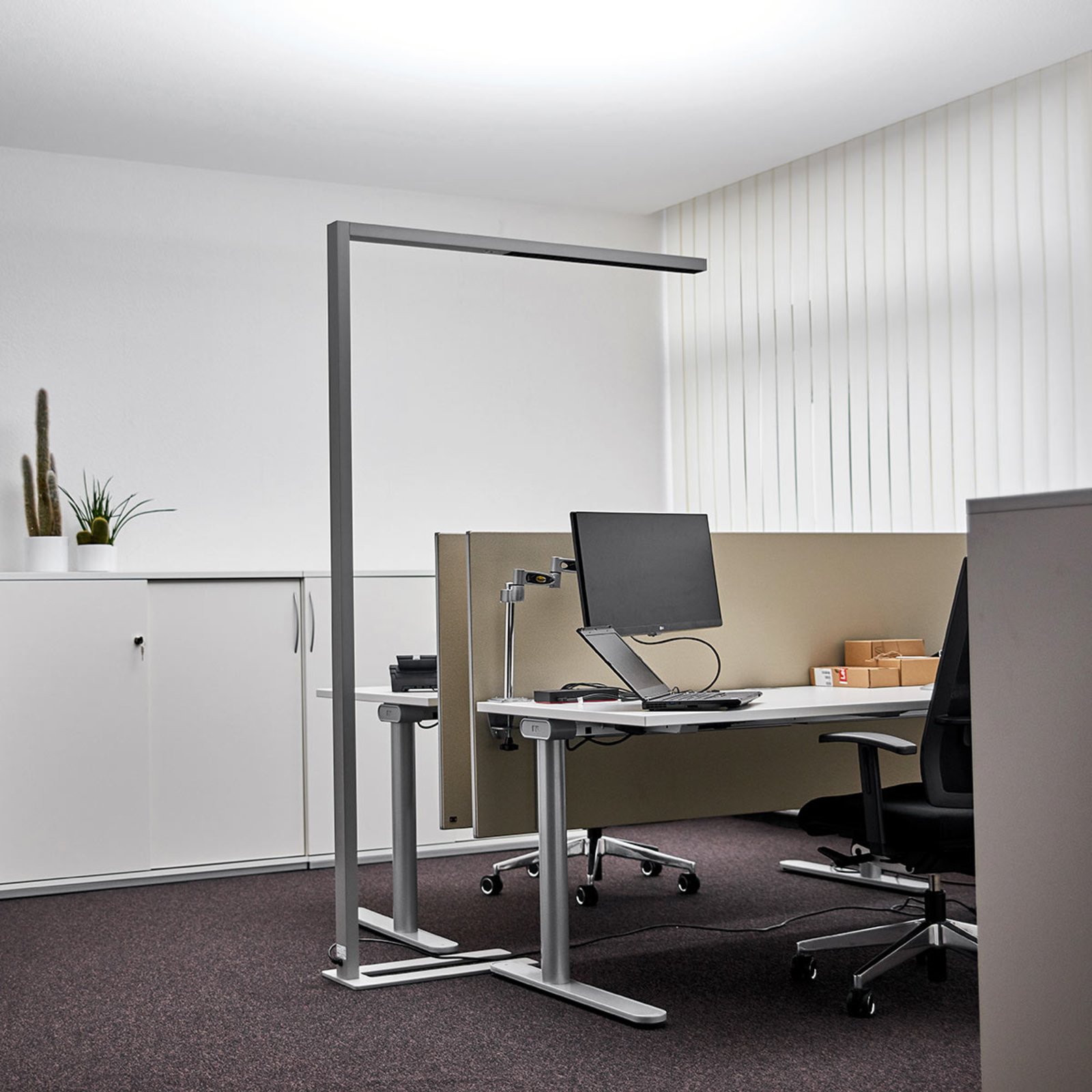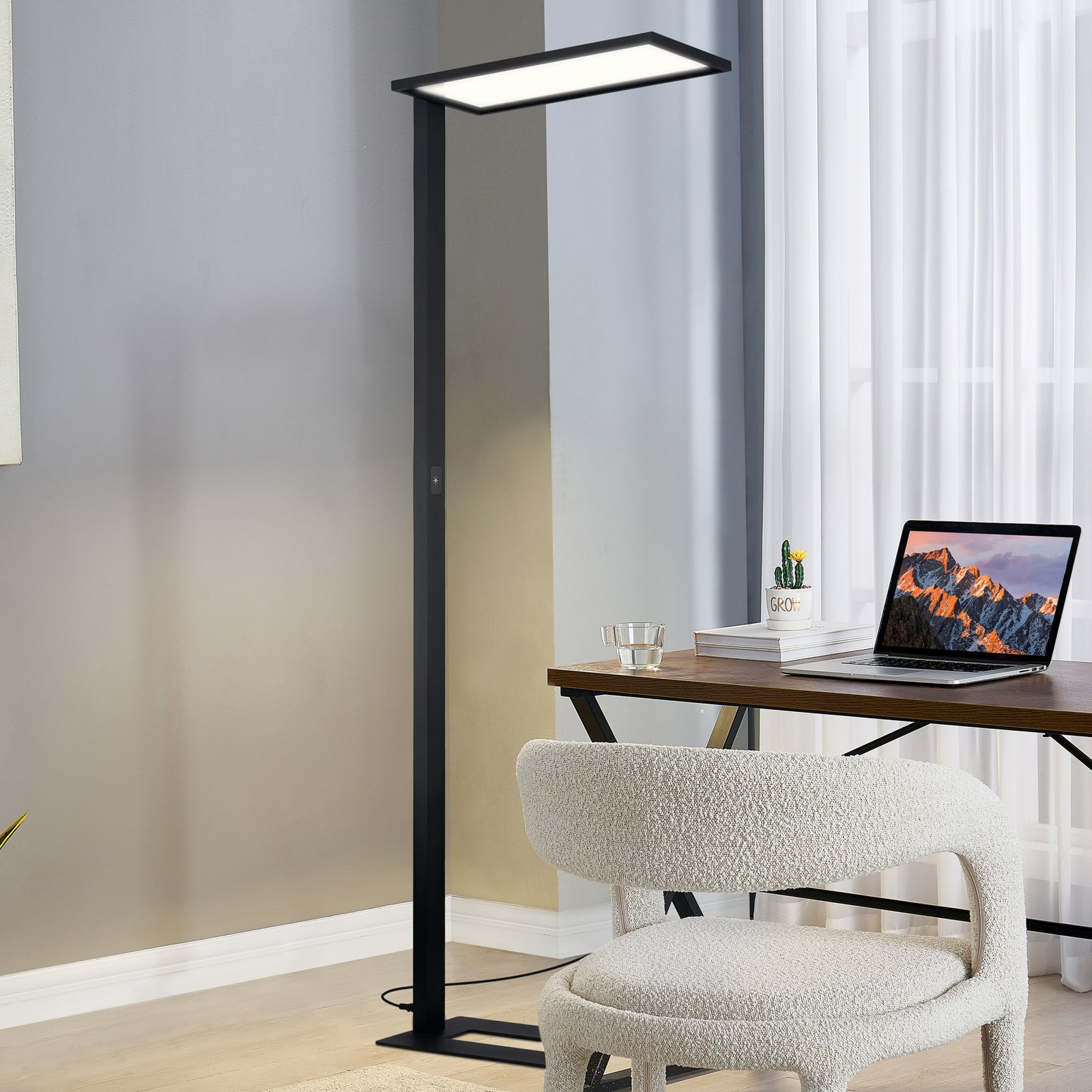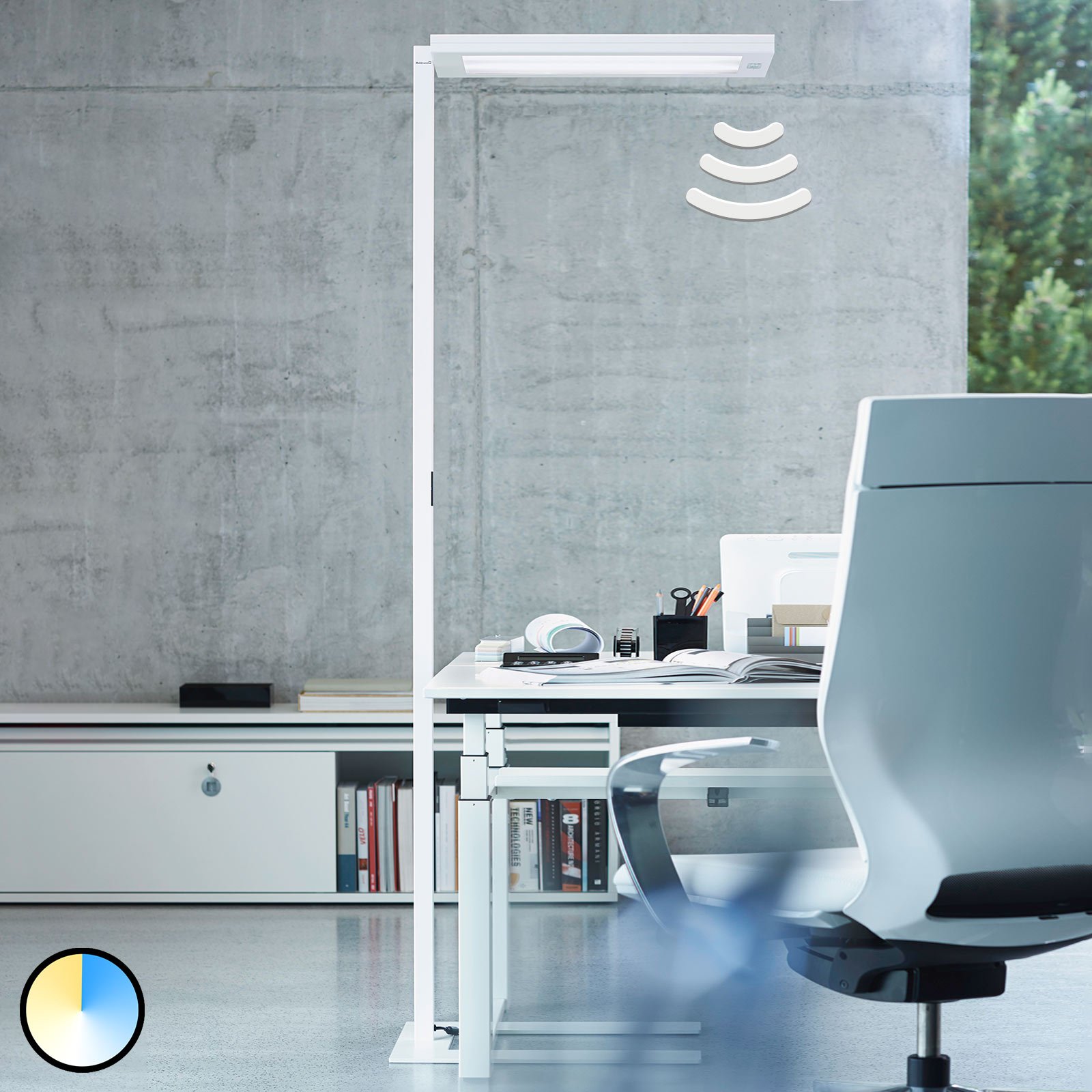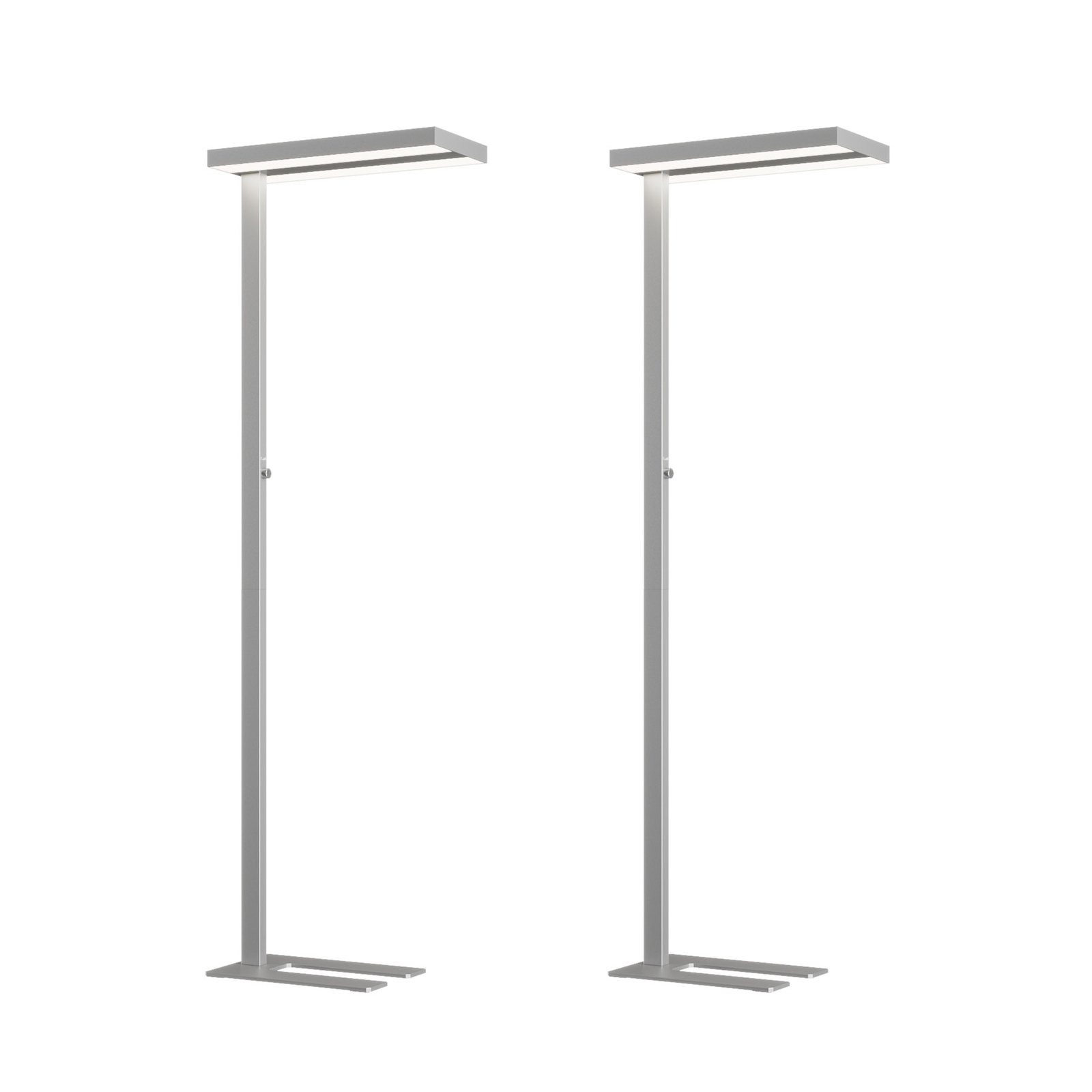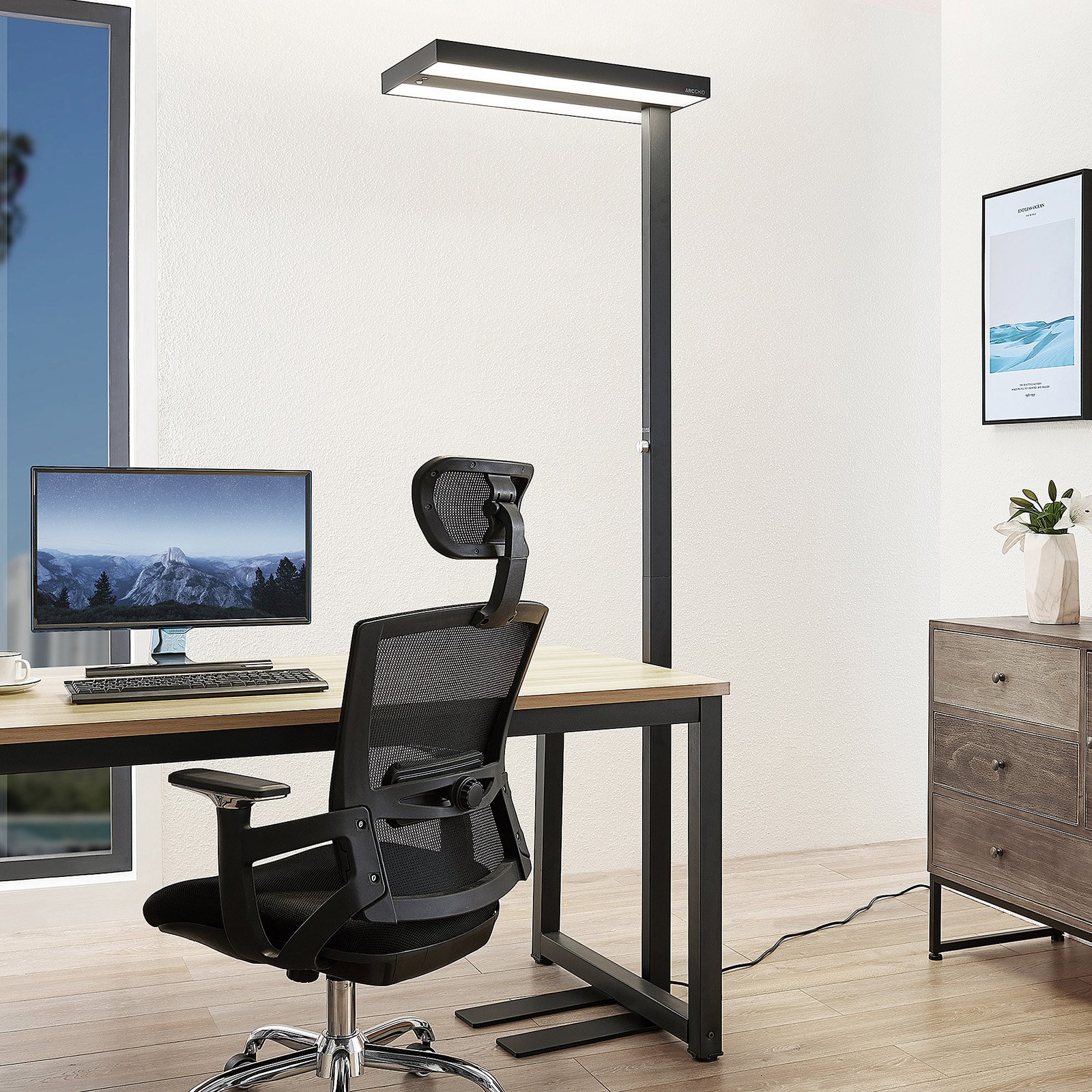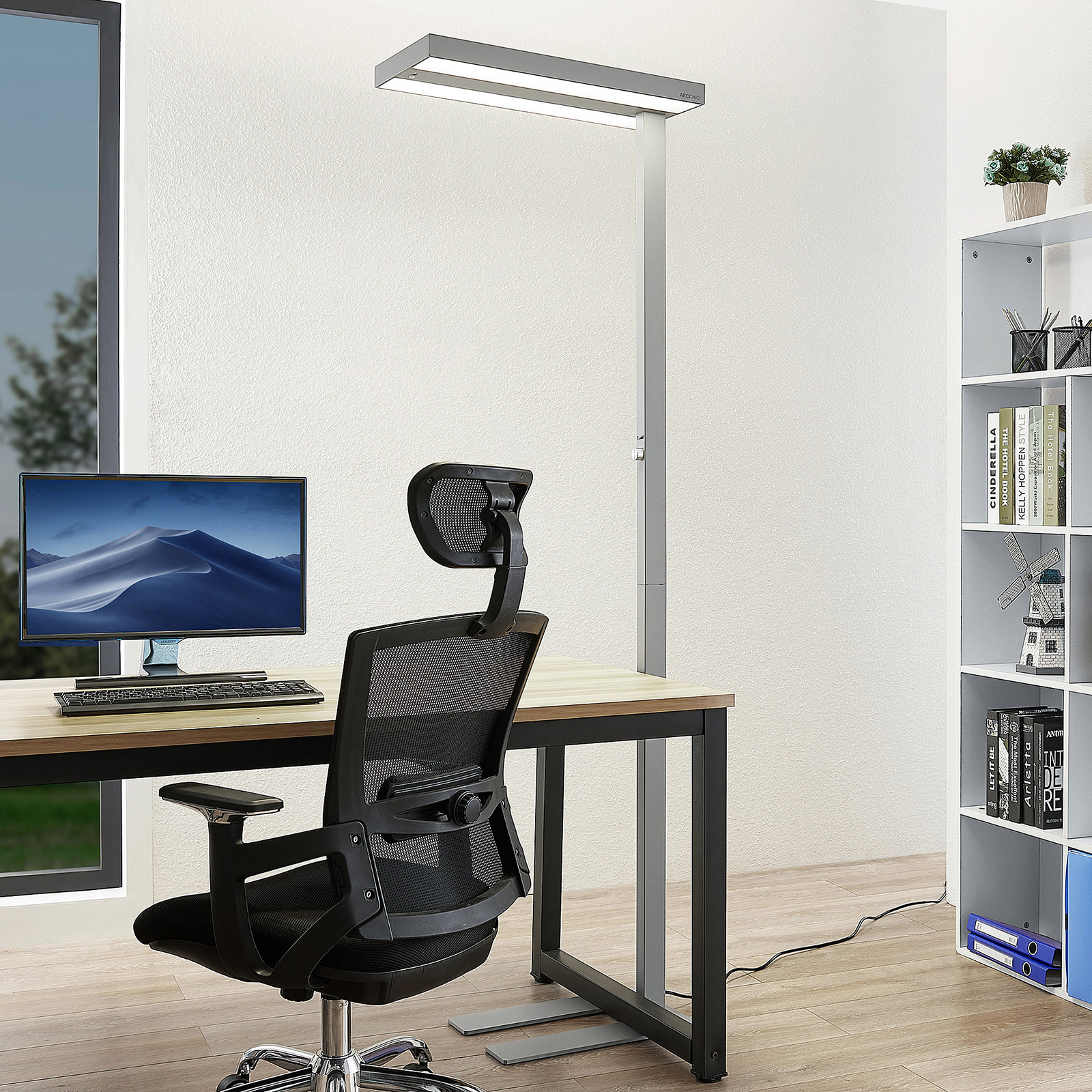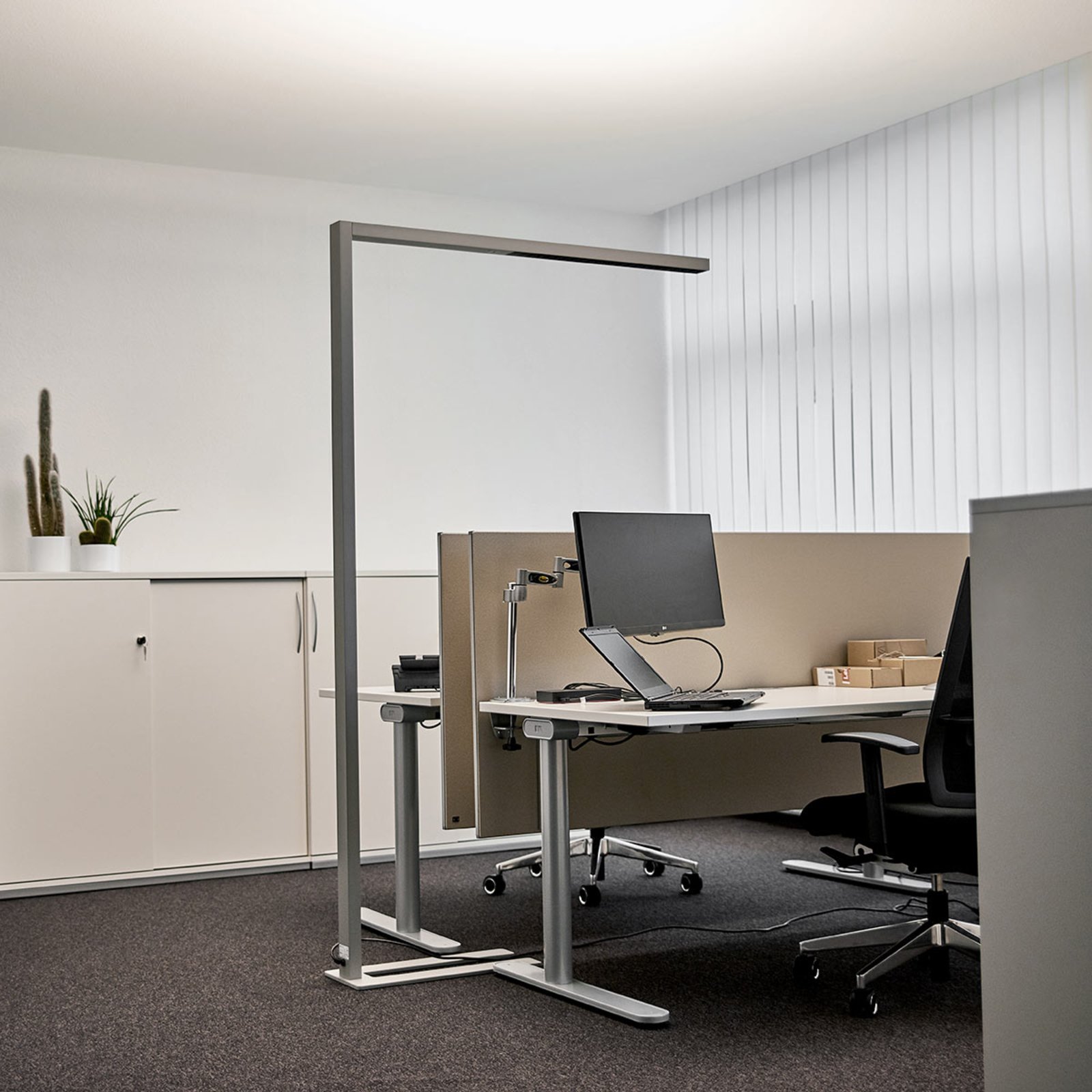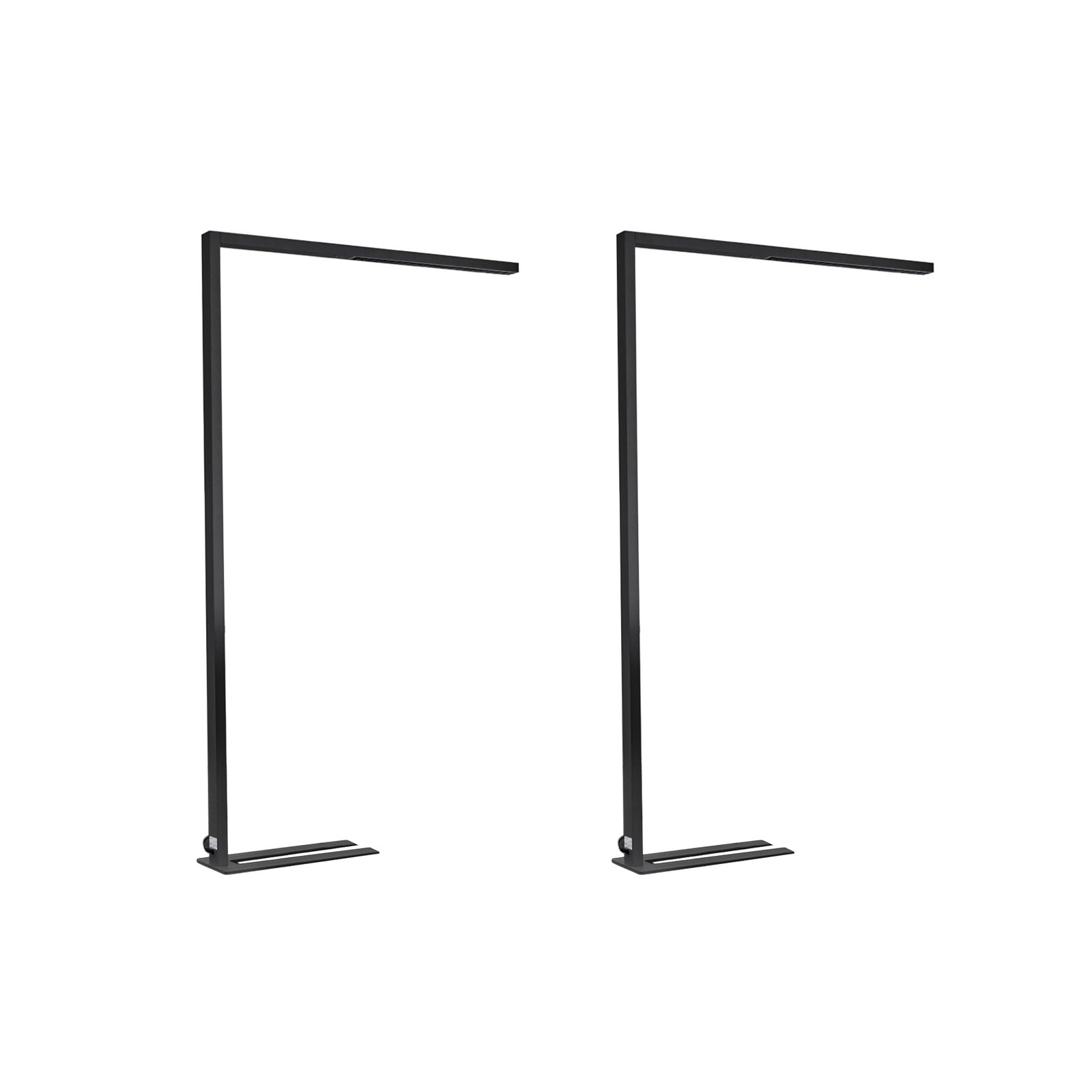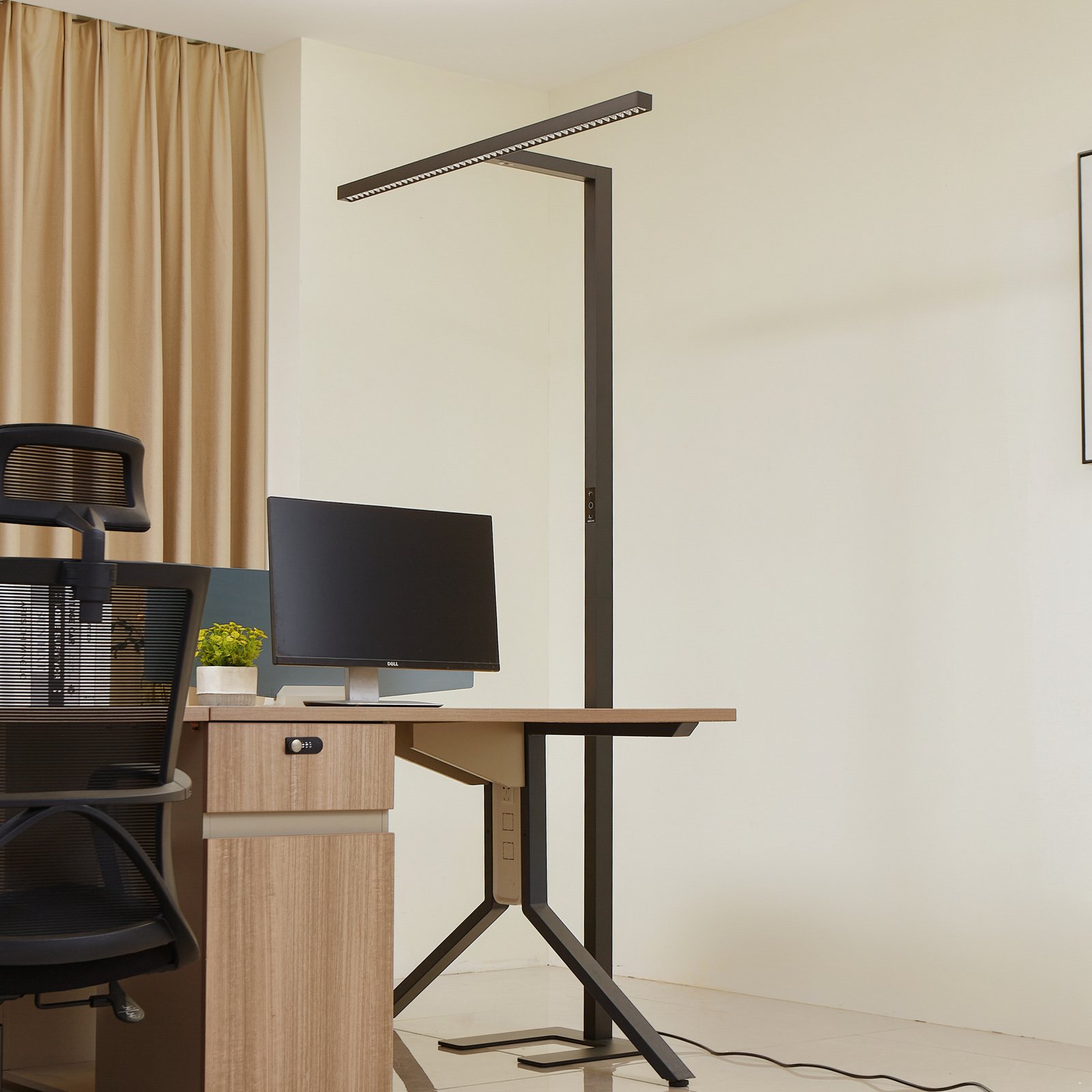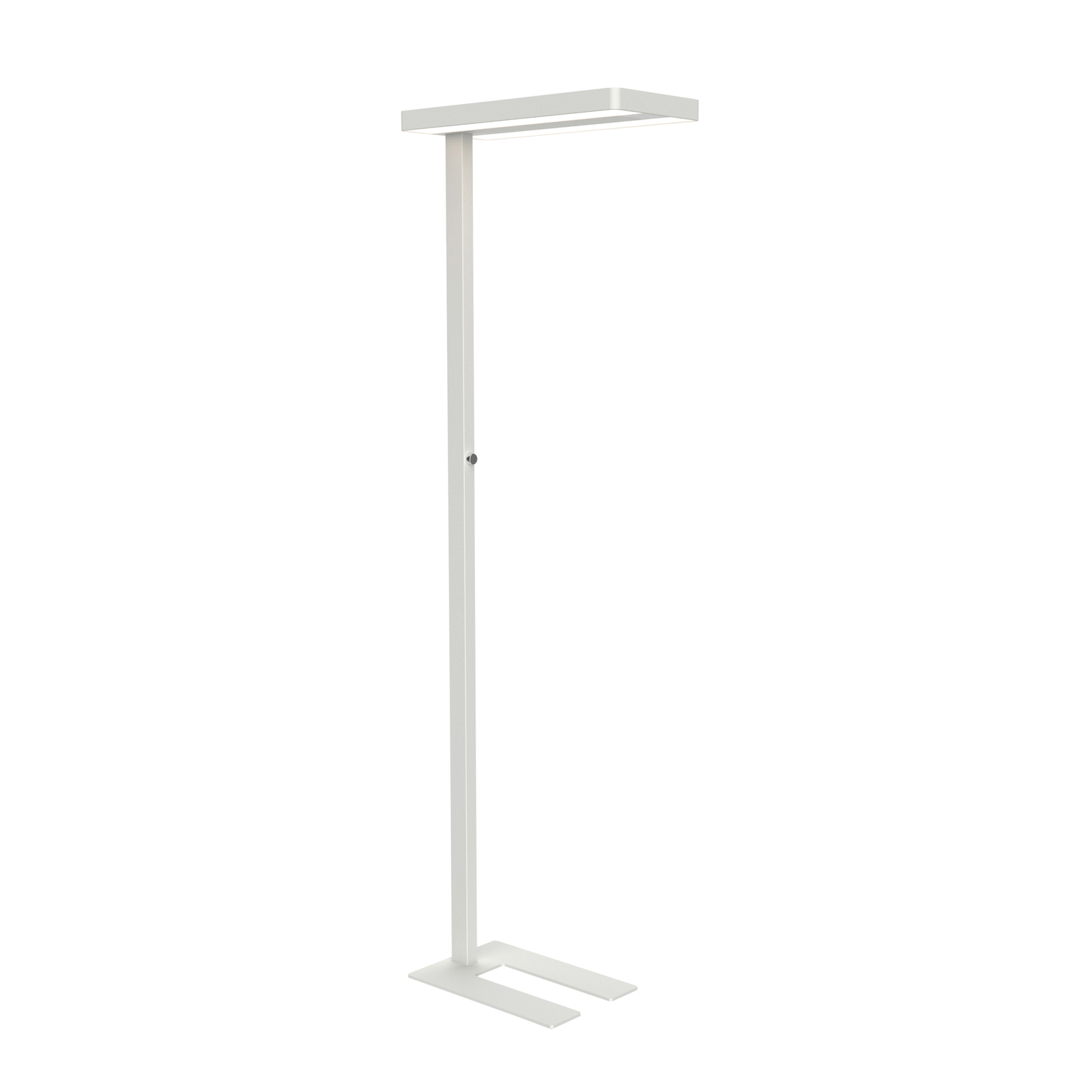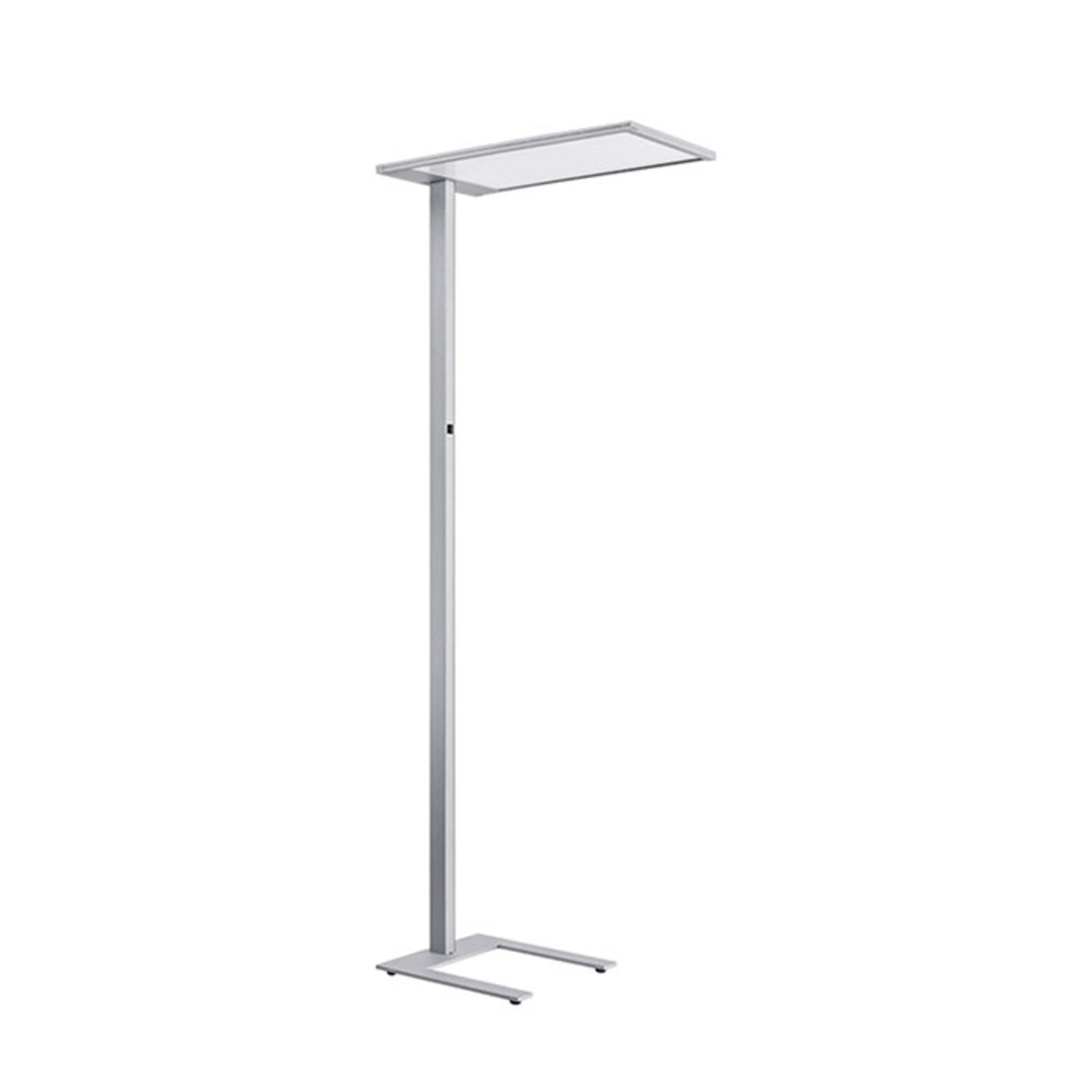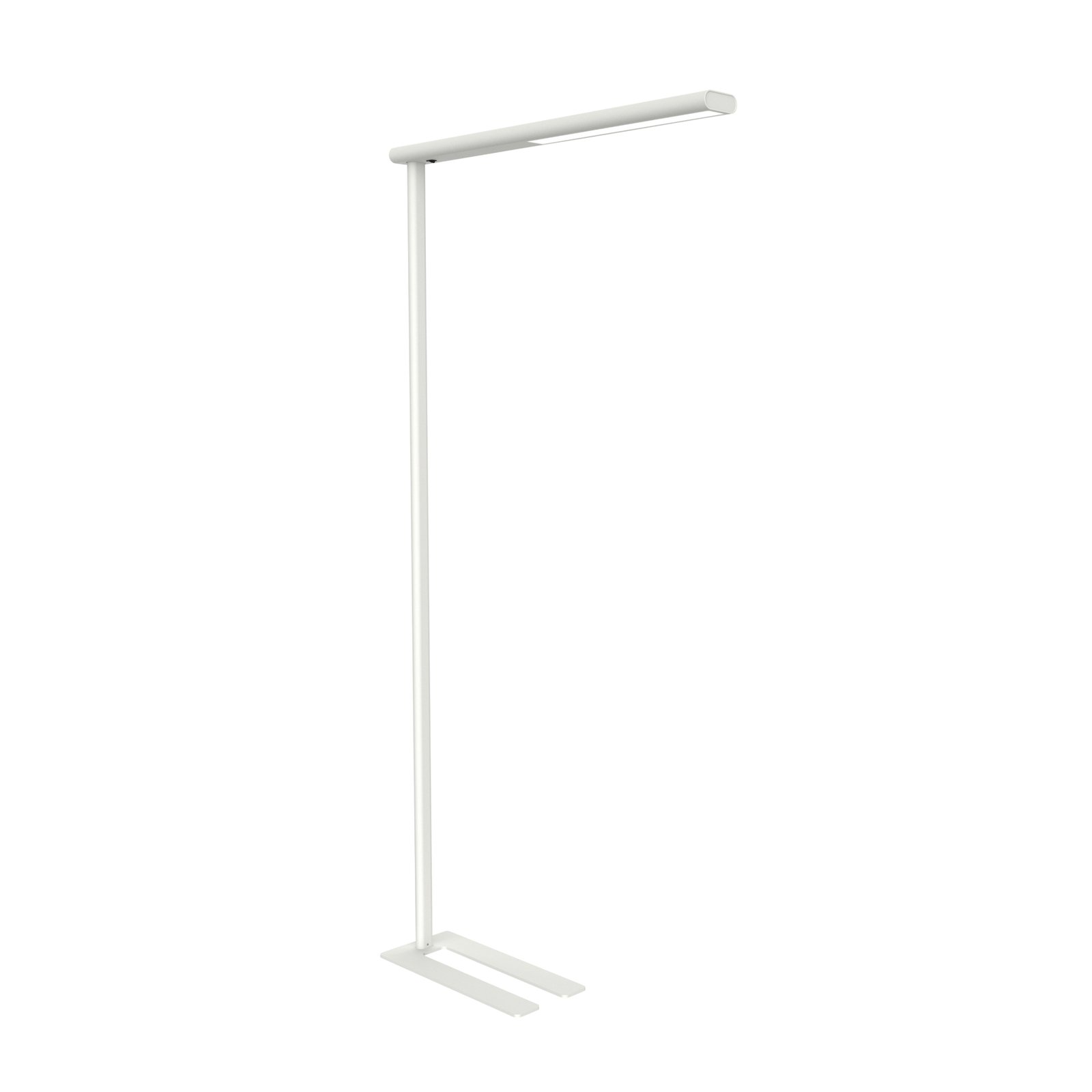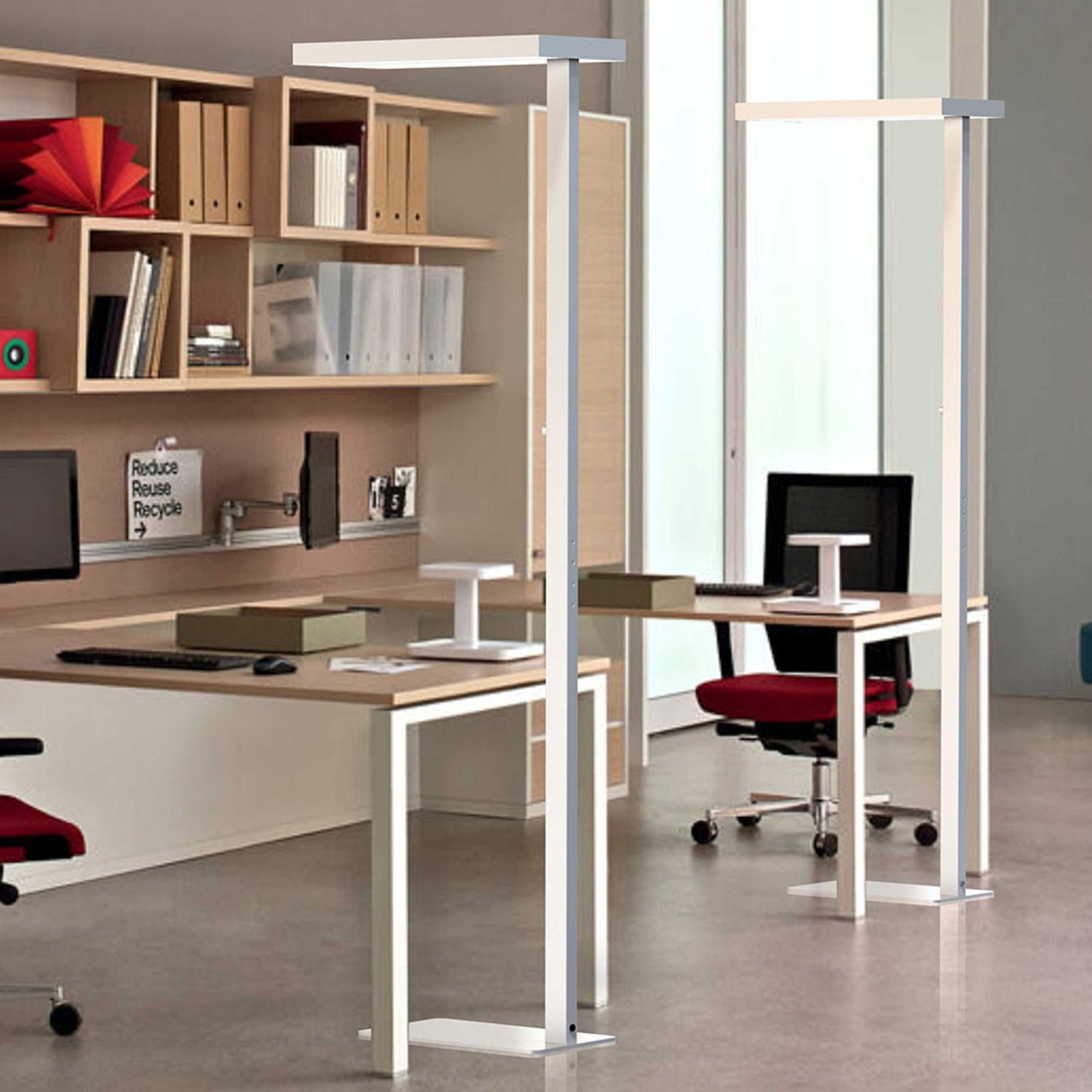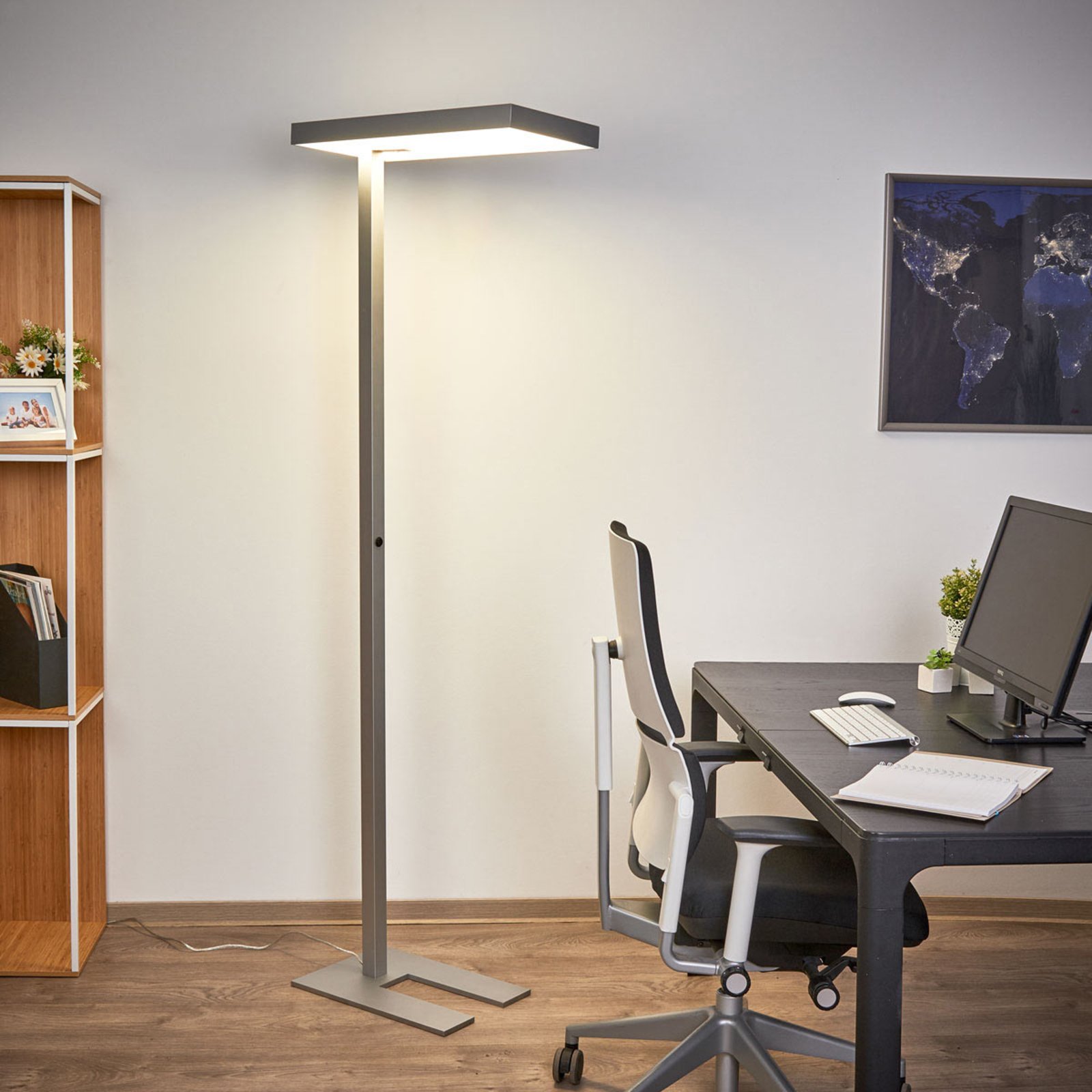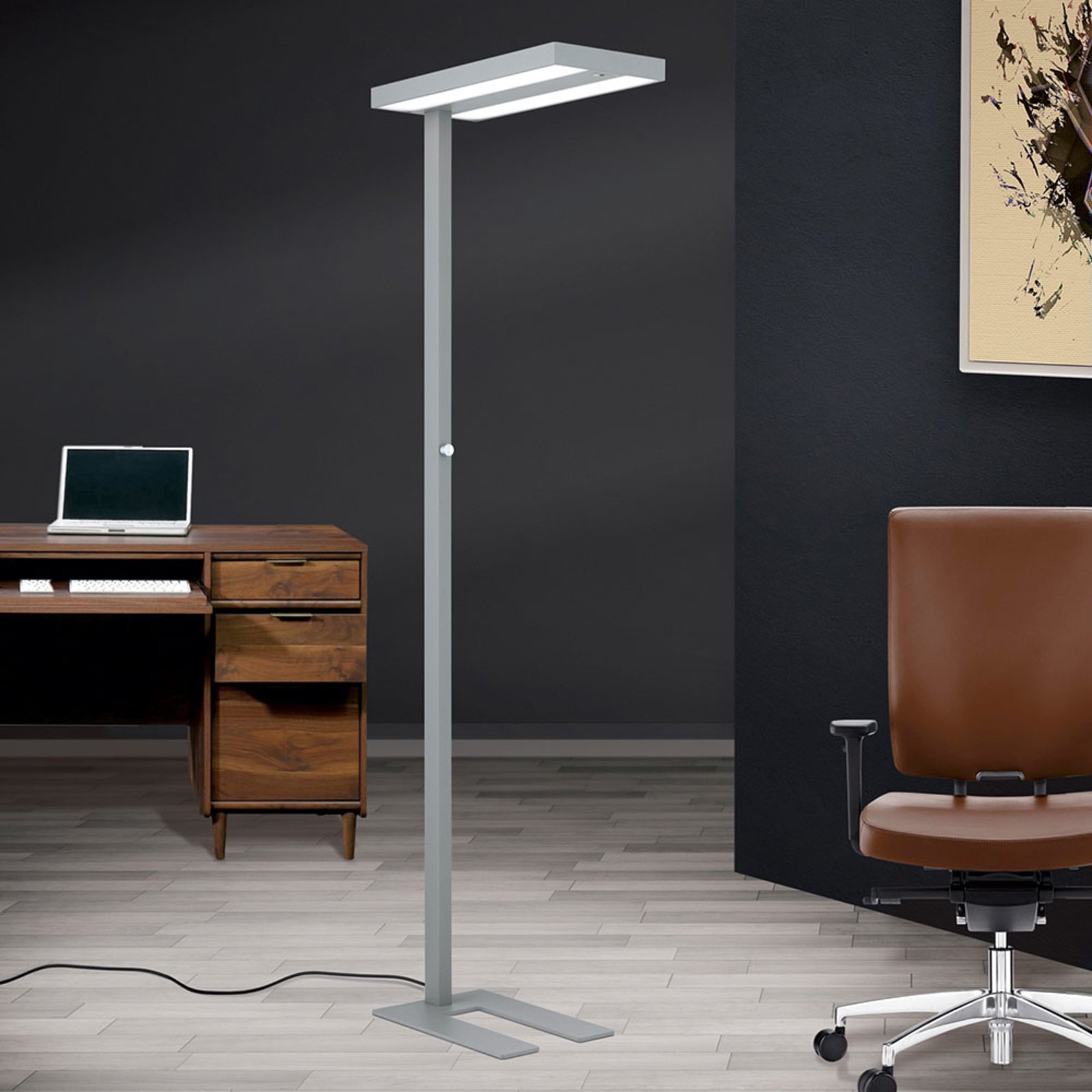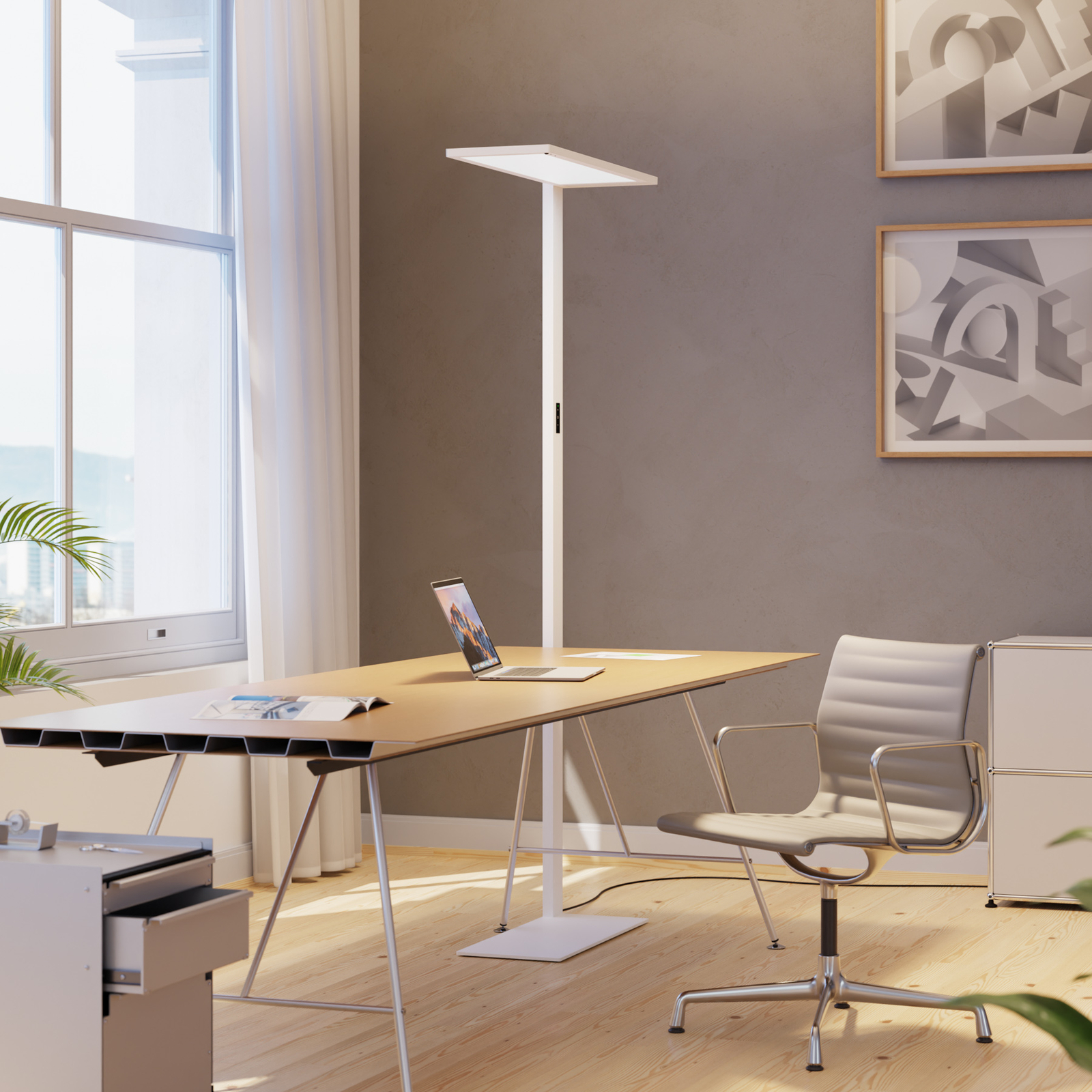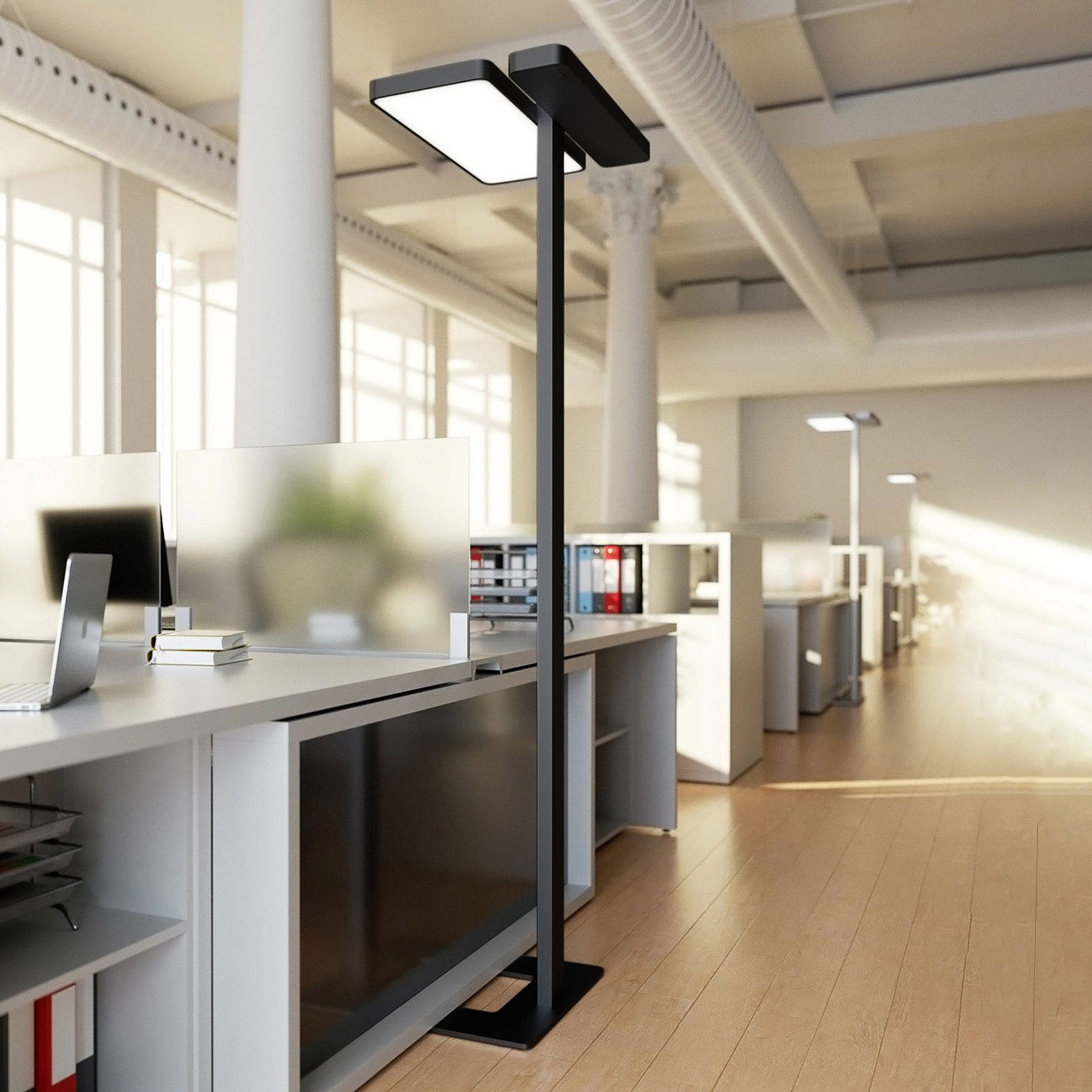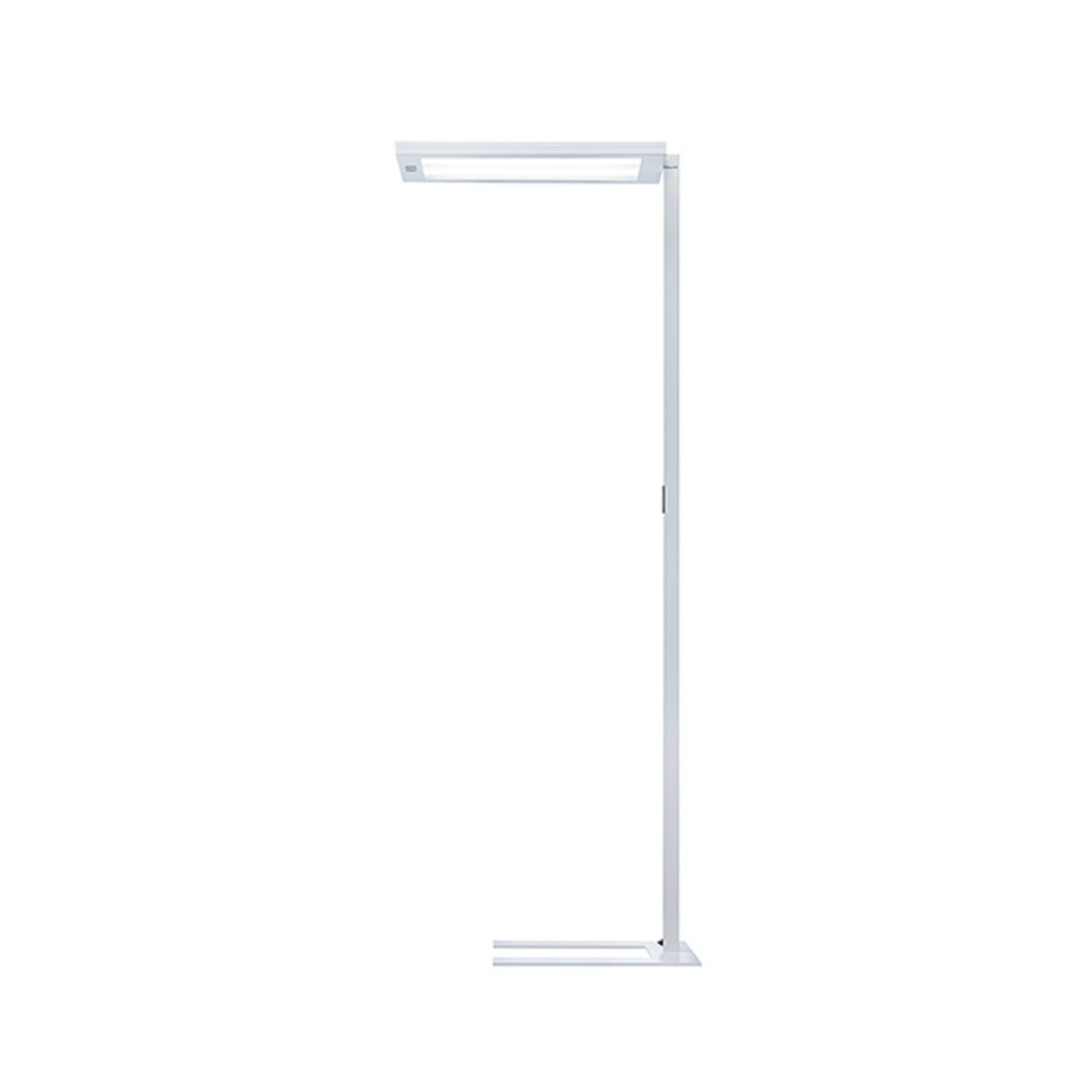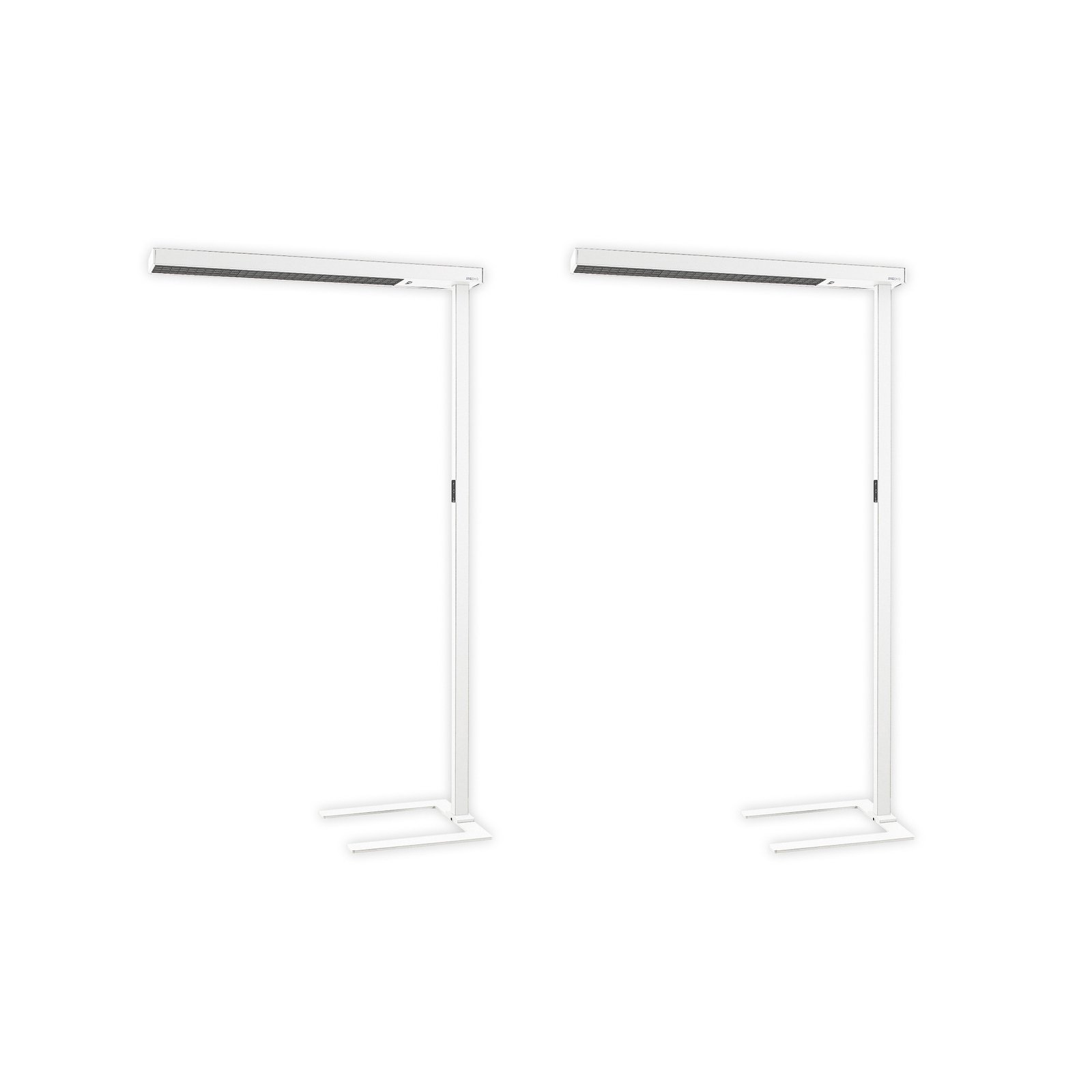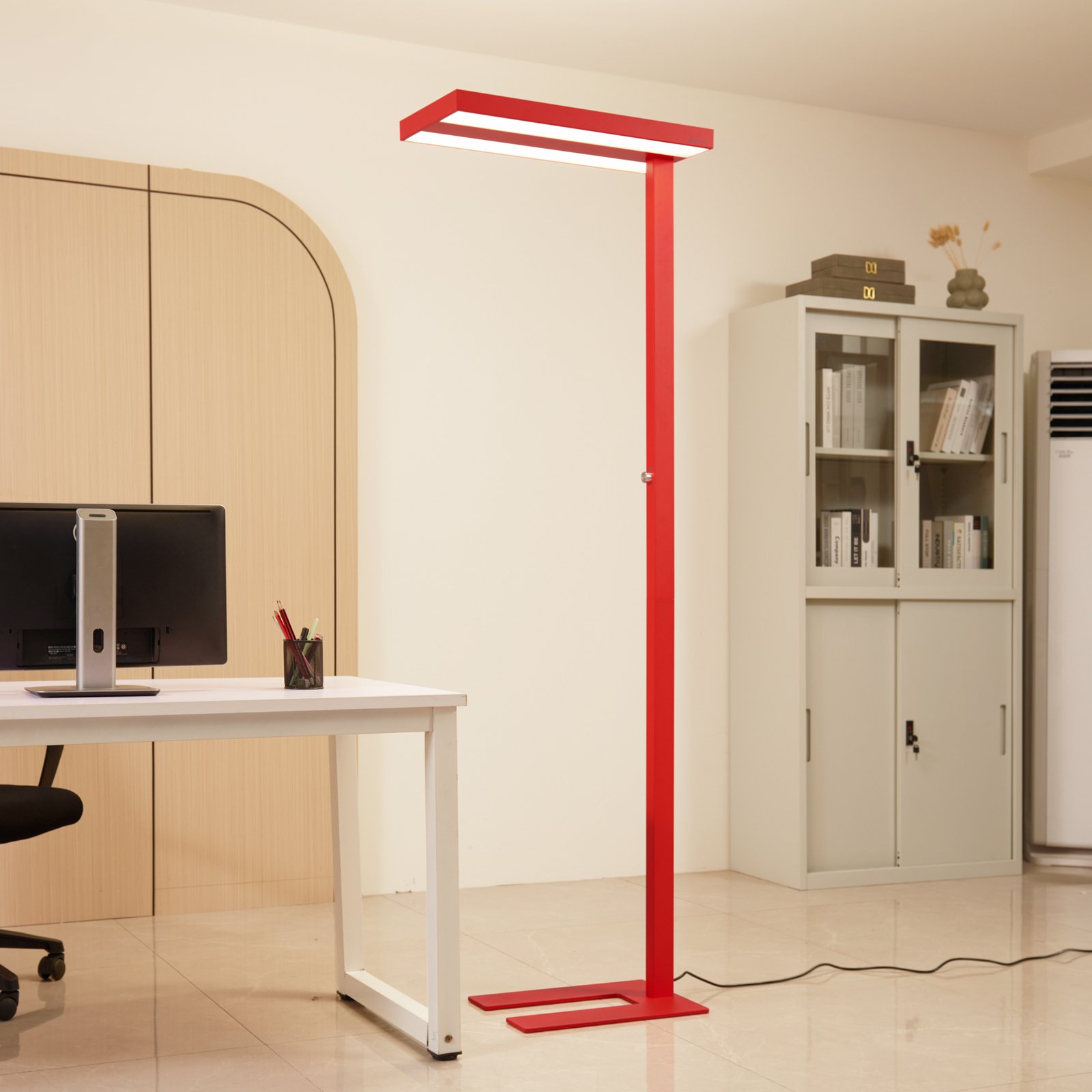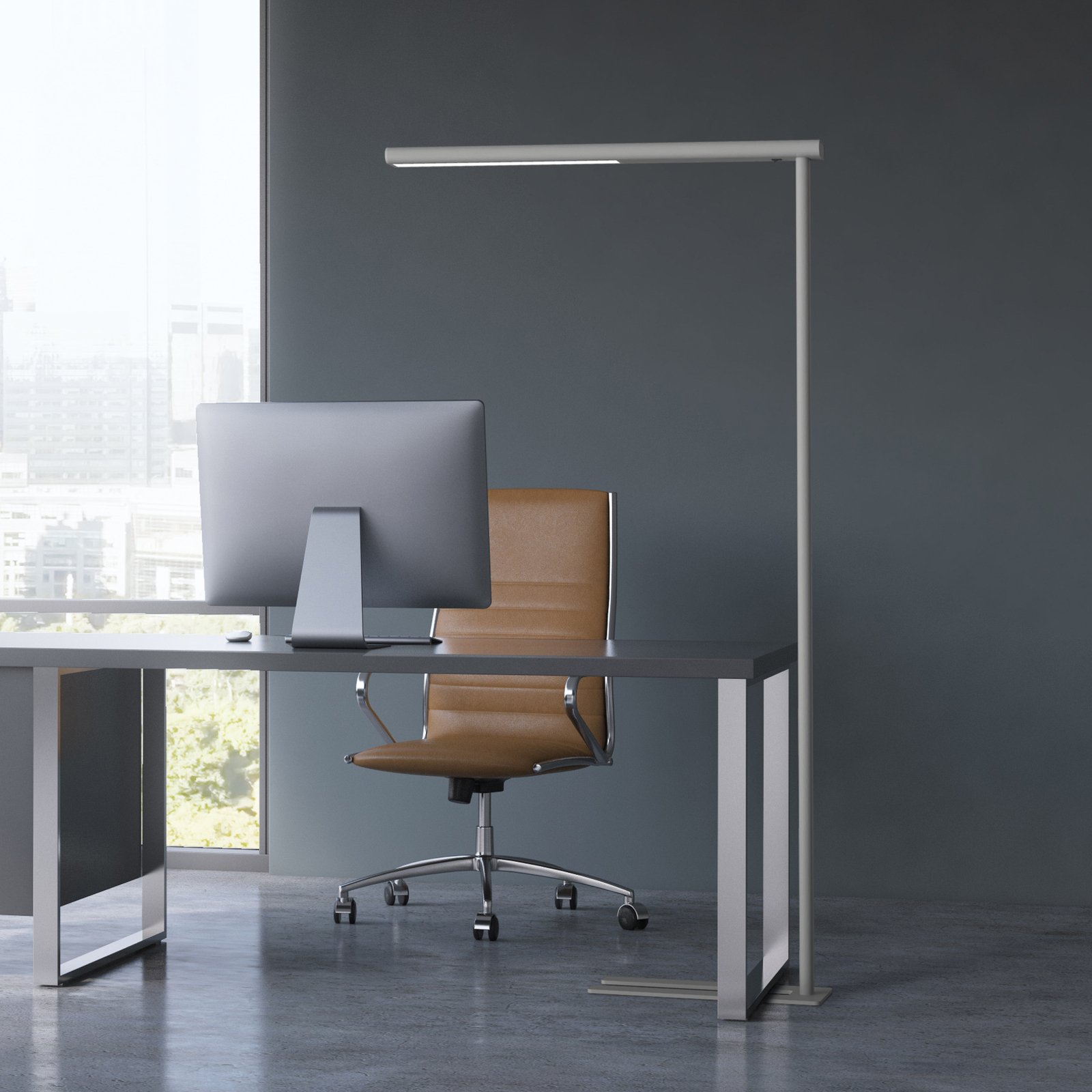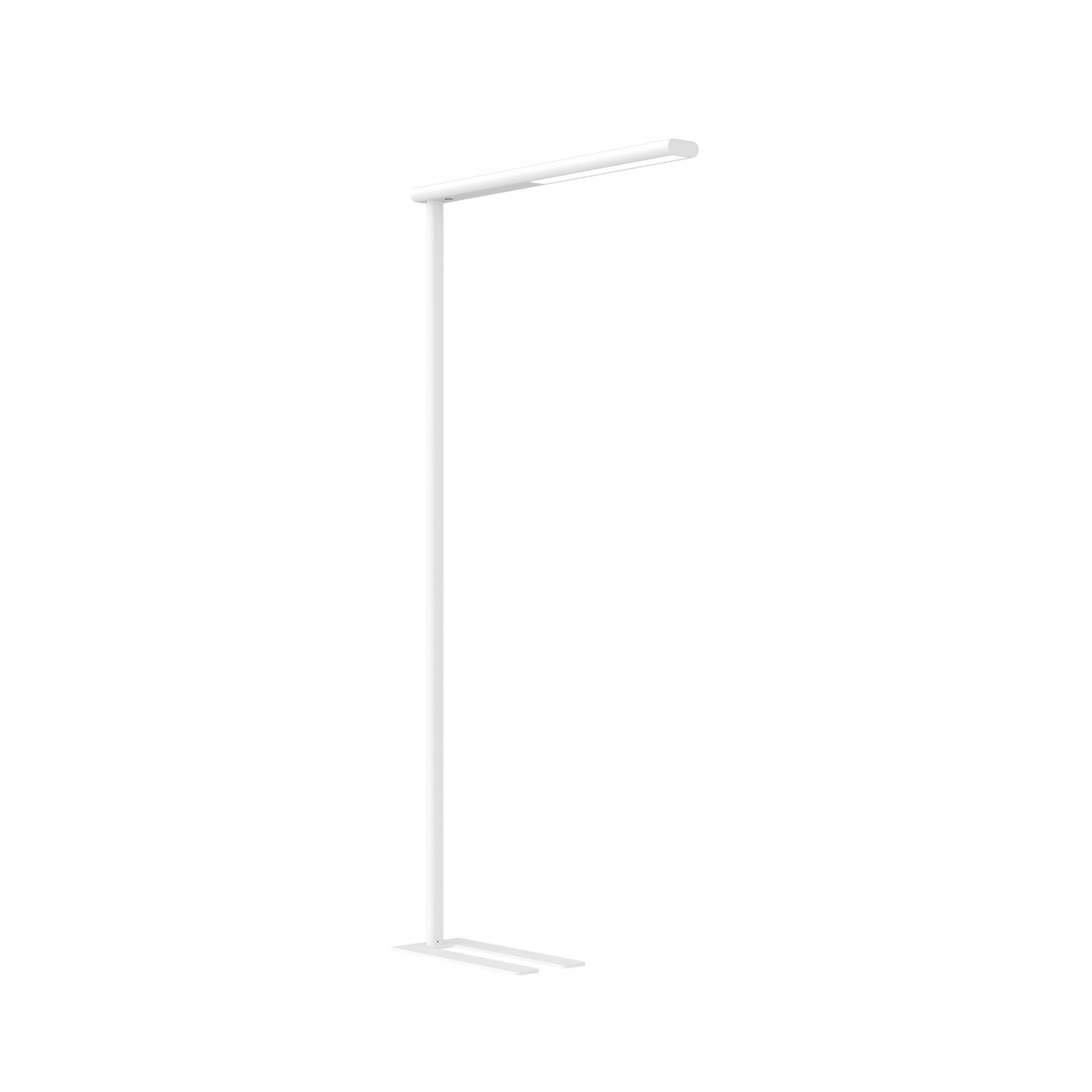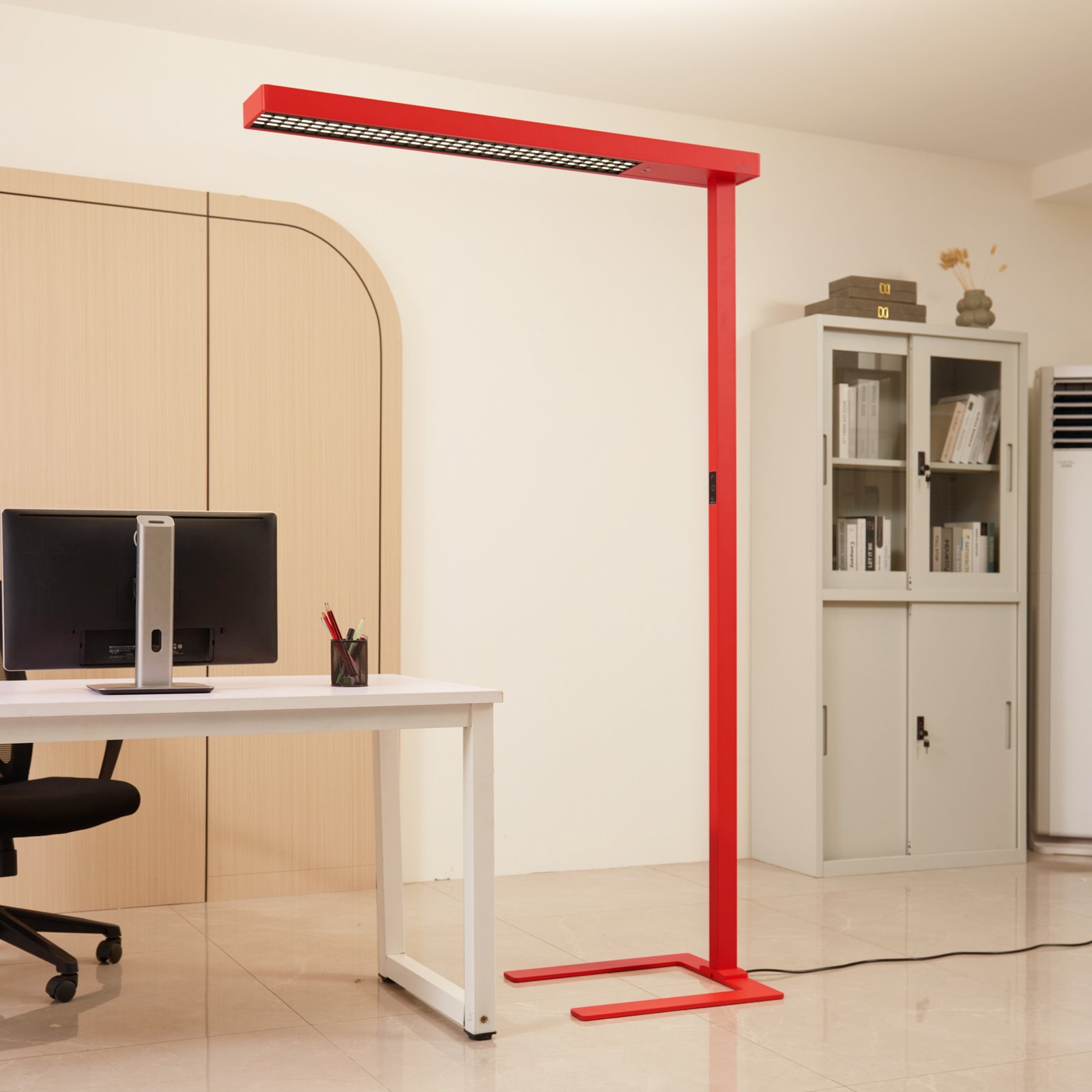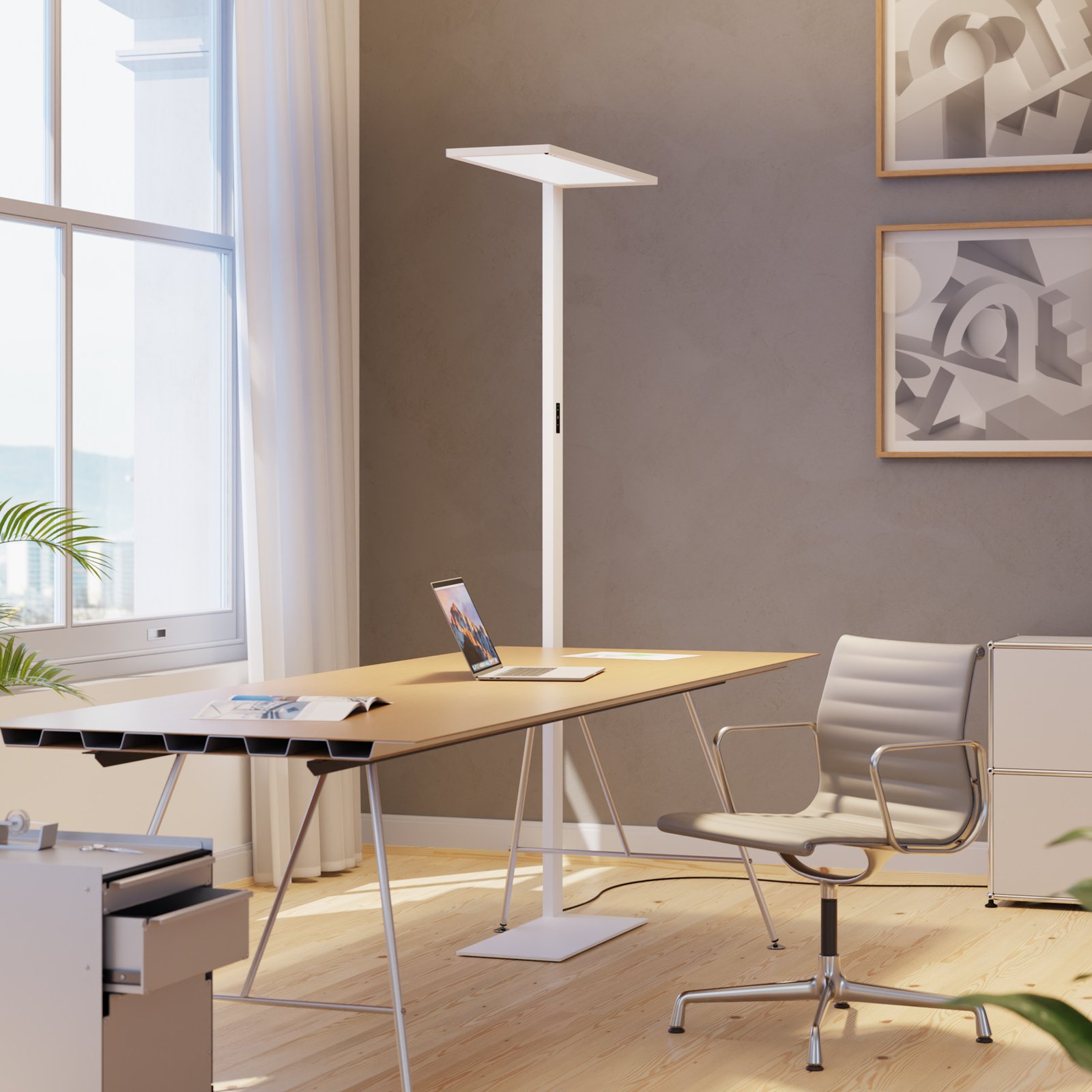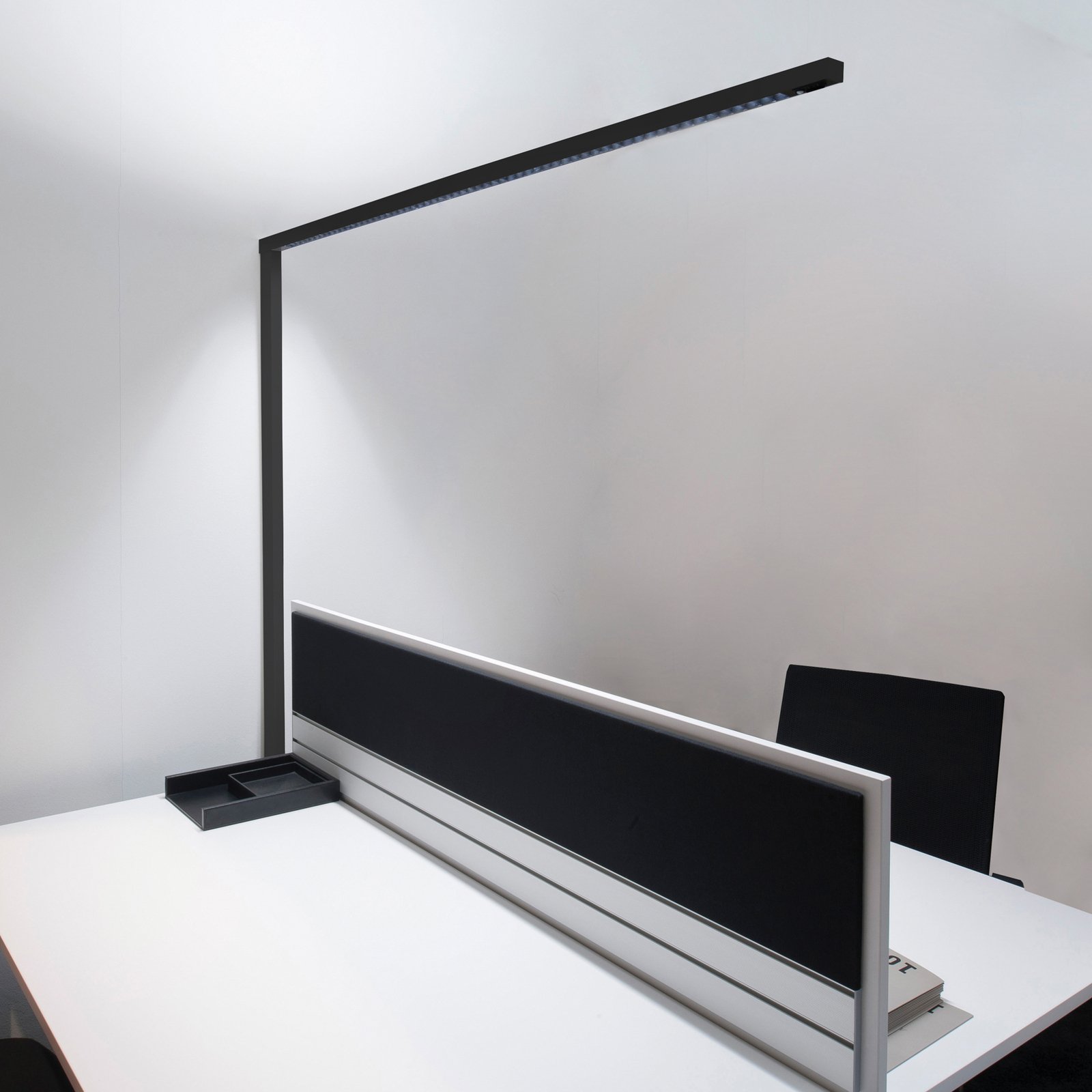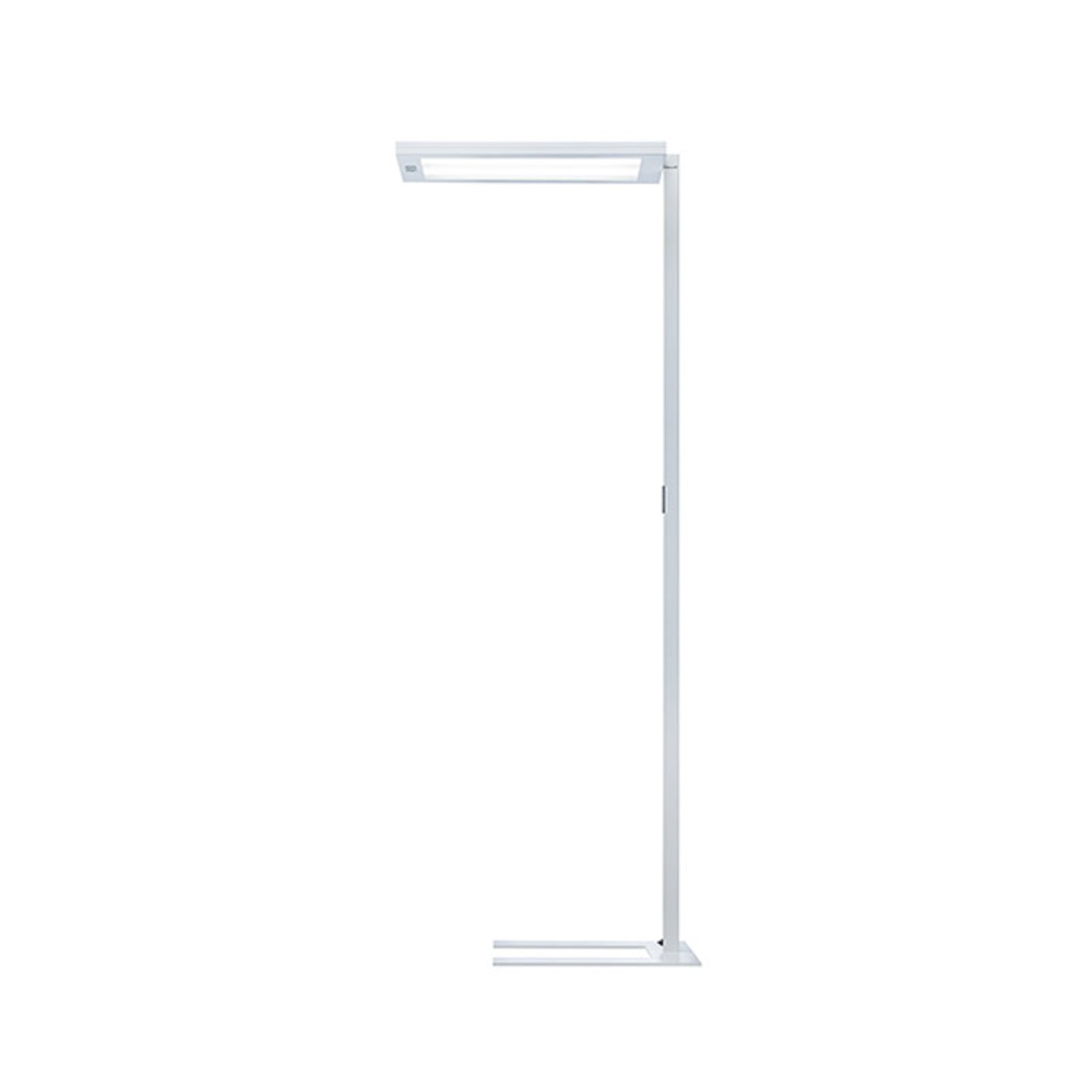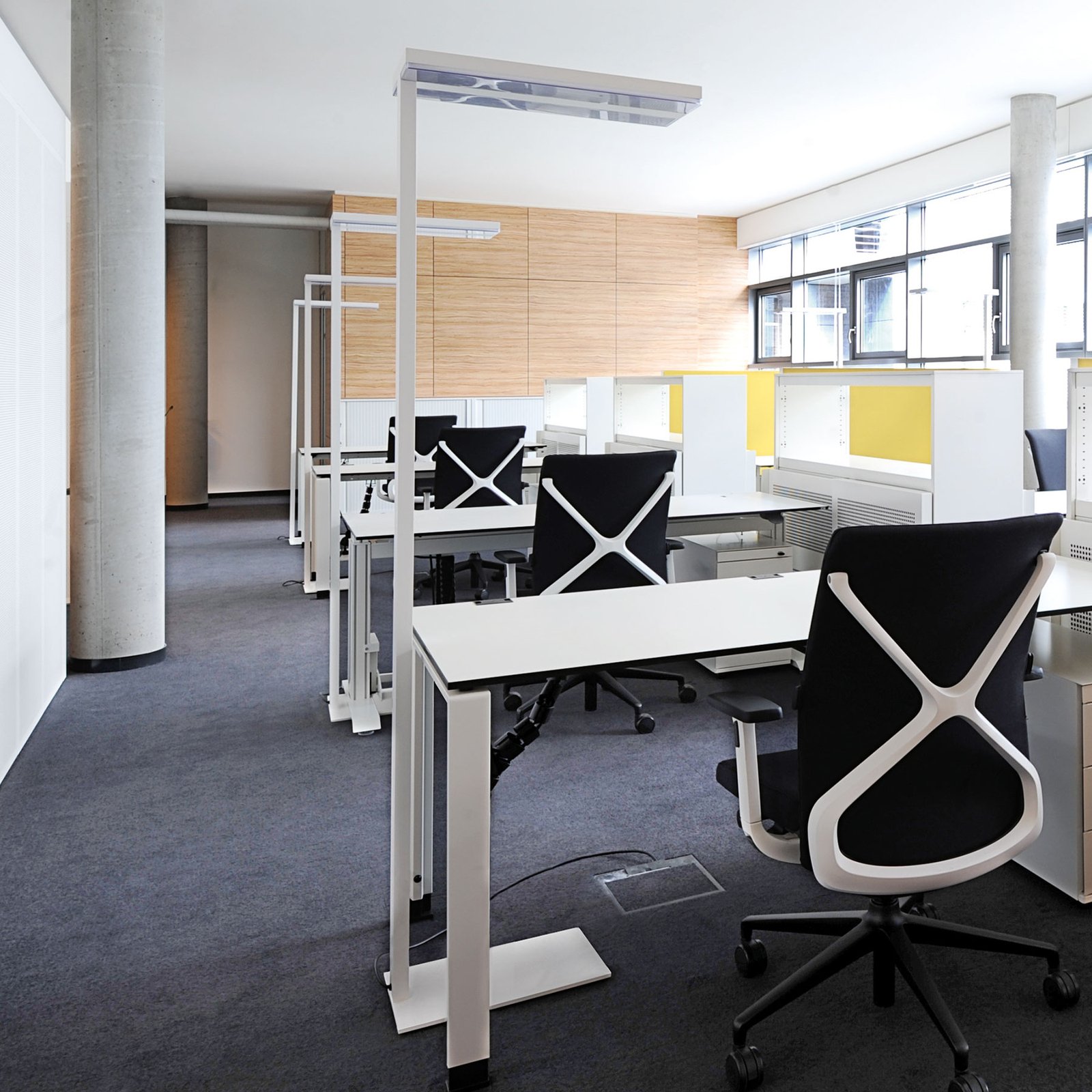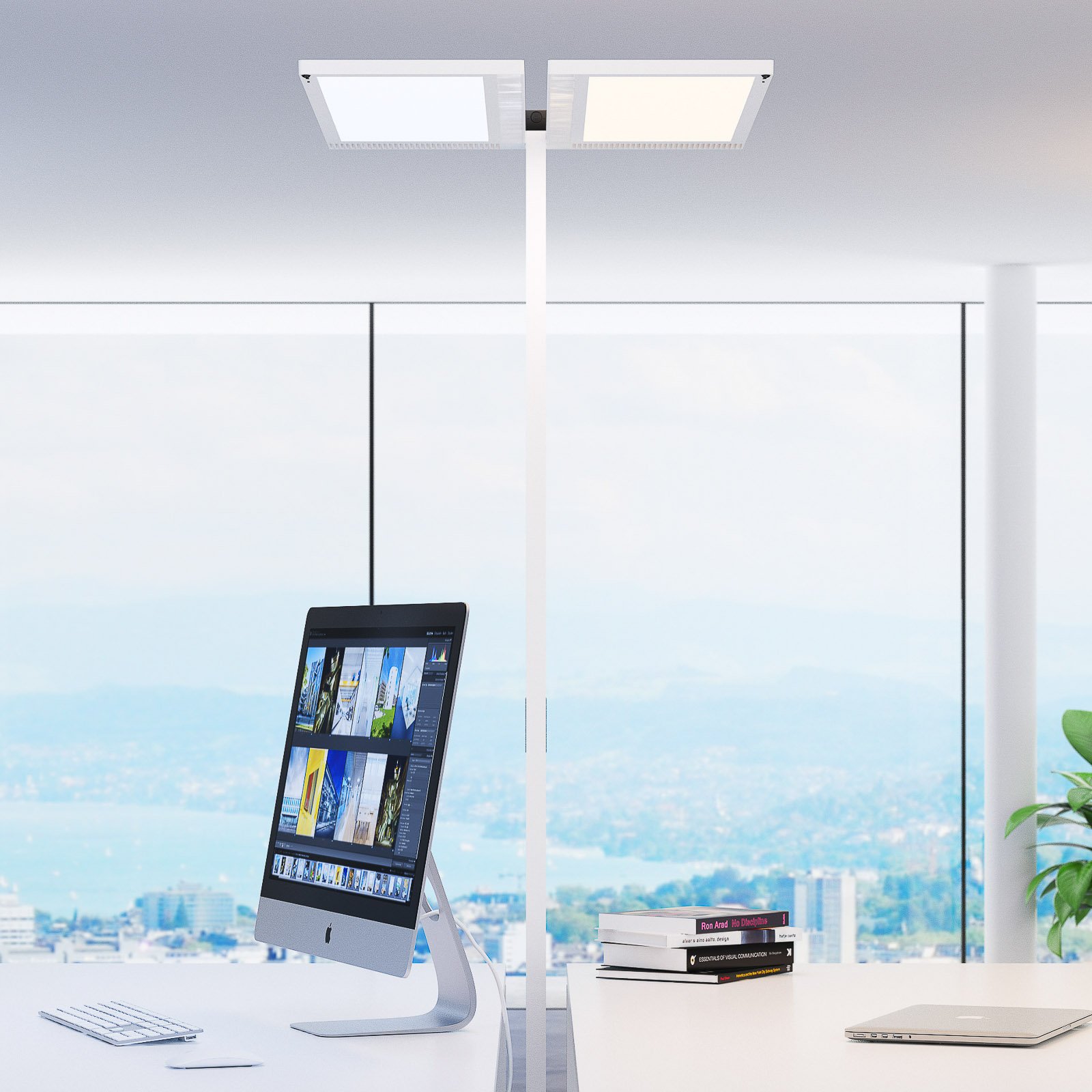- 50 days free returns
- Flexible payment options
- Europe's largest selection of brands
Office Lighting: Why Efficient Work is a Question of Light
Whether it's close to 40° heat outside or rain, ice, or snow, the outside can feel like the most inhospitable place on Earth.
But do you know one place the weather can’t spoil?
The office.
Whatever the weather, you can feel great at work thanks to air conditioning, heating, and lighting.
Lighting is so important because if you start work before the sun comes up or go long into the night, working in the semi-darkness will leave your eyes sore - and not just from being tired. Lighting plays an important role in enabling you to work efficiently, but it also relieves eye strain and makes everything working easier overall.
For this reason, it’s important all office lighting is standardised.
Why?
Because whether you spend your days pouring over documents, typing your fingers to the bone on a keyboard, ticking off bills or writing letters, good office lighting improves your health and boosts productivity.
What requirements must office lighting meet?
Are you sitting in a home office?
Then you can learn something from office lighting.
The biggest difference between working in an office and at home is that you’re free to choose your own home office lights. In a company, however, you have to comply with certain standards. Office lighting is regulated by the European standard DIN EN 12464-1.
Generally speaking, the lighting of VDU screens must be suitable for all visual tasks, including:
Typing
Reading documents
And the lighting is chosen in accordance with the nature of the office activity, the visual tasks, and the room.
Why do you need additional lighting when reading and writing text on a screen?
After all, a screen is illuminated.
The answer is simple: too much contrast between a bright screen and a dark room strains the eyes. Below you’ll see how efficient lighting in an office makes for a comfortable workspace. Working from home is no different. You must ensure you have the right home office lights to illuminate your room fully.
:format(jpeg))
What makes good office lighting?
All you need to do is switch the light on, and you’re done, right?
Now, wouldn’t that be nice?
If you look closer at the standards and see what quality features play a role, you realise how comprehensive office lighting rules can really be. Less so if you’re self-employed, where you can take whatever you want and leave the rest, but we recommend you light your home study as you would a corporate office.
:format(jpeg))
The quality features of good office lighting include:
Illuminance
Good light distribution
Correct light colour
High-quality colour rendering
Direction of light
Avoidance of direct and reflected glare
Absence of flicker
Avoidance of large variances in light level and colour
:format(jpeg))
:format(jpeg))
How many lumens are needed for task lighting?
Office lamps emit a luminous flux measured in lumens to denote brightness. The standards for office lighting can be calculated by its illuminance (which refers to the light that actually falls on a surface), and illuminance is measured in lux (lx).
An office workplace, for example, is considered adequately lit at 500 lx.
In the home, on the other hand (because you cannot easily calculate lux), you should still work with the lumen value given for every light source and every LED bulb. As a guideline, you should look for a luminous flux of about 500 lumens for a good desk lamp.
We also recommend you look for an integrated dimmer, allowing you to adjust the brightness to suit your needs. As we mentioned earlier, home offices have no set lighting standard, but you must ensure you aren’t straining your eyes.
So, if you work from home, what are you waiting for?
Every lighting option is available to you!
Why are glare-free office lights so important?
Glare-free office lights are annoying!
Think about it, when you’re relaxing on the couch in the living room, staring up at a ceiling light is just irritating and uncomfortable. The same rule applies to office lighting, which all comes down to something called psychological glare.
Physiological glare causes a reduction in visual function, which can also be caused by looking at the sun or car headlights.
Psychological glare is a subjective feeling of disturbance. Whether an office lamp or light is perceived as dazzling depends on several factors, according to the UGR method. But when it comes down to it, if you find a light glaring, it’s too bright, and the bulb needs replacing with a warmer, less blinding light.
For further information on psychological glare and the UGR method, please contact our expert advisors using the contact details below.
Our expert advisors can plan the optimal lighting for your office with you
Good office lighting consists of more than just mounting and setting up office lights as required. Good planning is essential if lighting standards are to be met. So, to ensure you are not left in the dark (or blinded by the light), our expert consultants can help you achieve healthy, optimal lighting for your office.
We can advise you on how to use the following:
Free-standing office floor lamps
Ceiling spots and spotlights
Ceiling lights for offices and conference rooms
LED panels for modern offices
Lighting for open-plan offices
Desk lamps for office workspaces
We look forward to hearing from you.
Just fill in our contact form to speak to one of our advisors.
:format(jpeg))
:format(jpeg))
:format(jpeg))
The strike-through prices correspond to the manufacturer's RRP.
Included in the price of LED lights/bulbs is a contribution to recycling costs of €0.05. Included in the price of CFLs/fluorescent bulbs is a contribution to recycling costs of €0.15.
All prices include 23% VAT, delivery costs excluded.





































